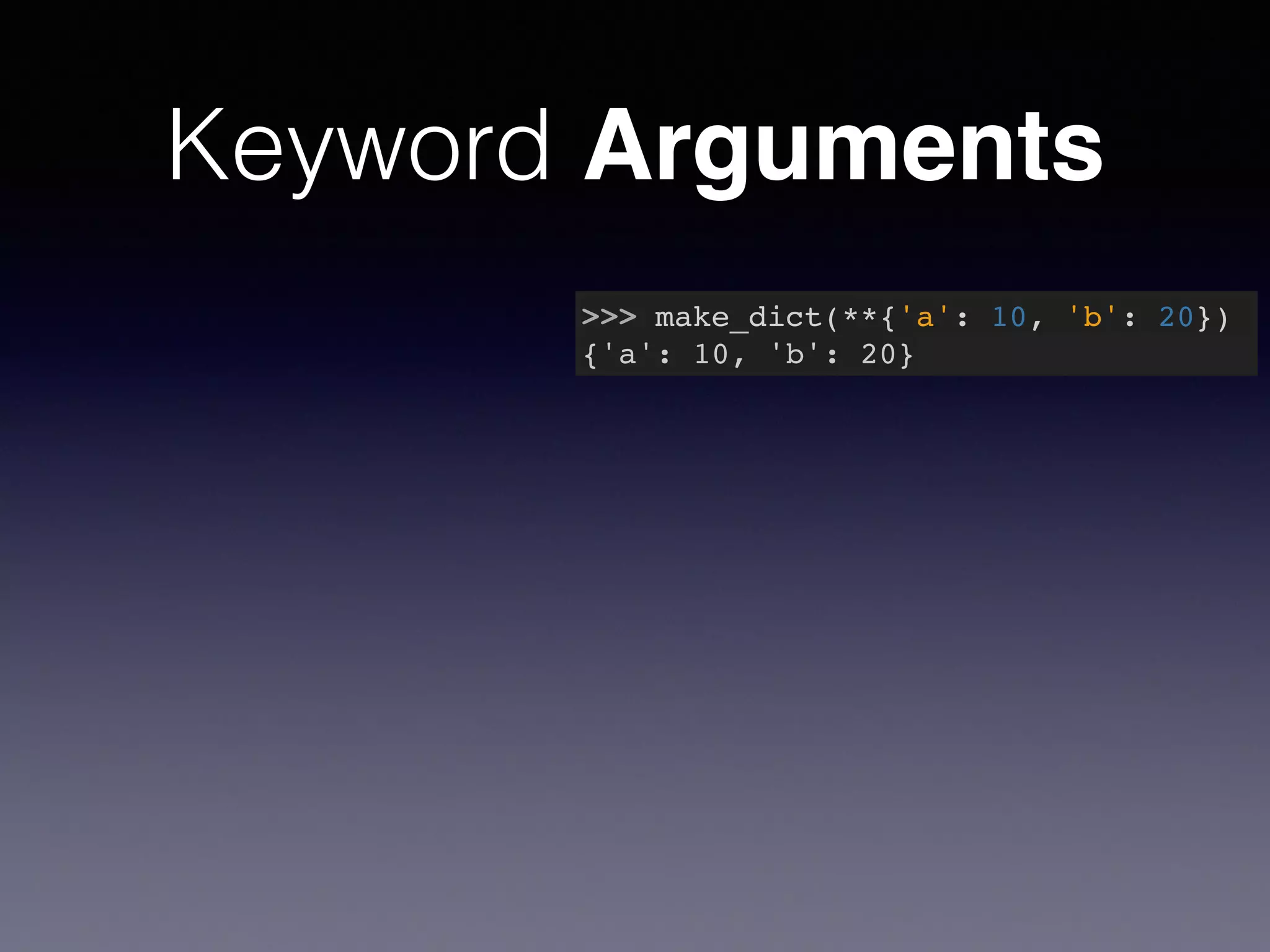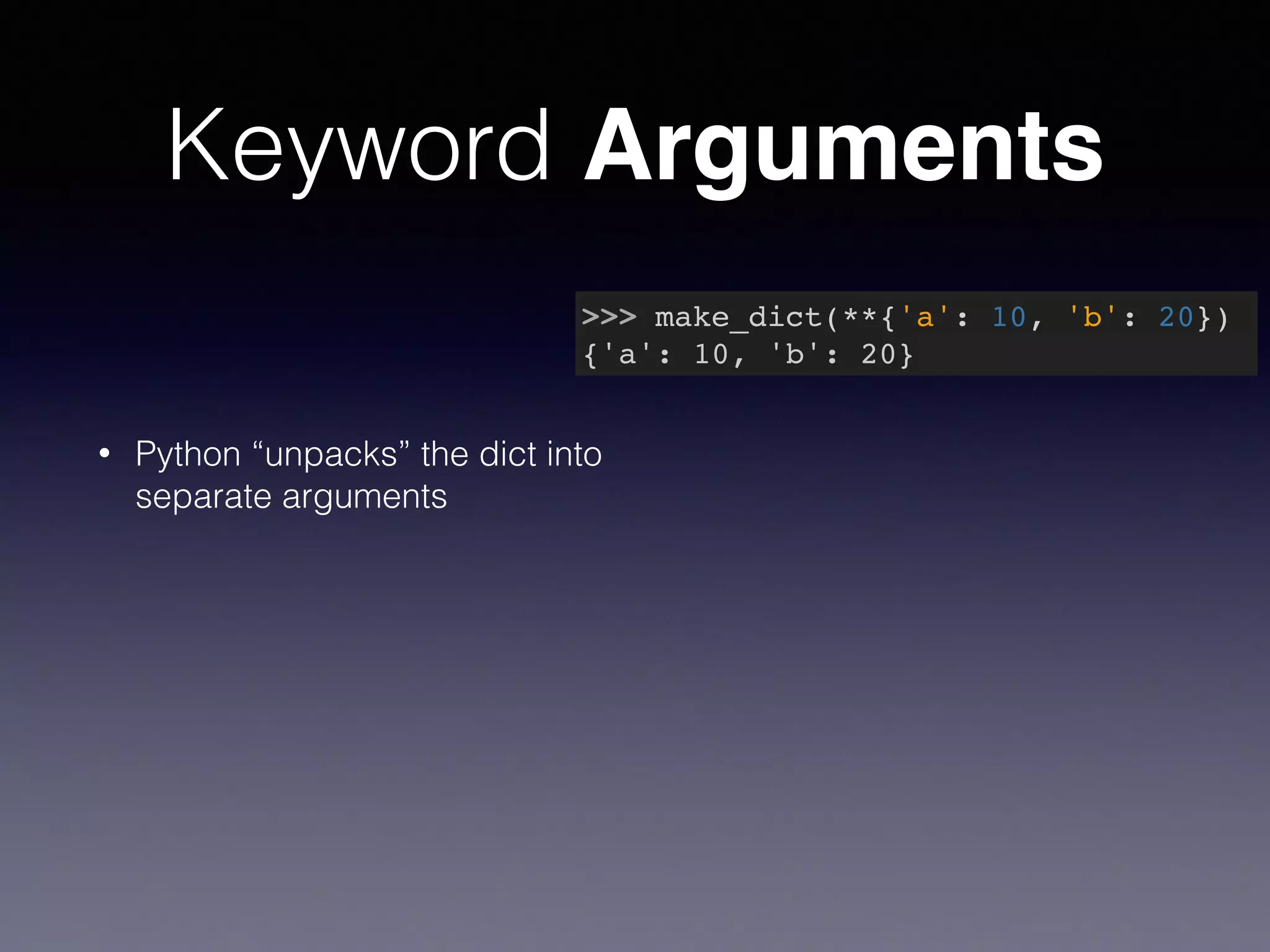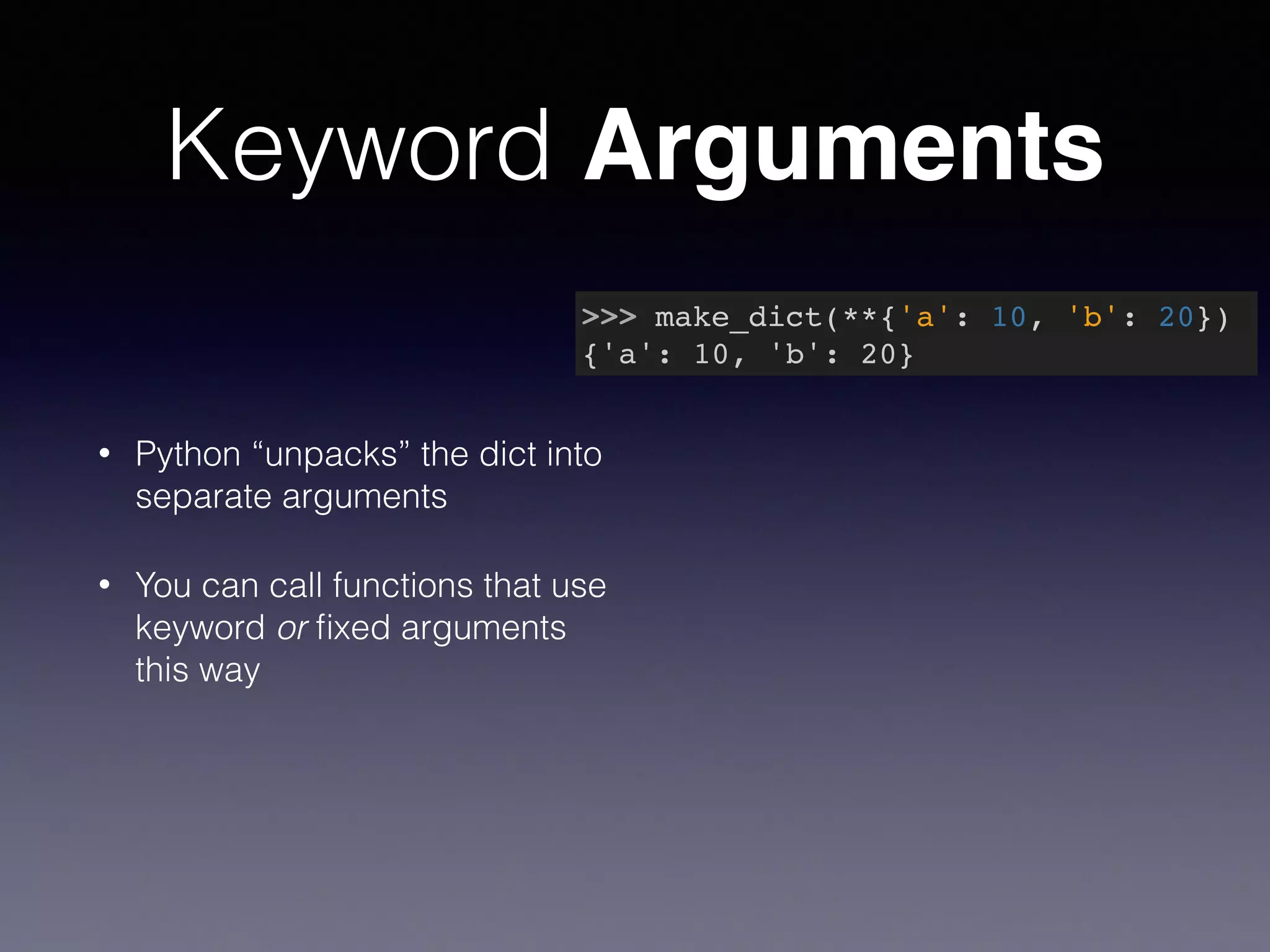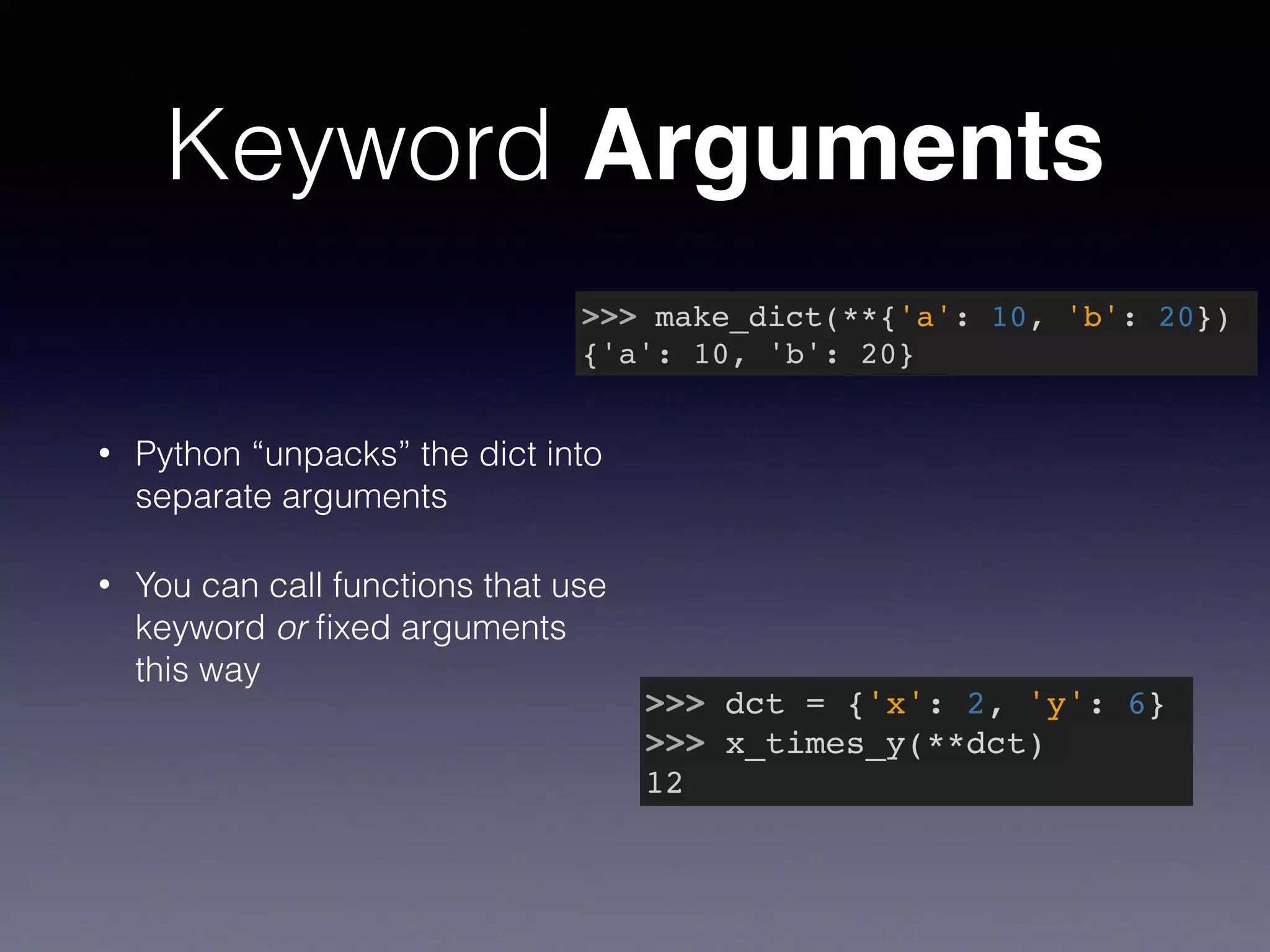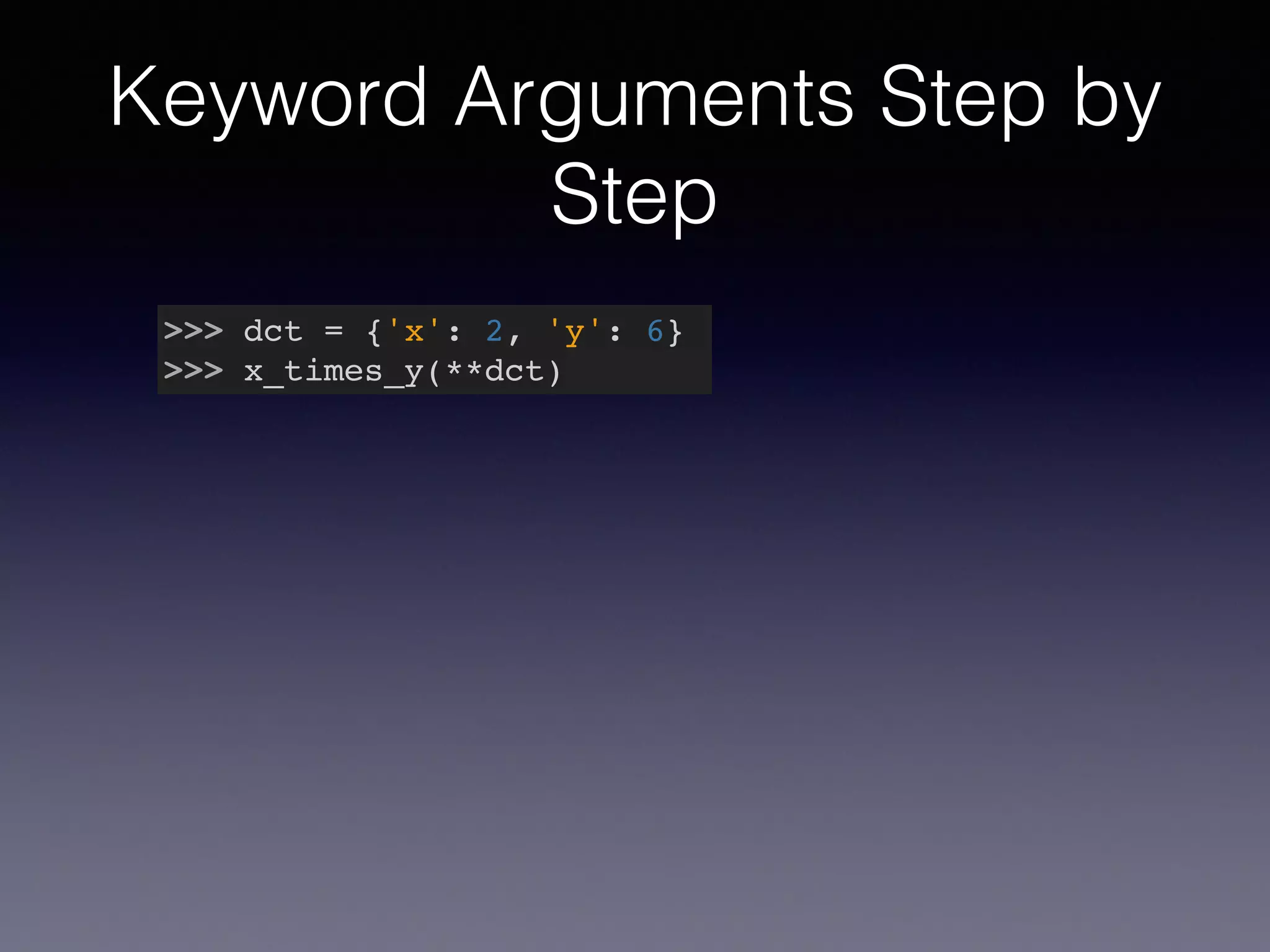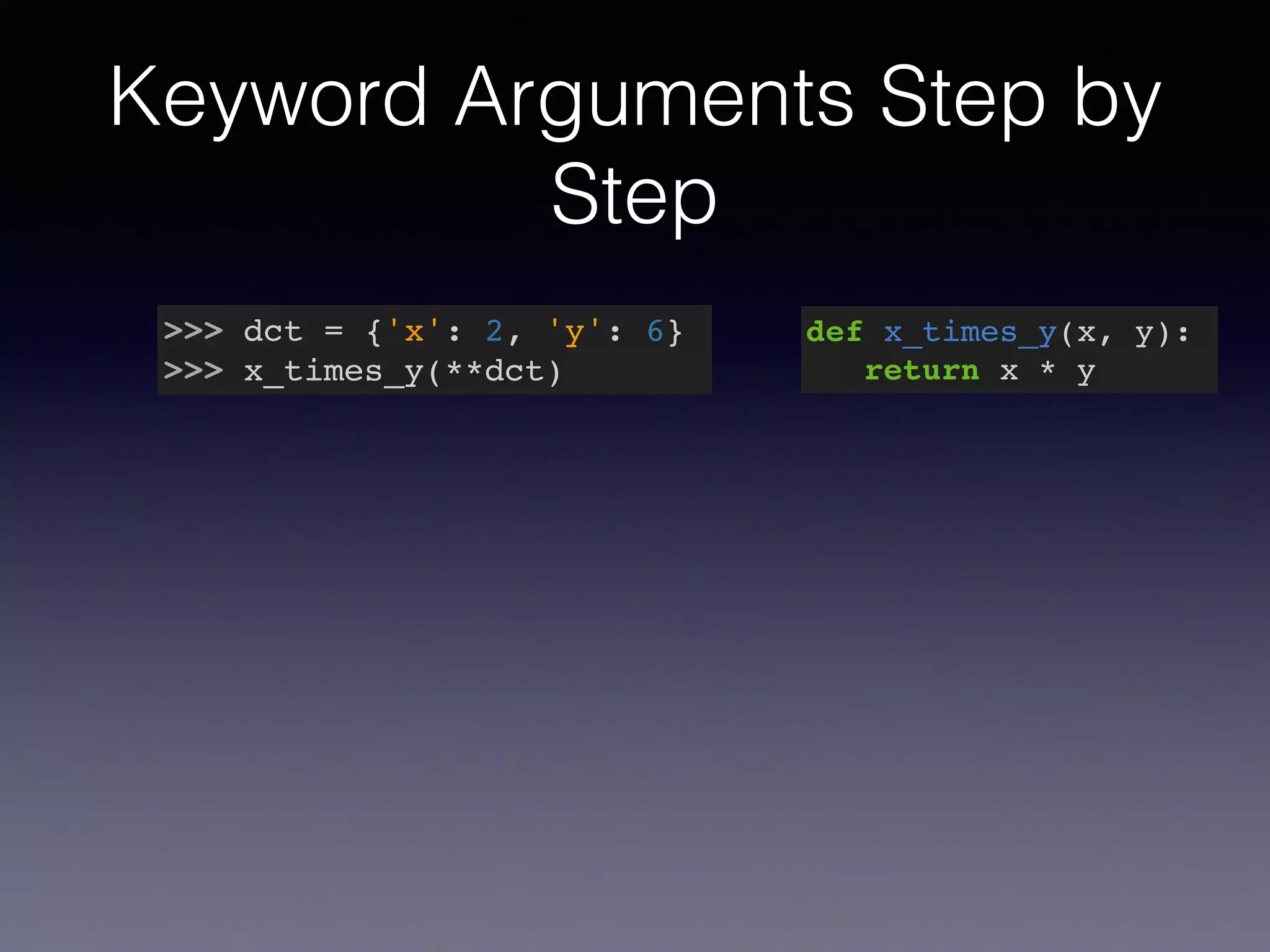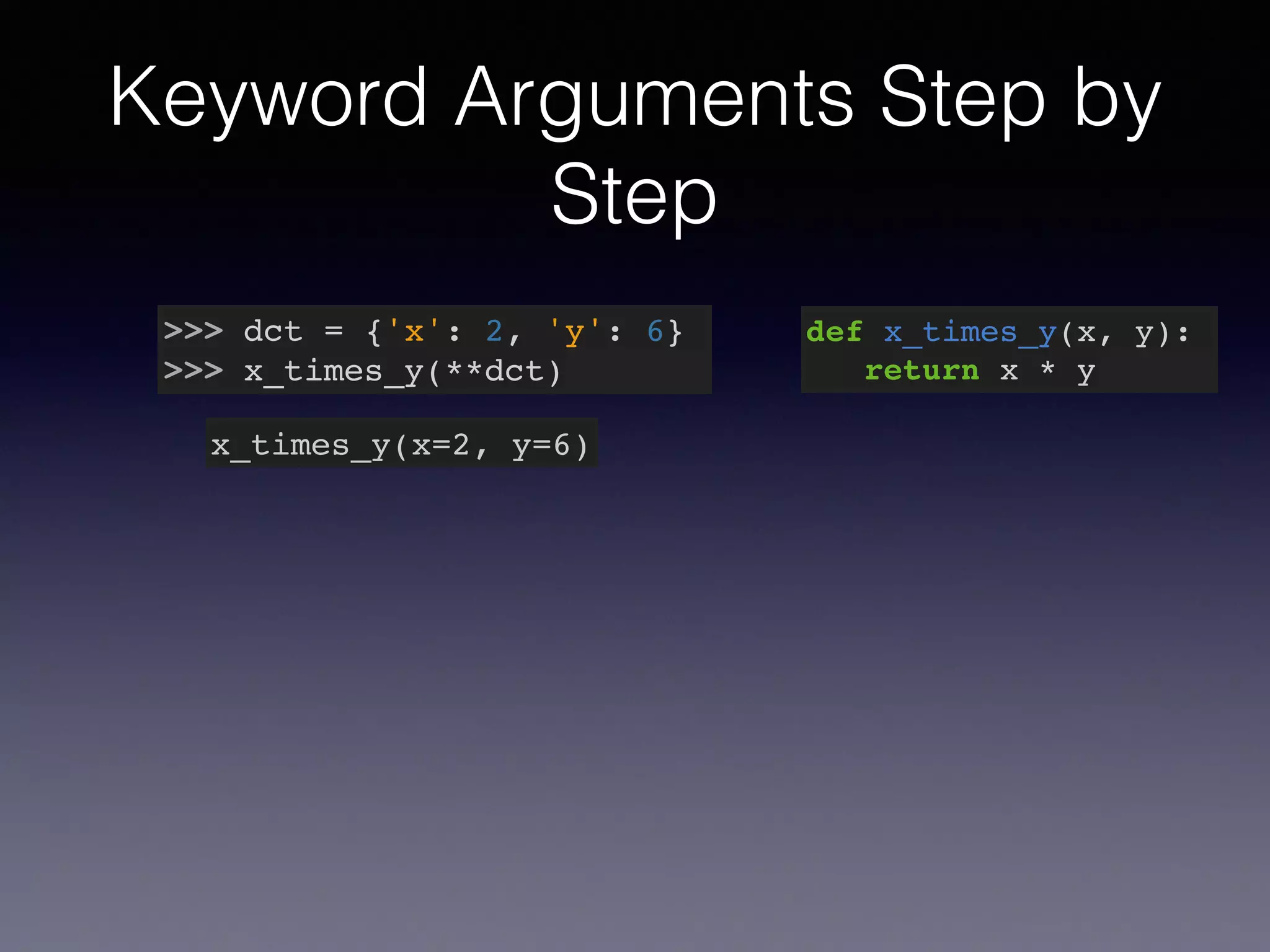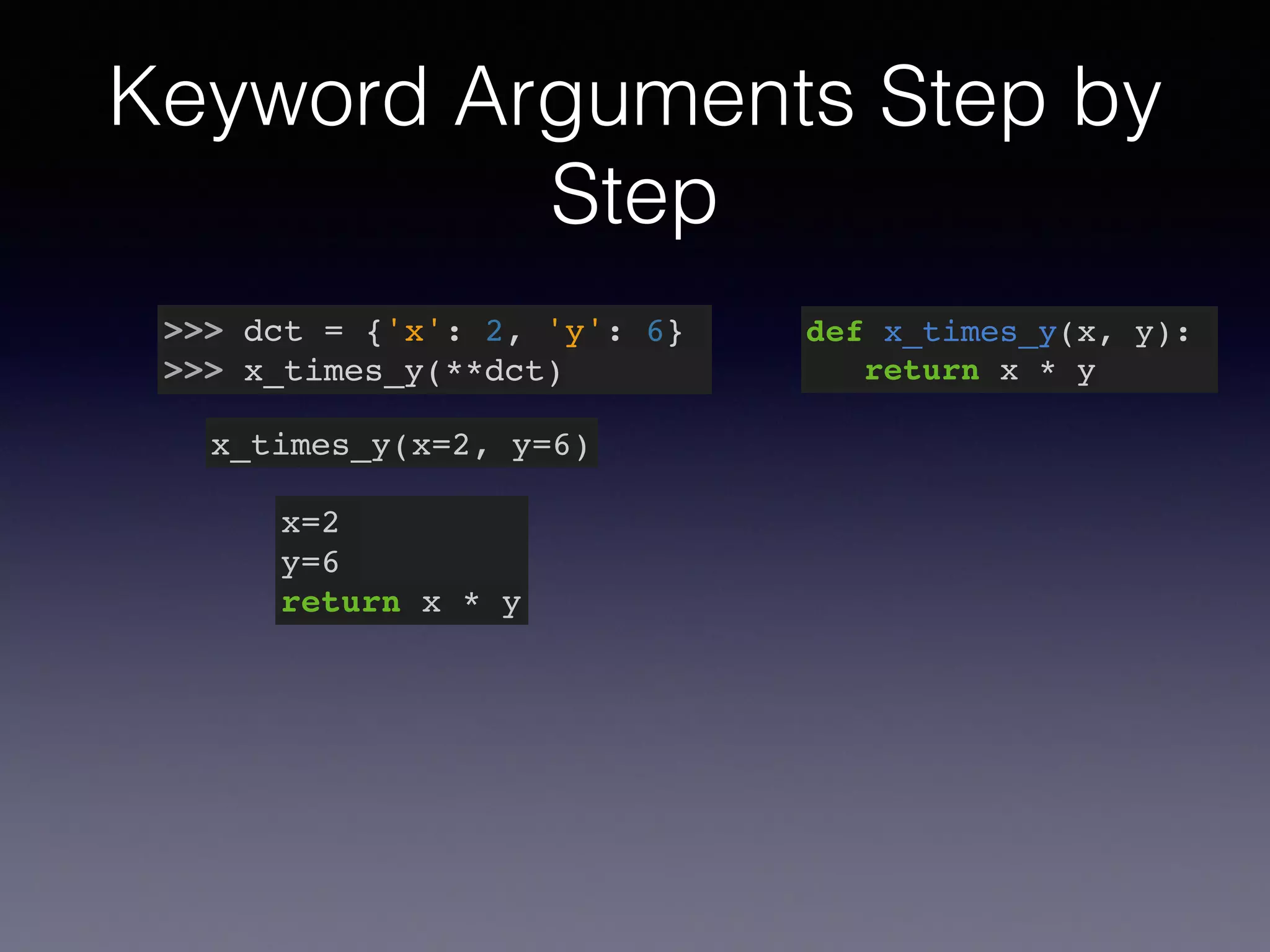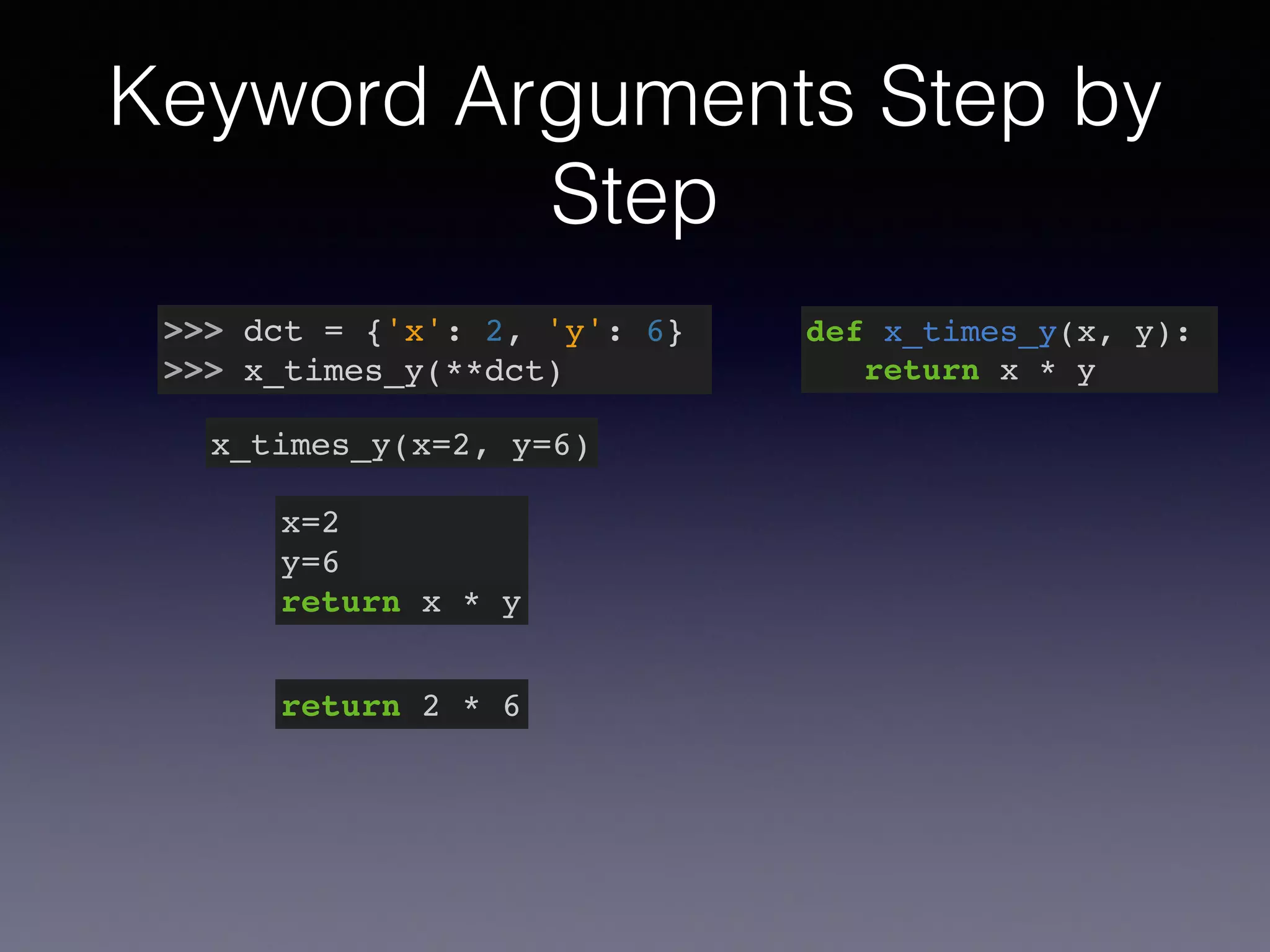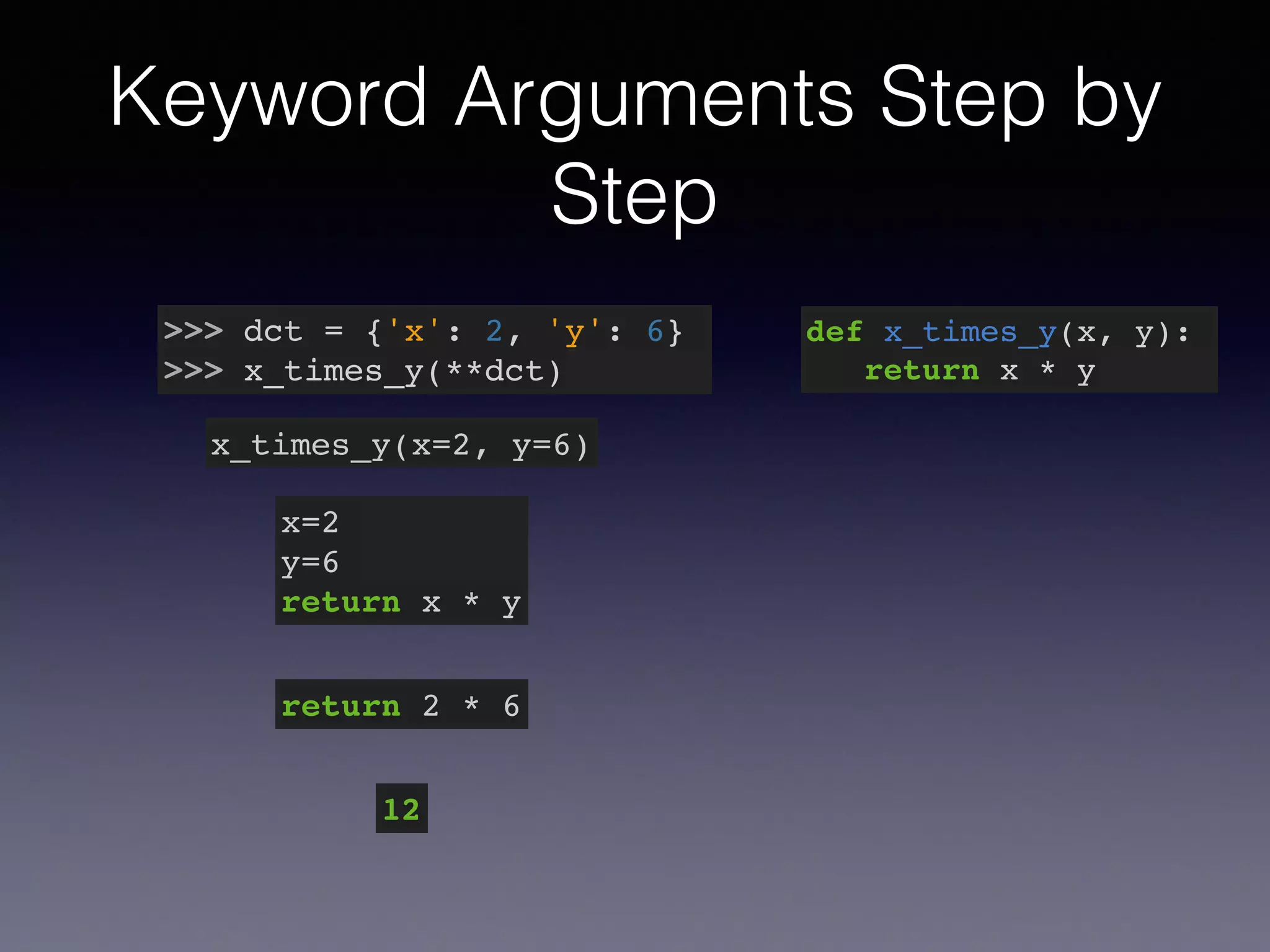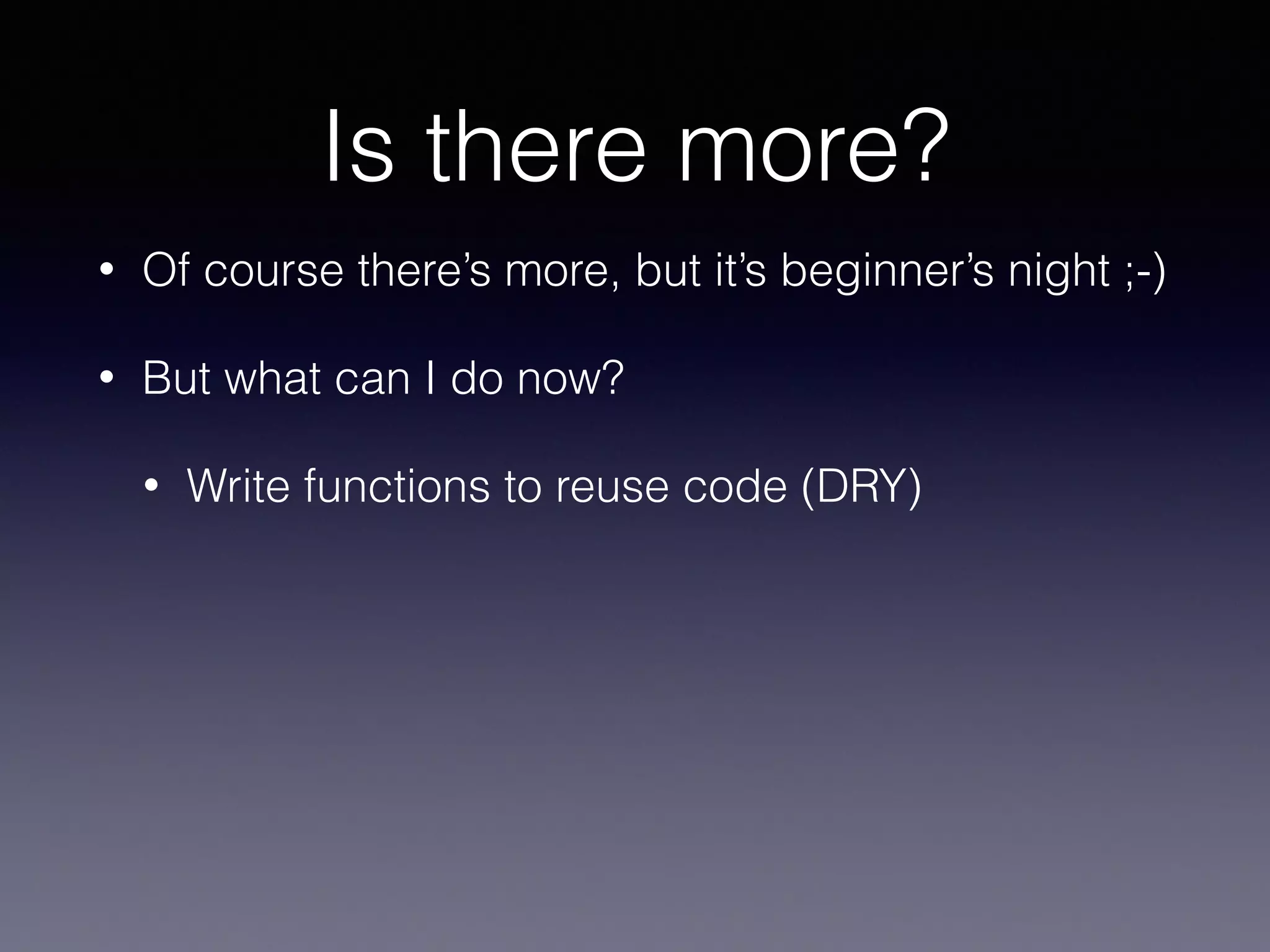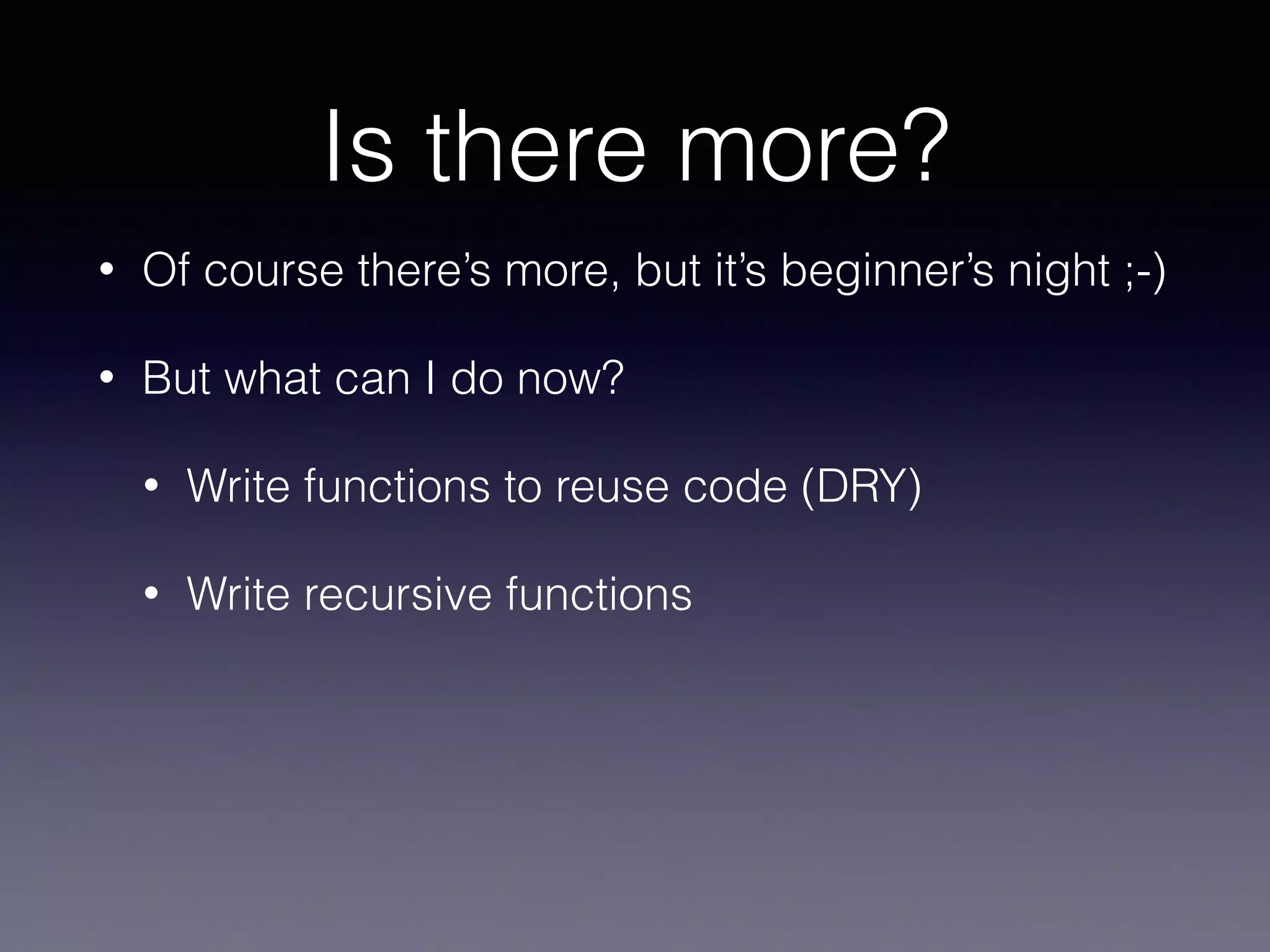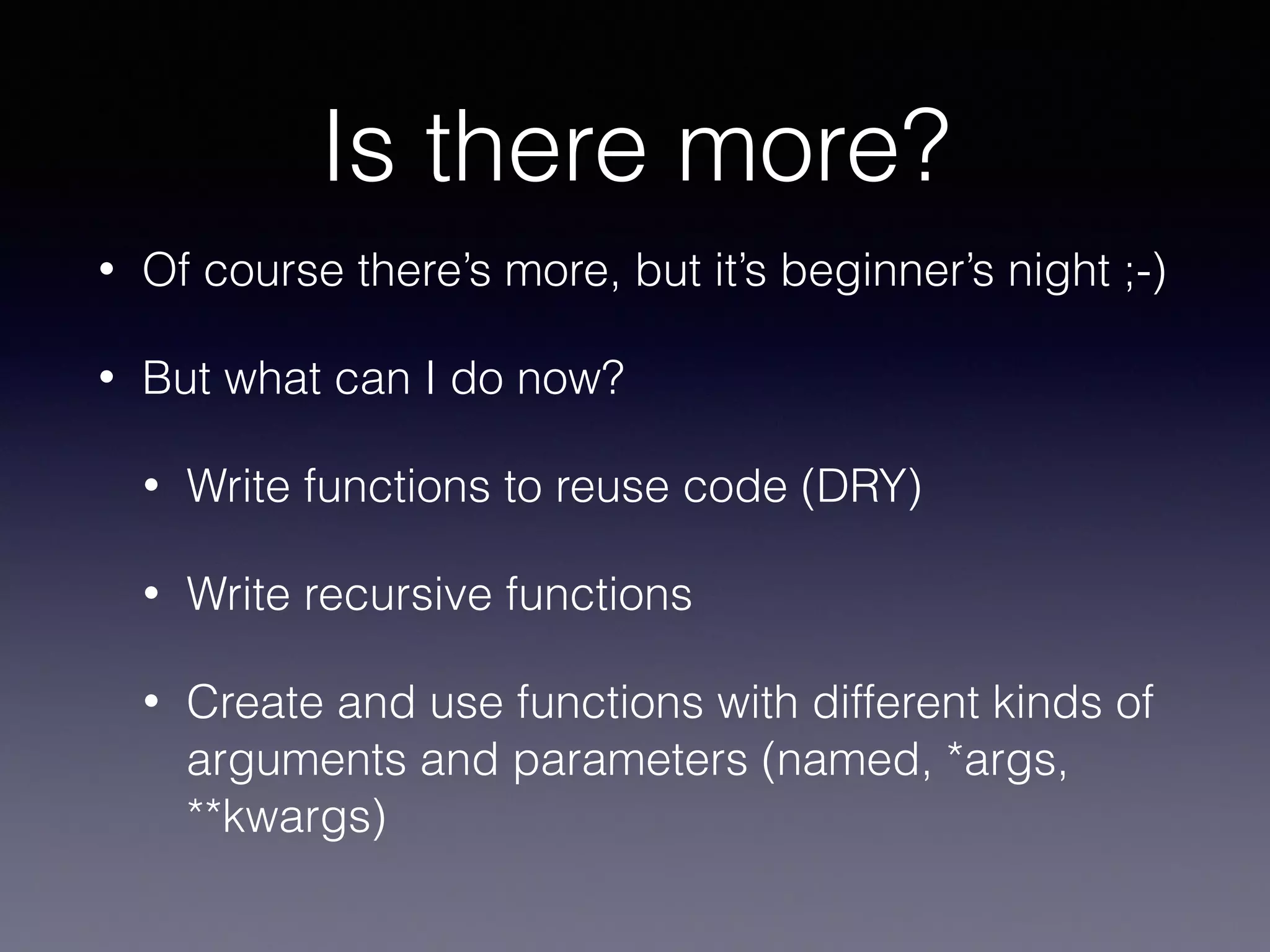The document discusses Python functions. Some key points covered include:
- Functions are reusable blocks of code defined using the def keyword that can accept parameters and return values.
- To execute a function, it must be called by name with appropriate arguments.
- Functions can call themselves, which is known as recursion.
- Functions can have default, variable, and keyword parameters to provide flexibility in how they are called.





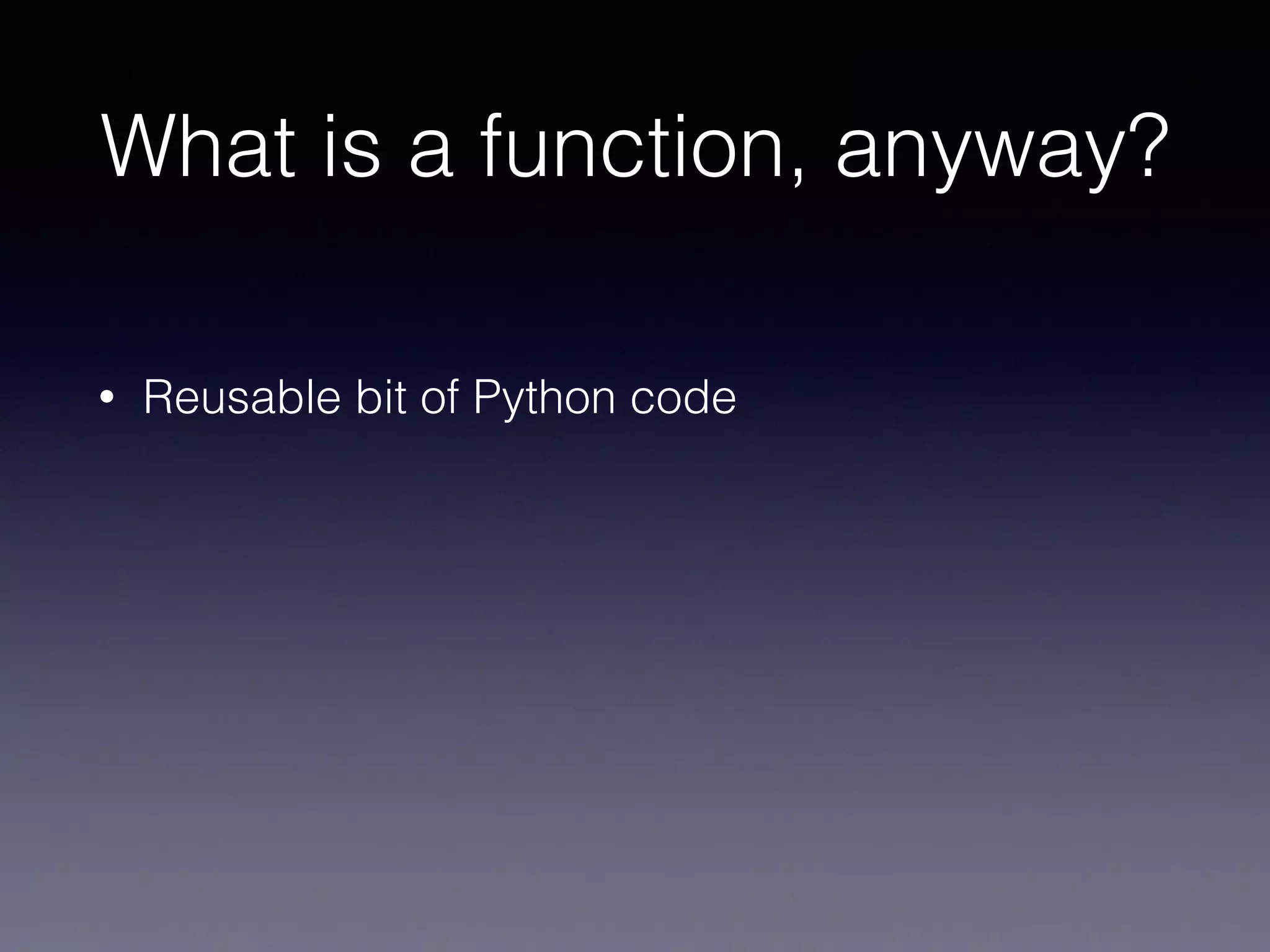
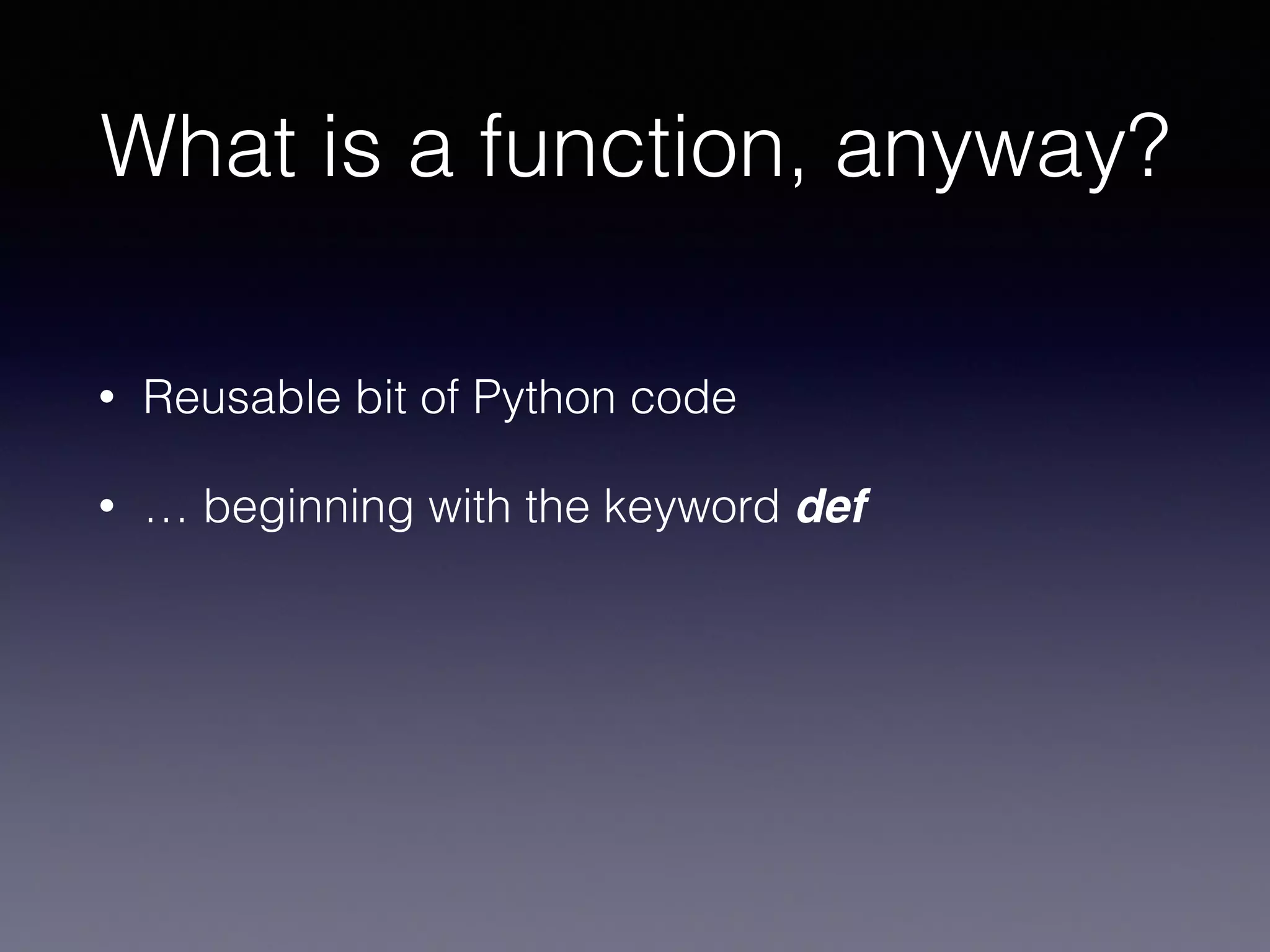
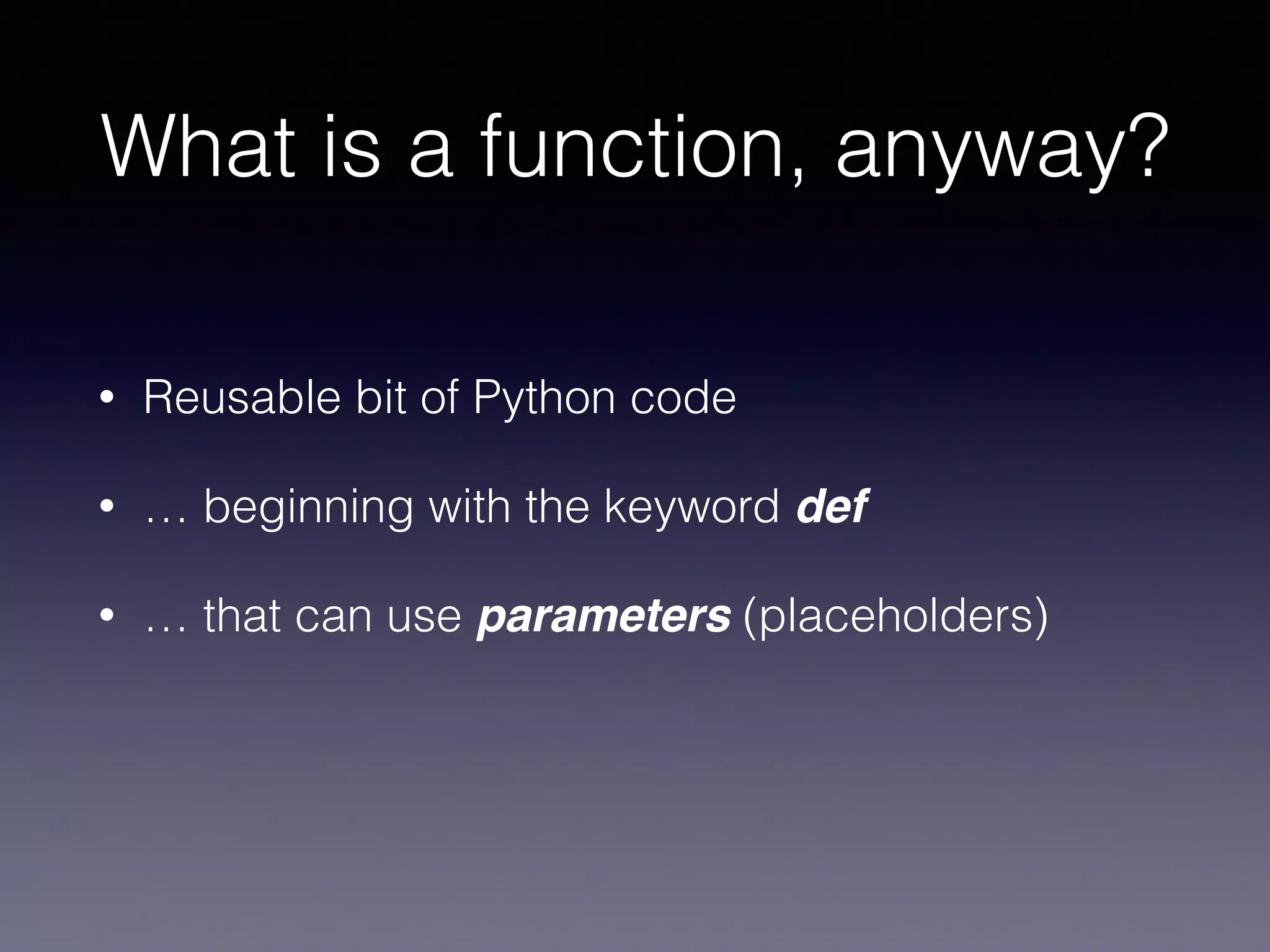
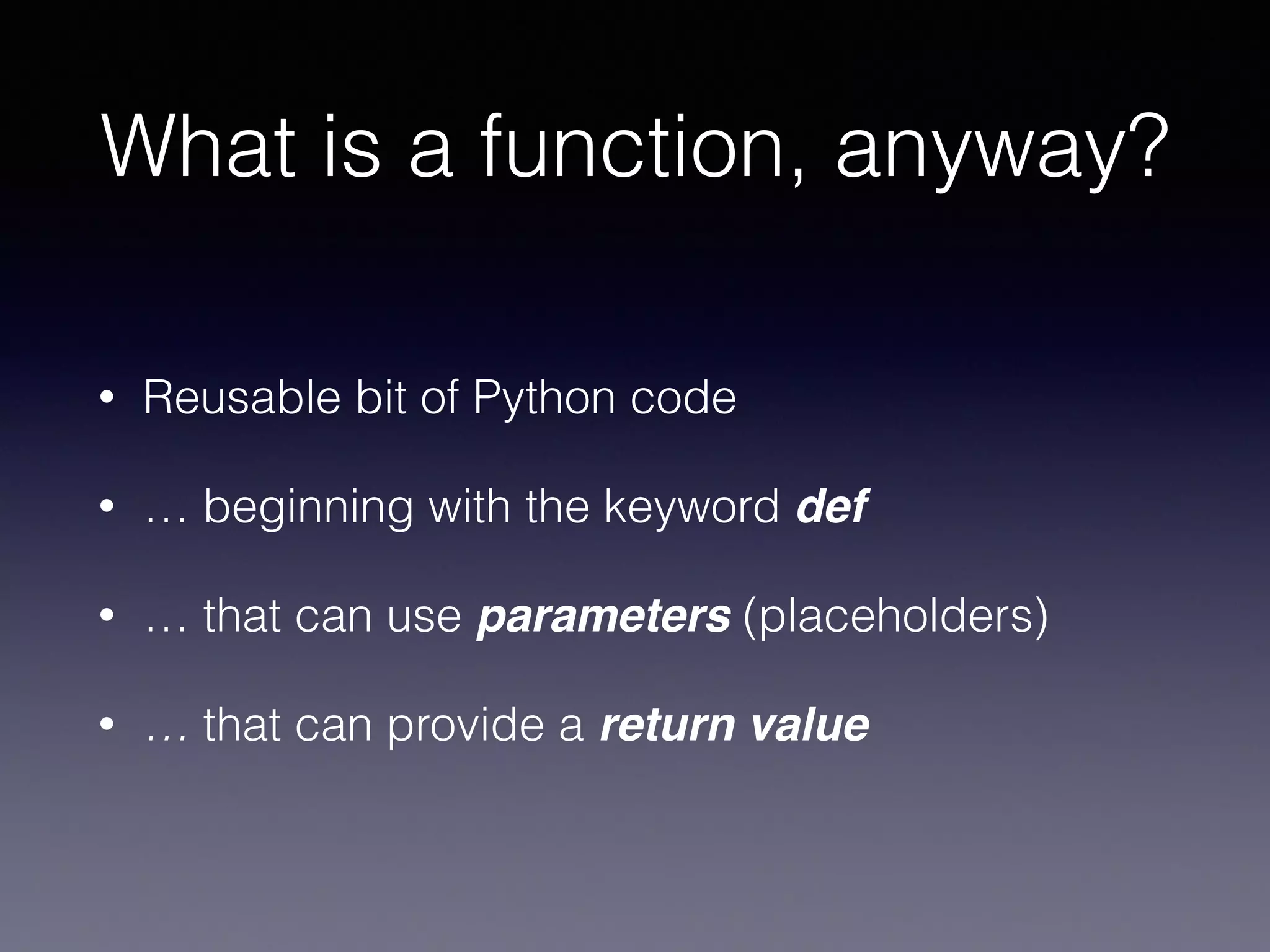
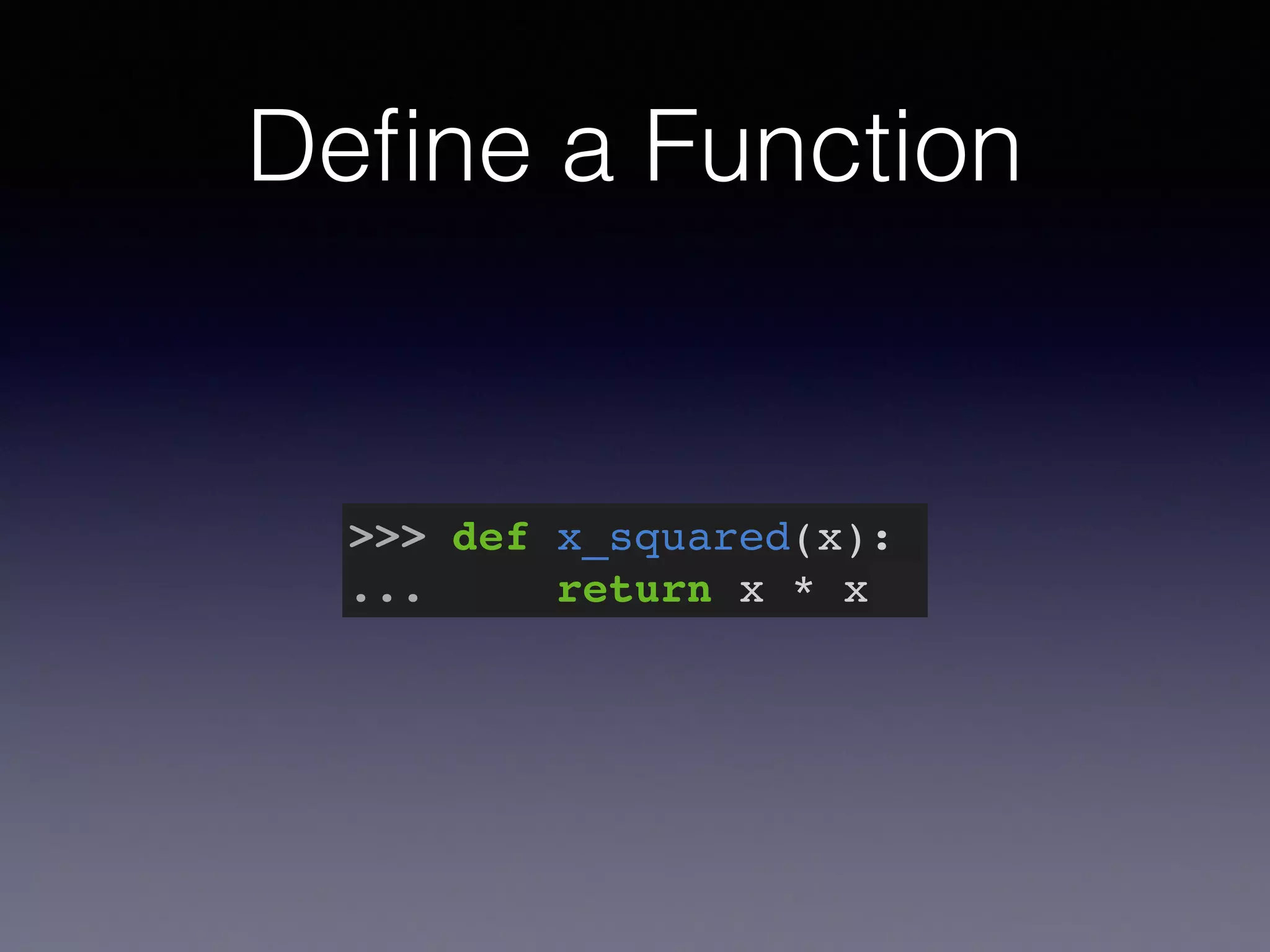
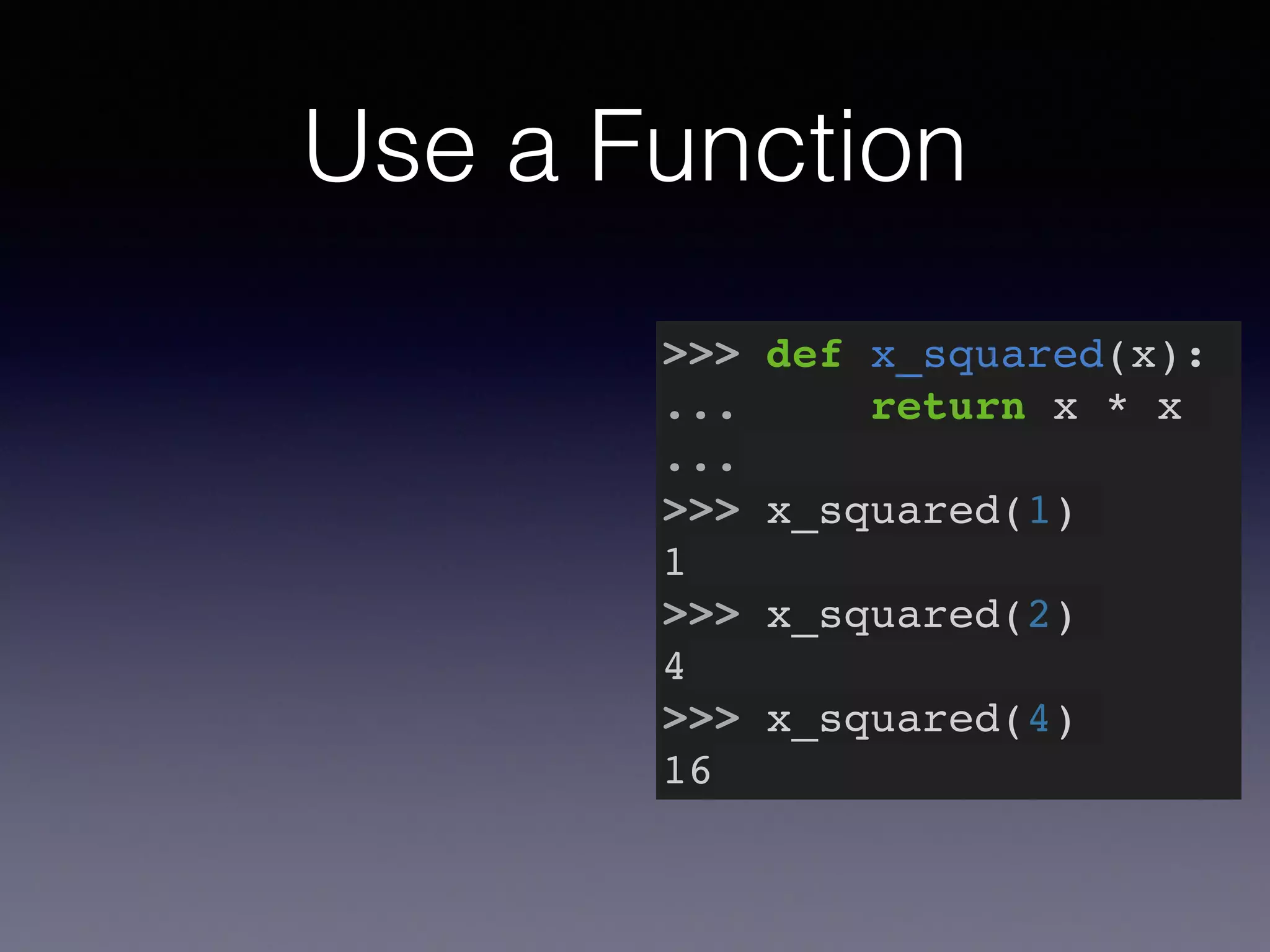
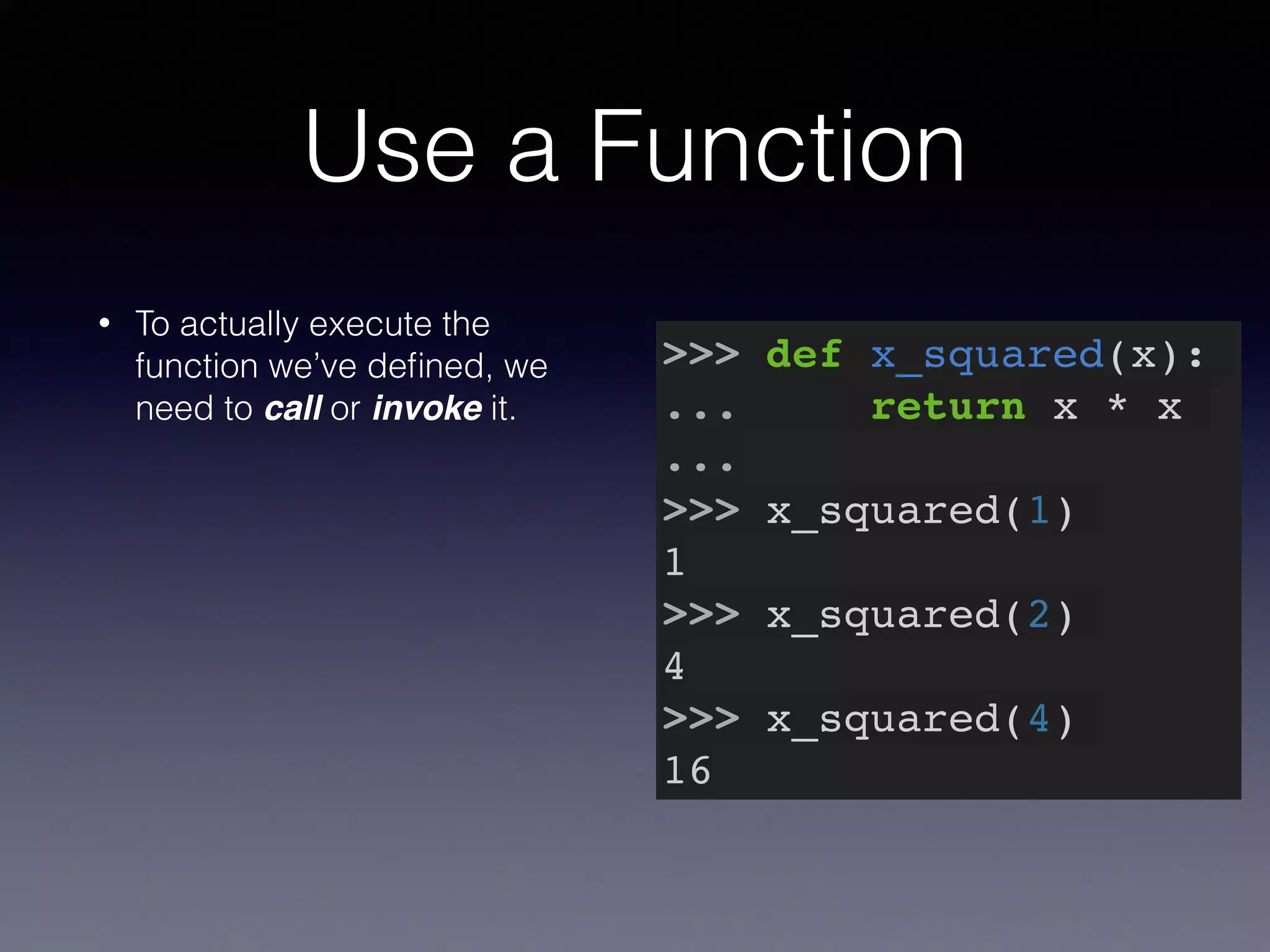
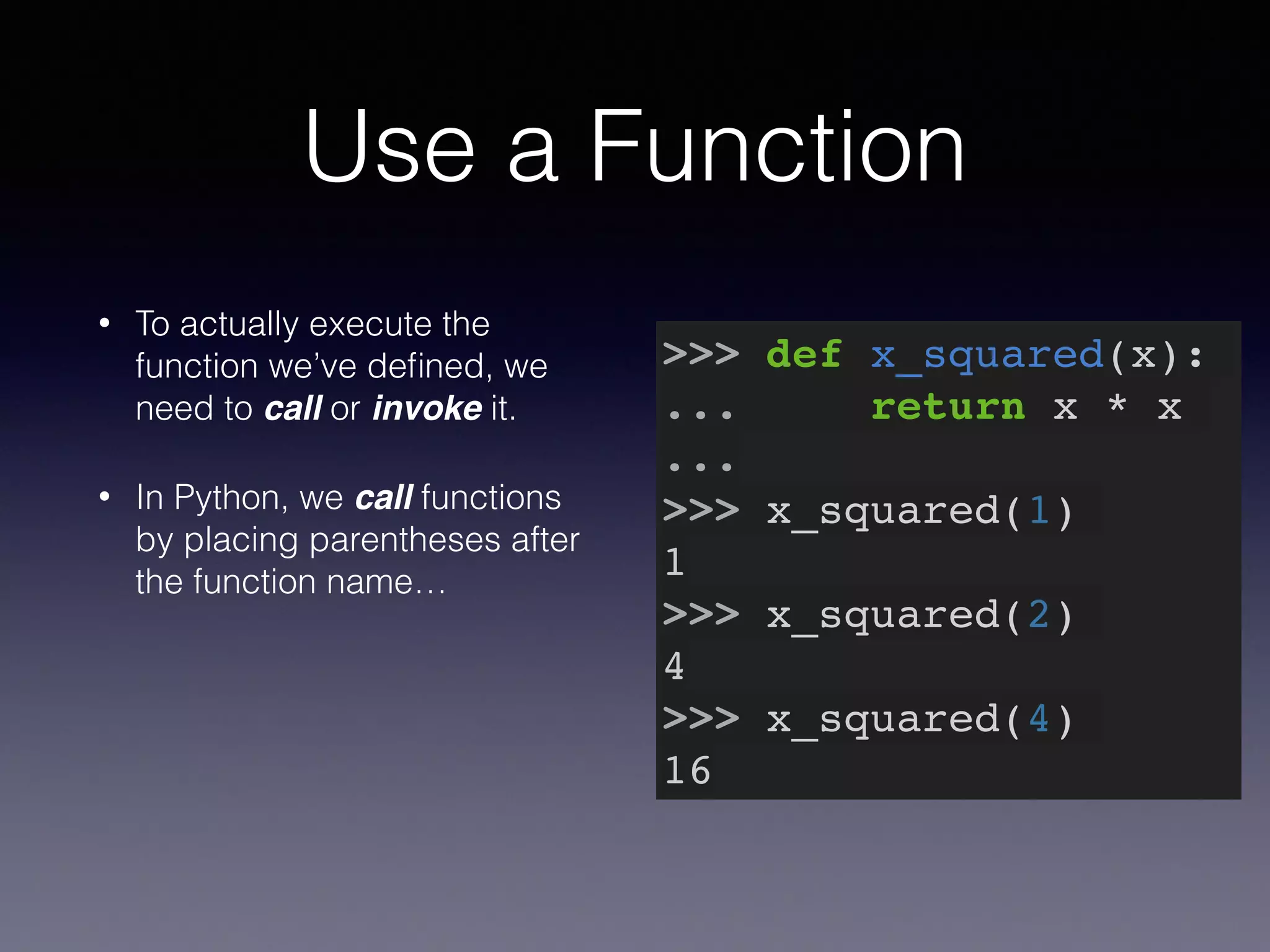
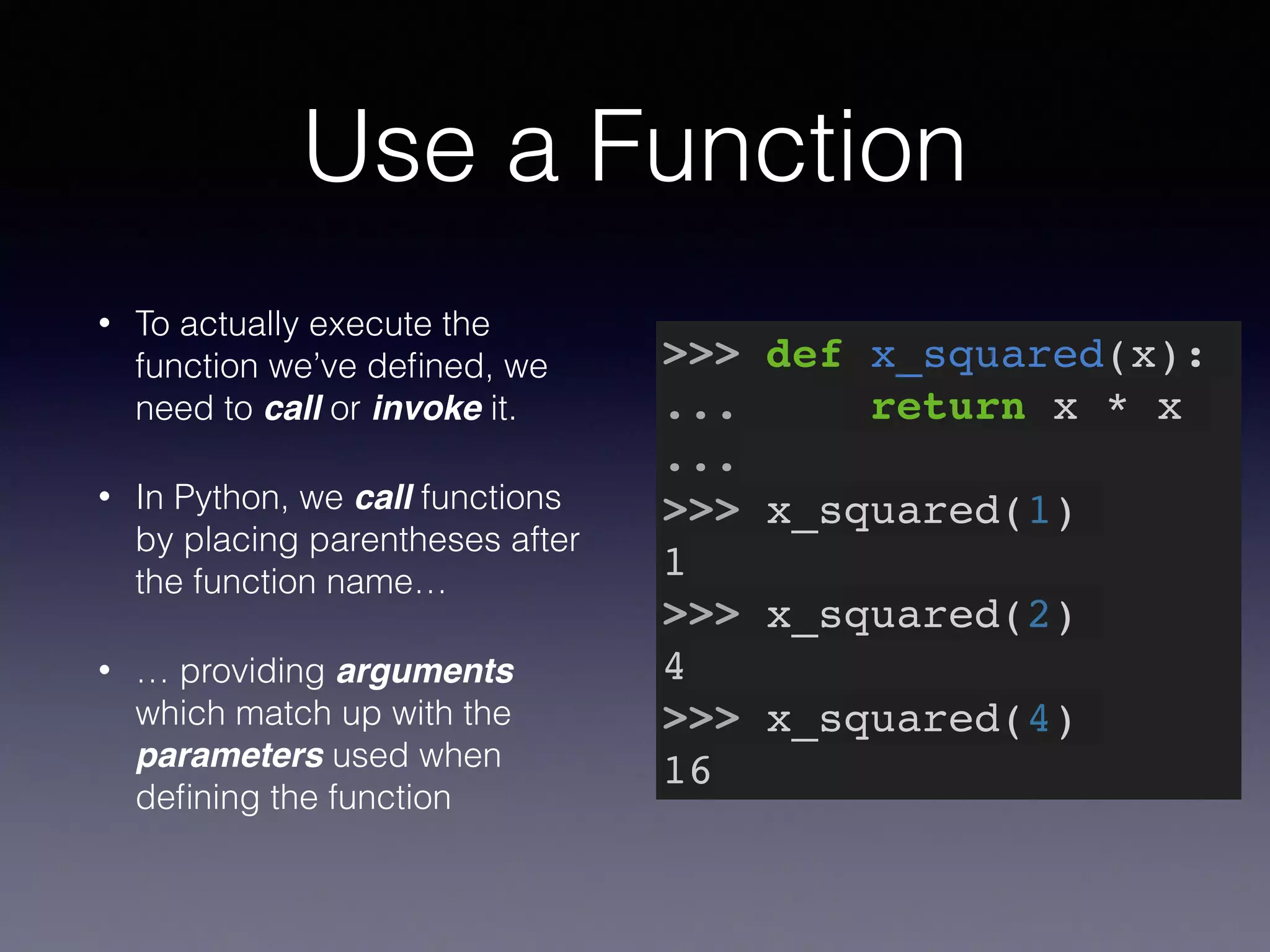
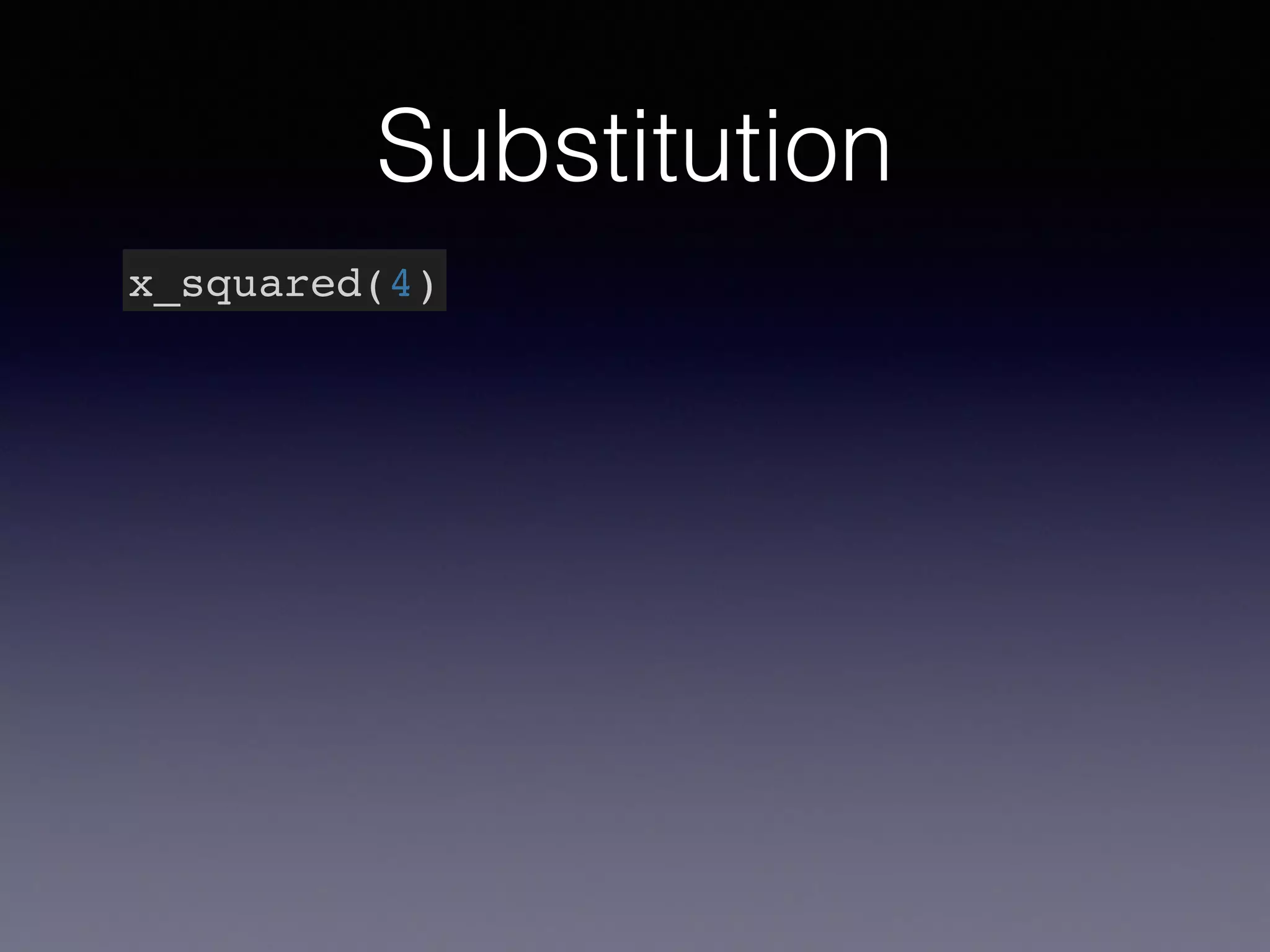
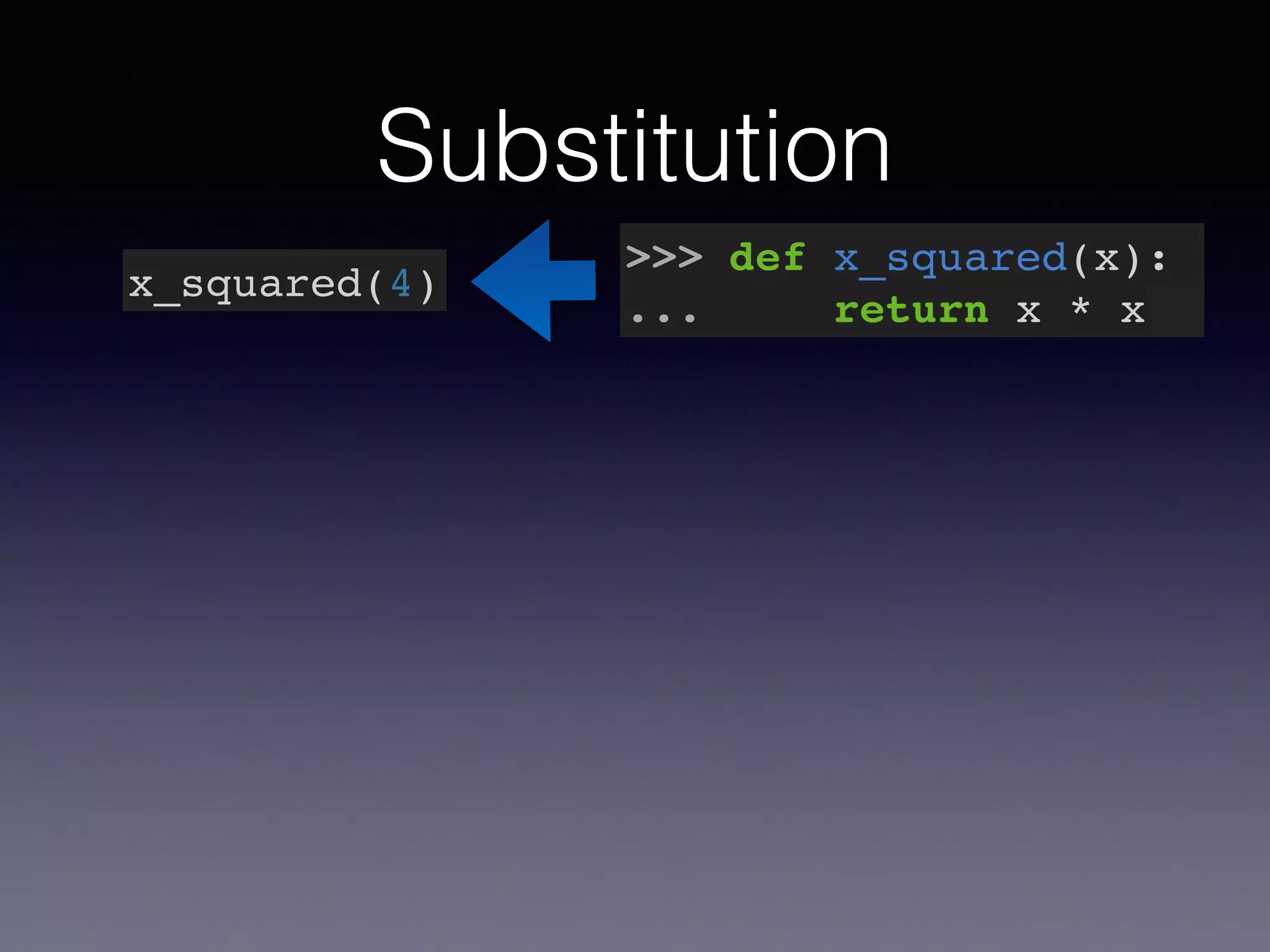
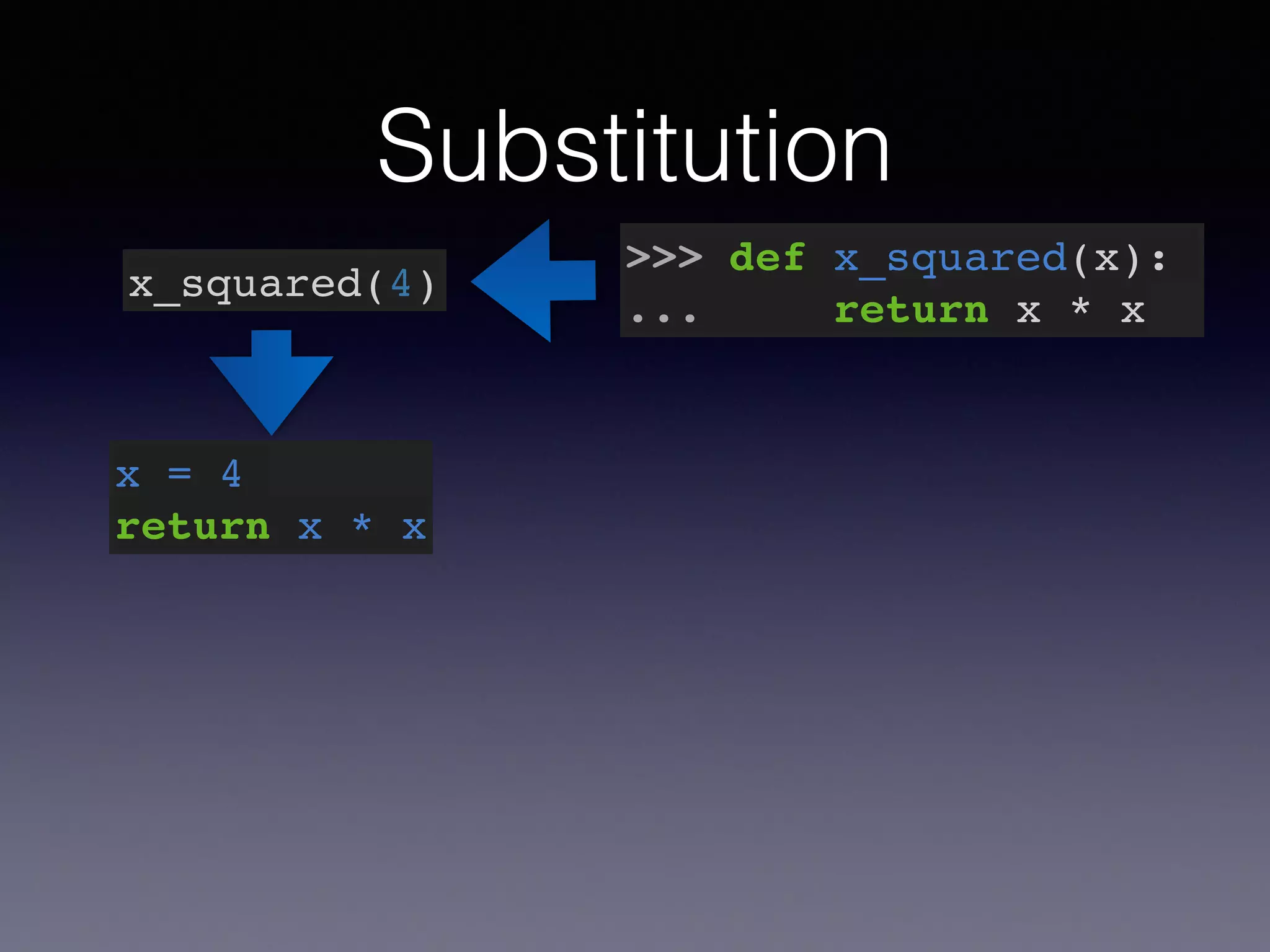
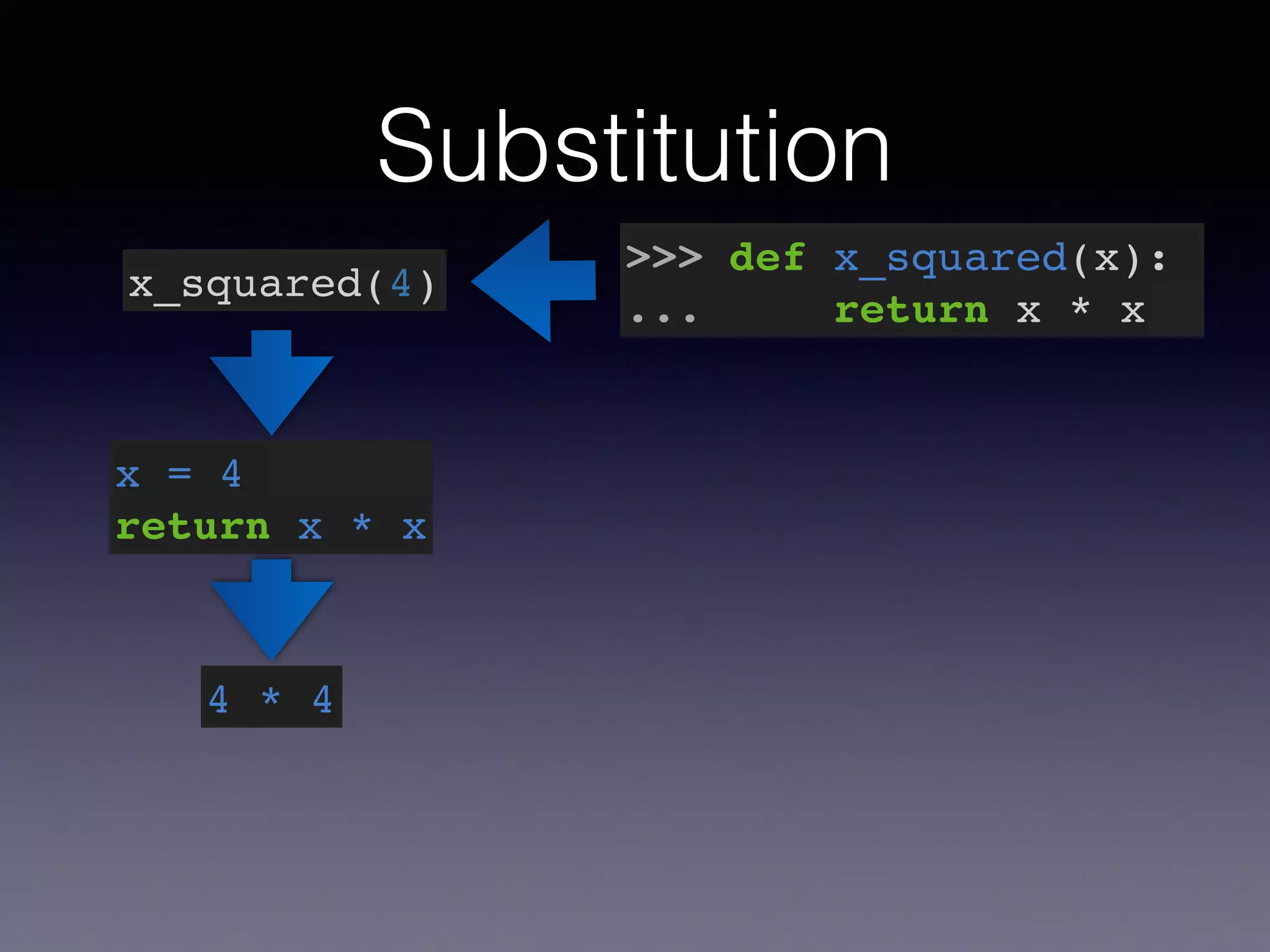
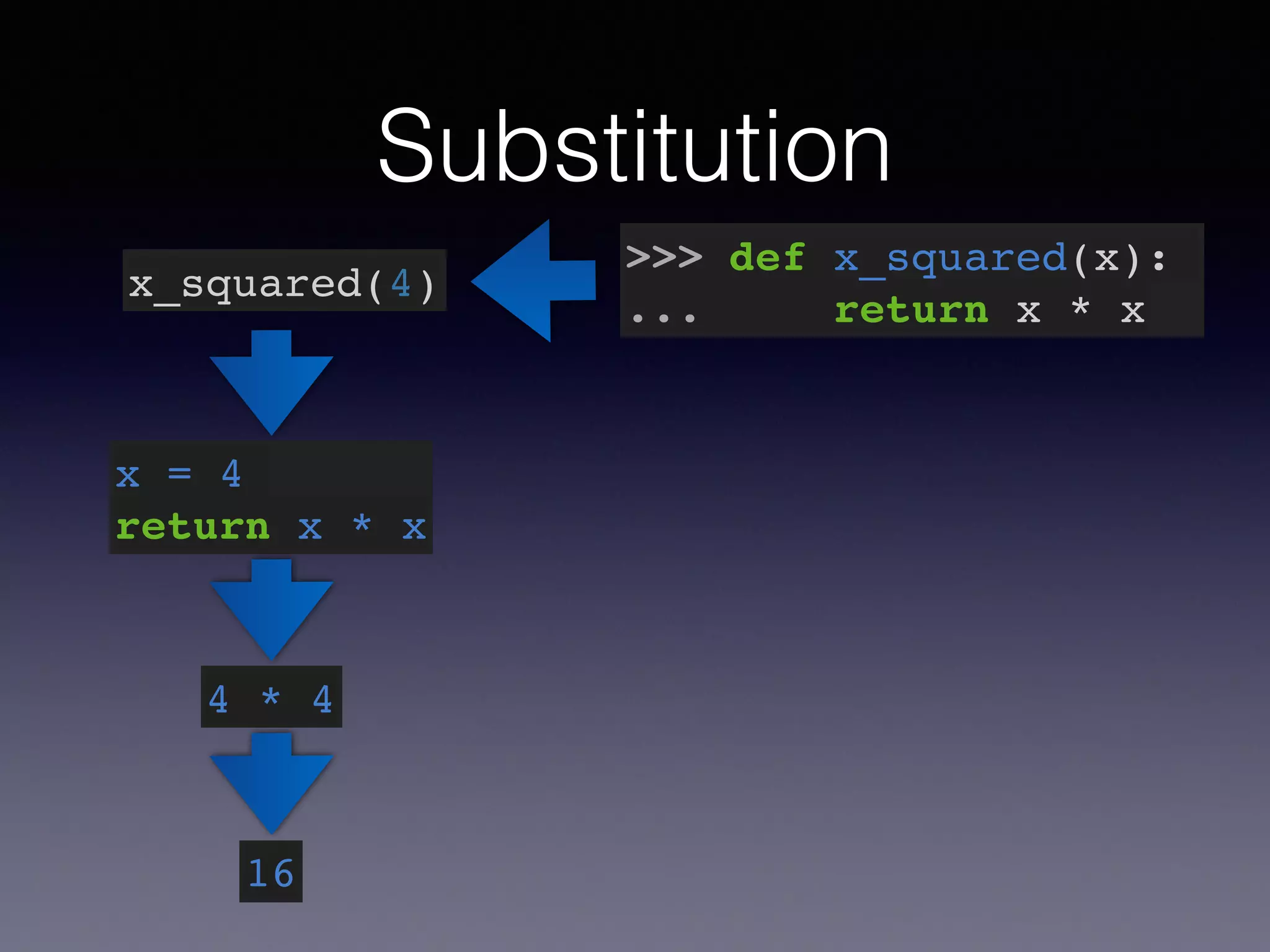

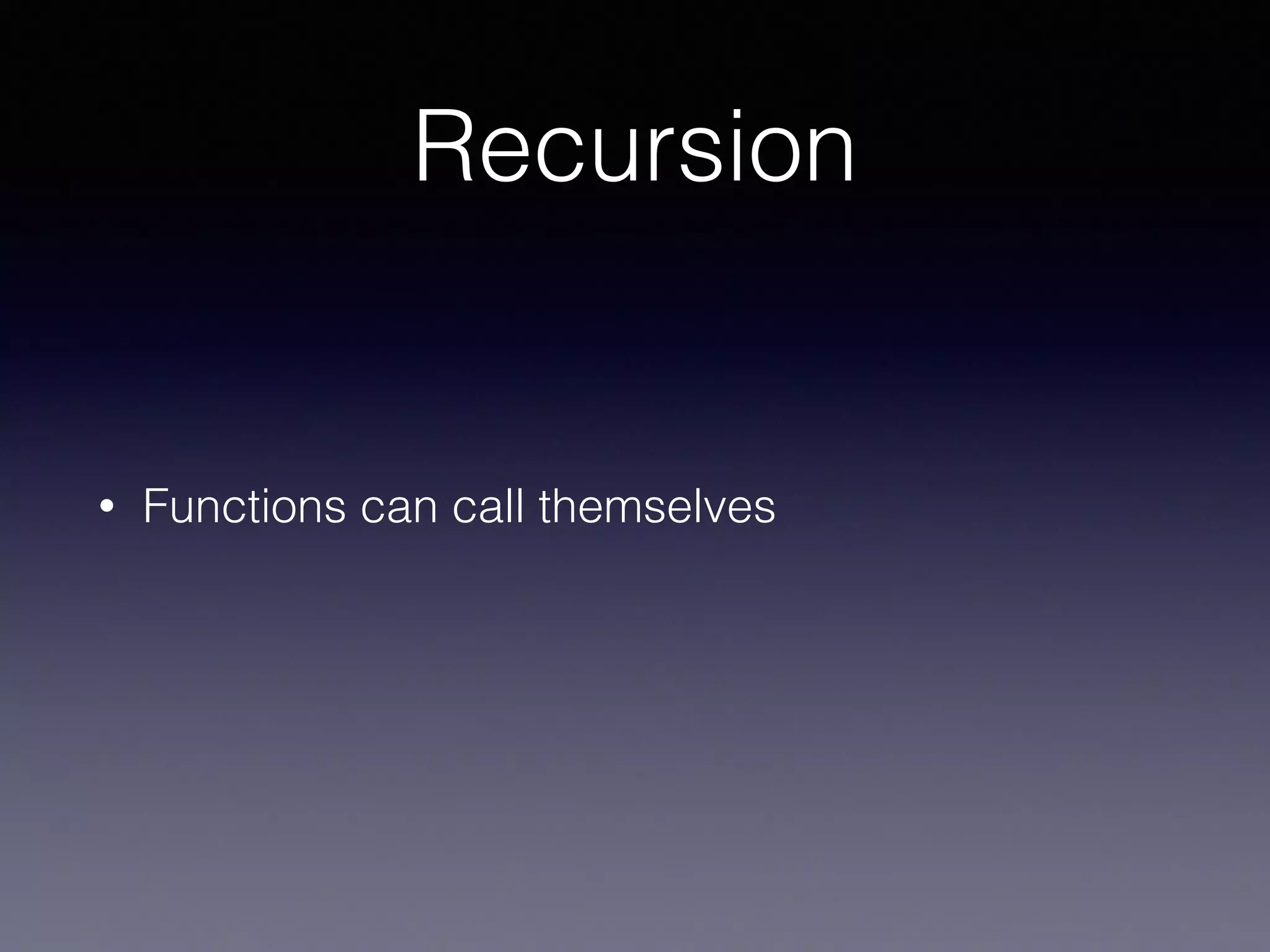
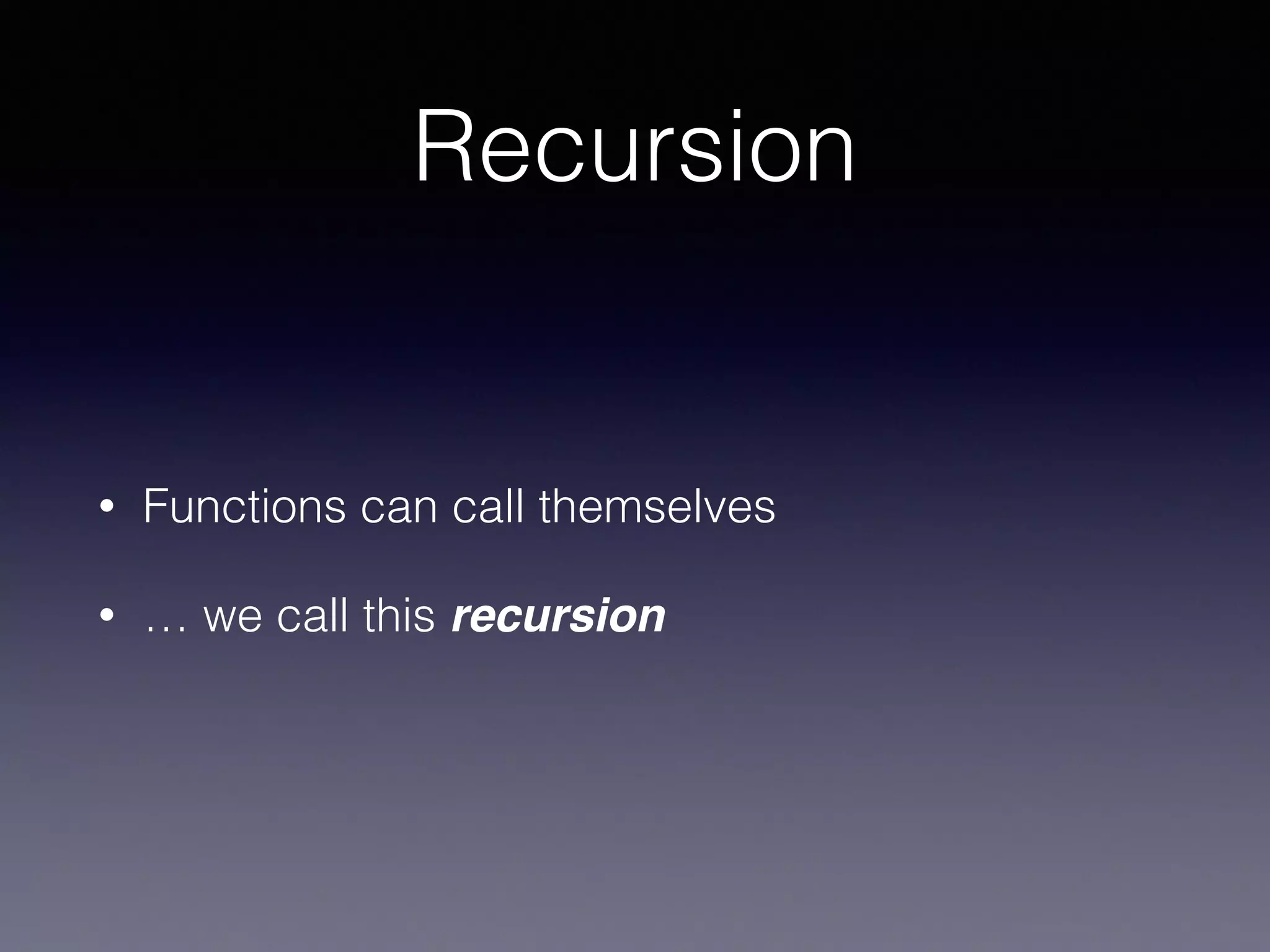
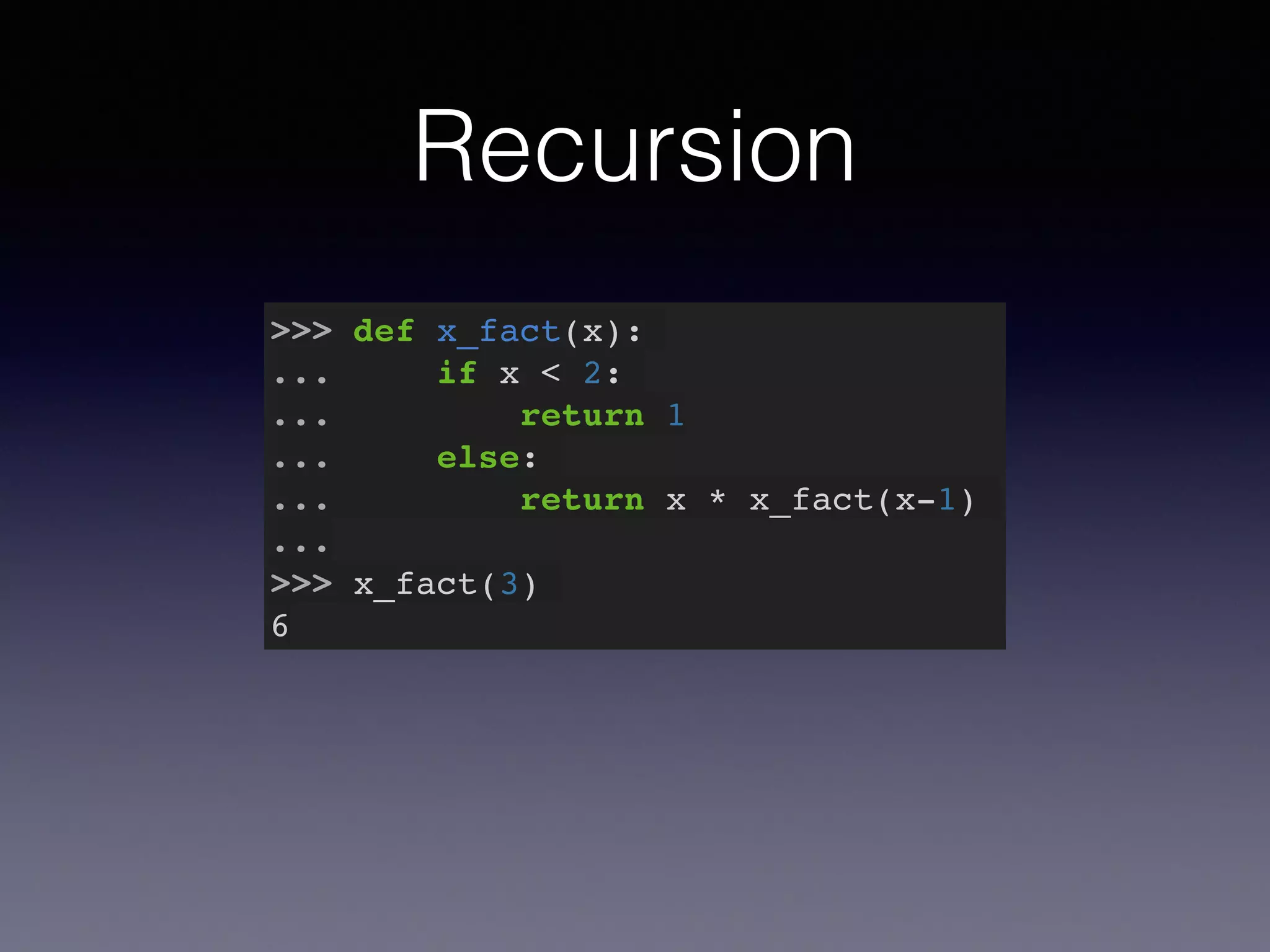
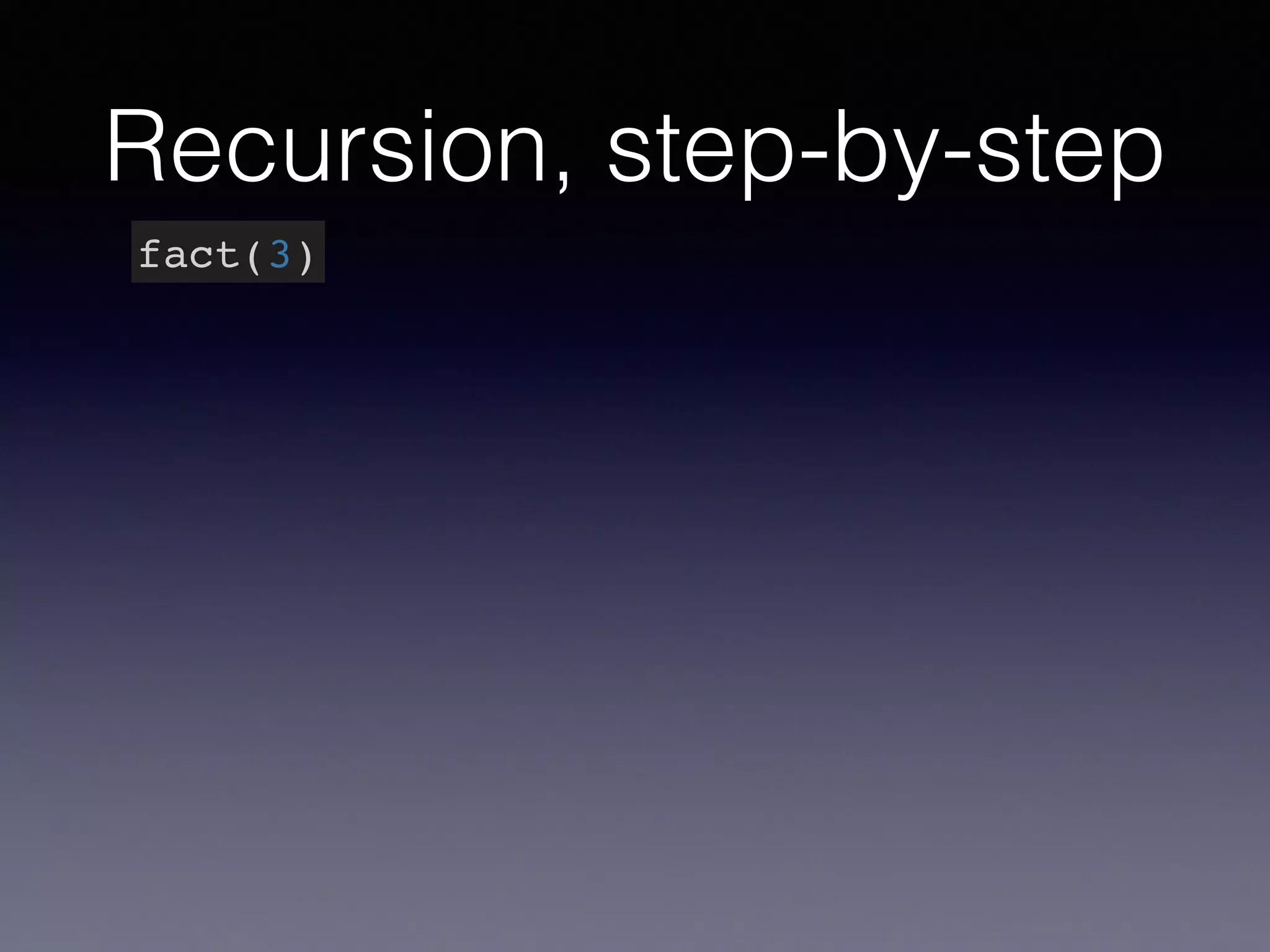
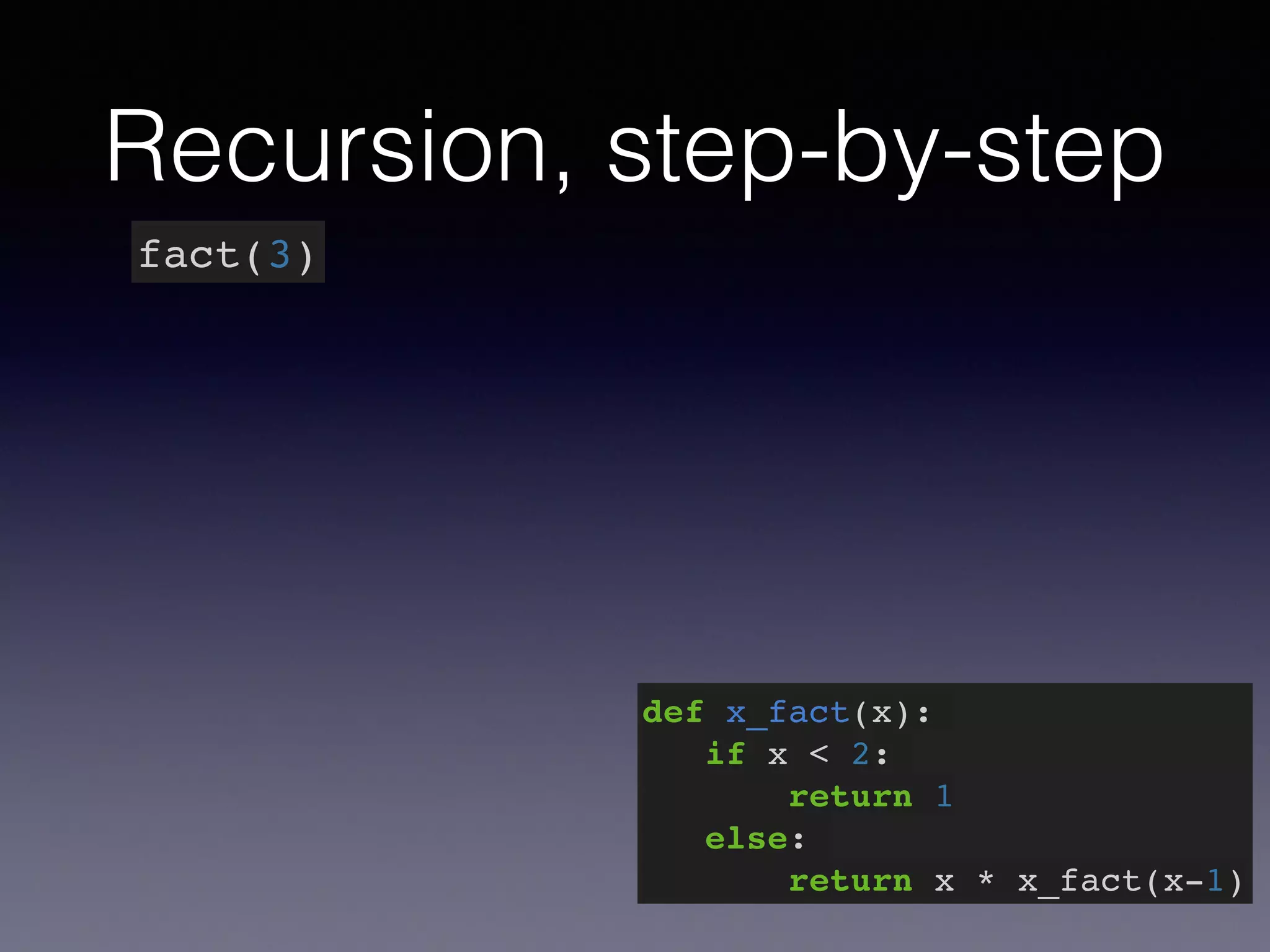
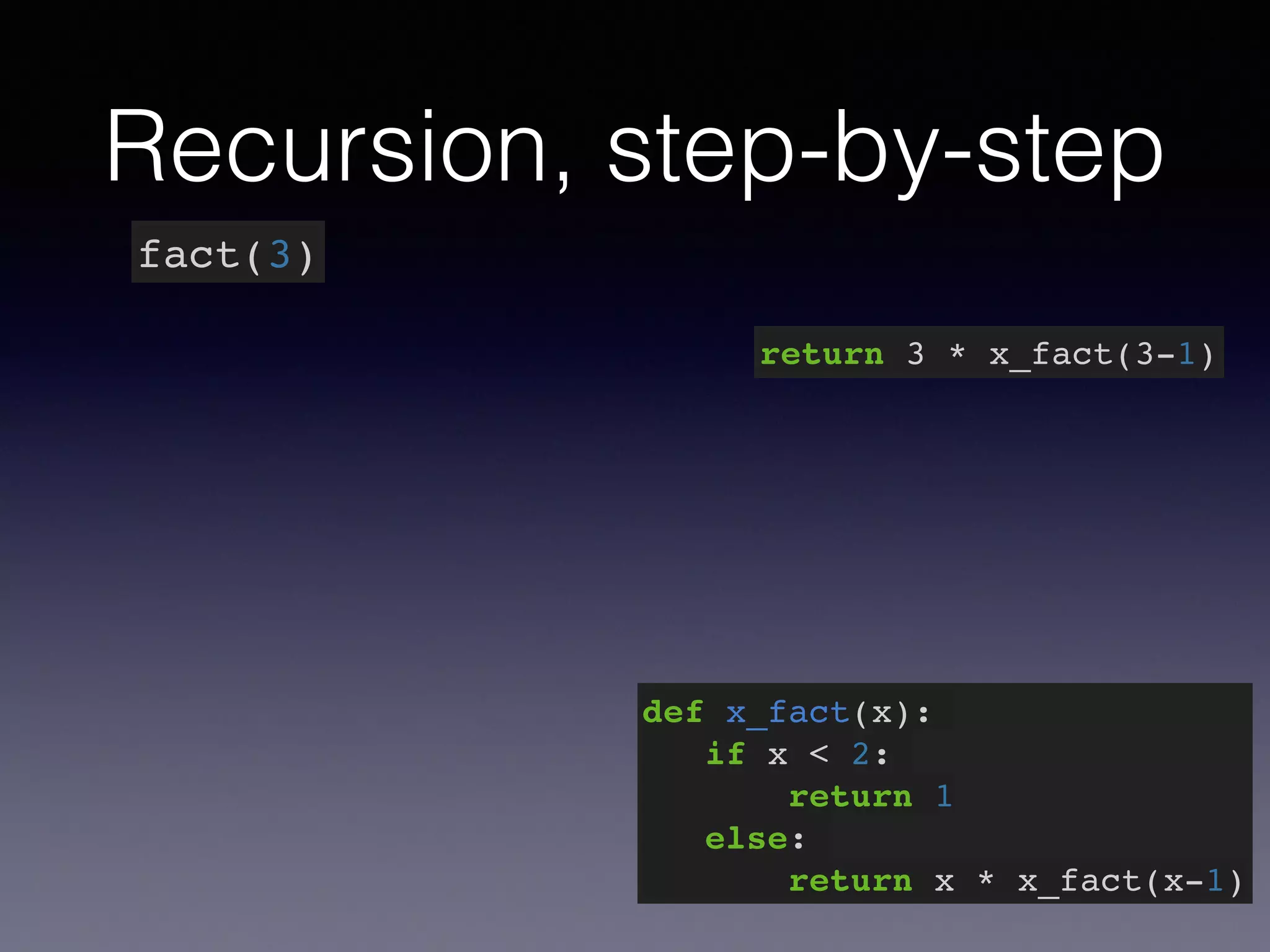
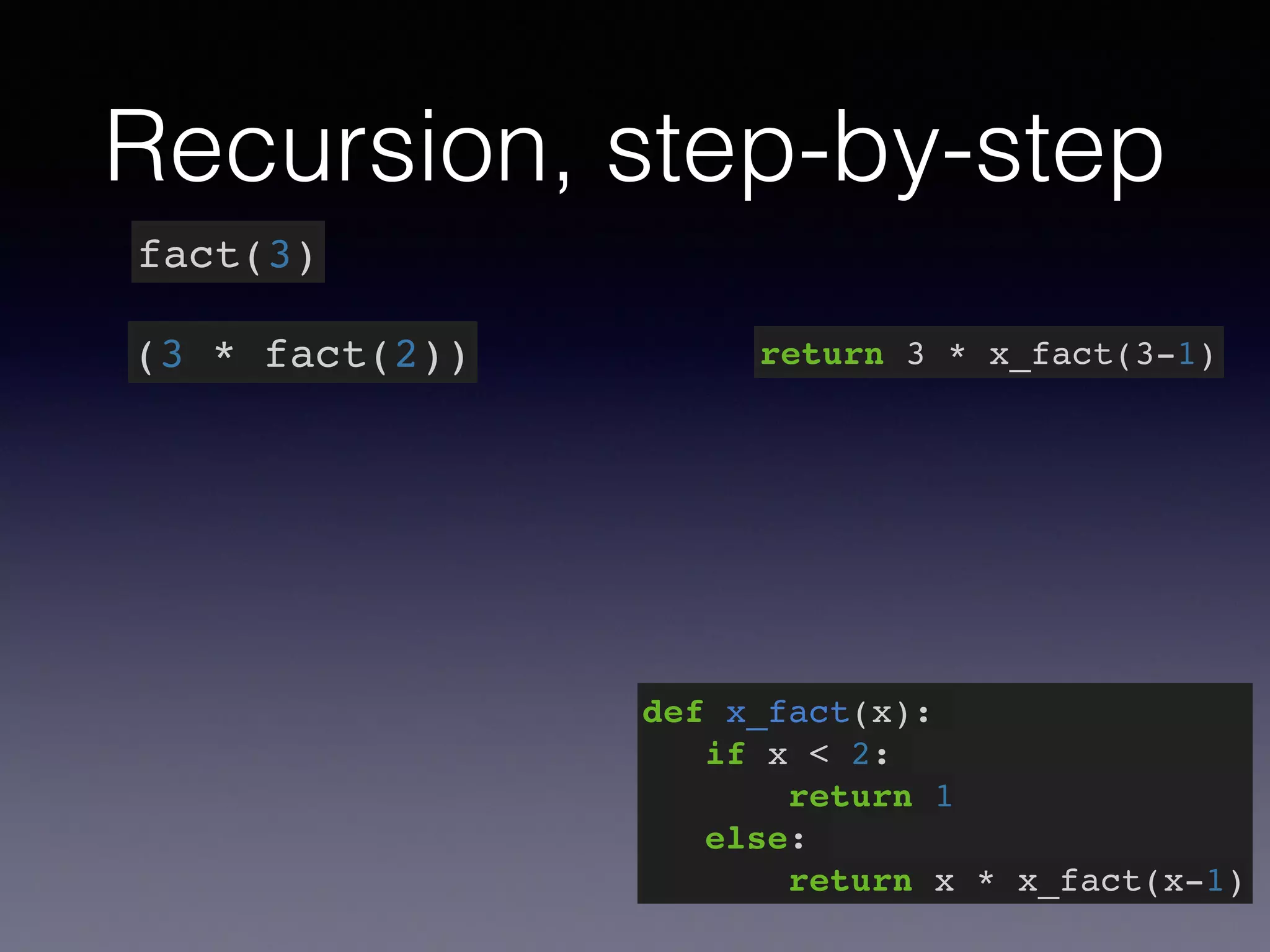
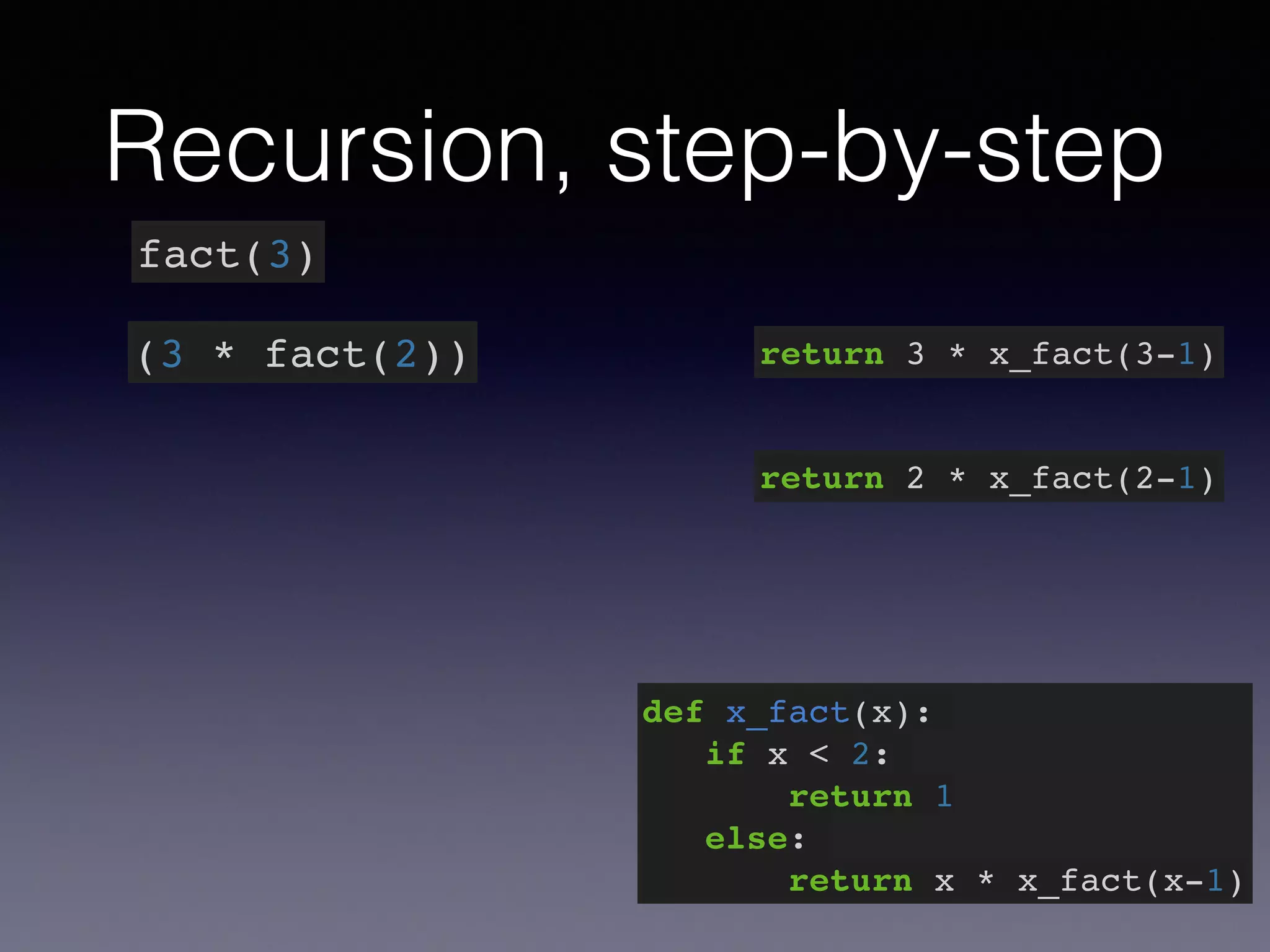
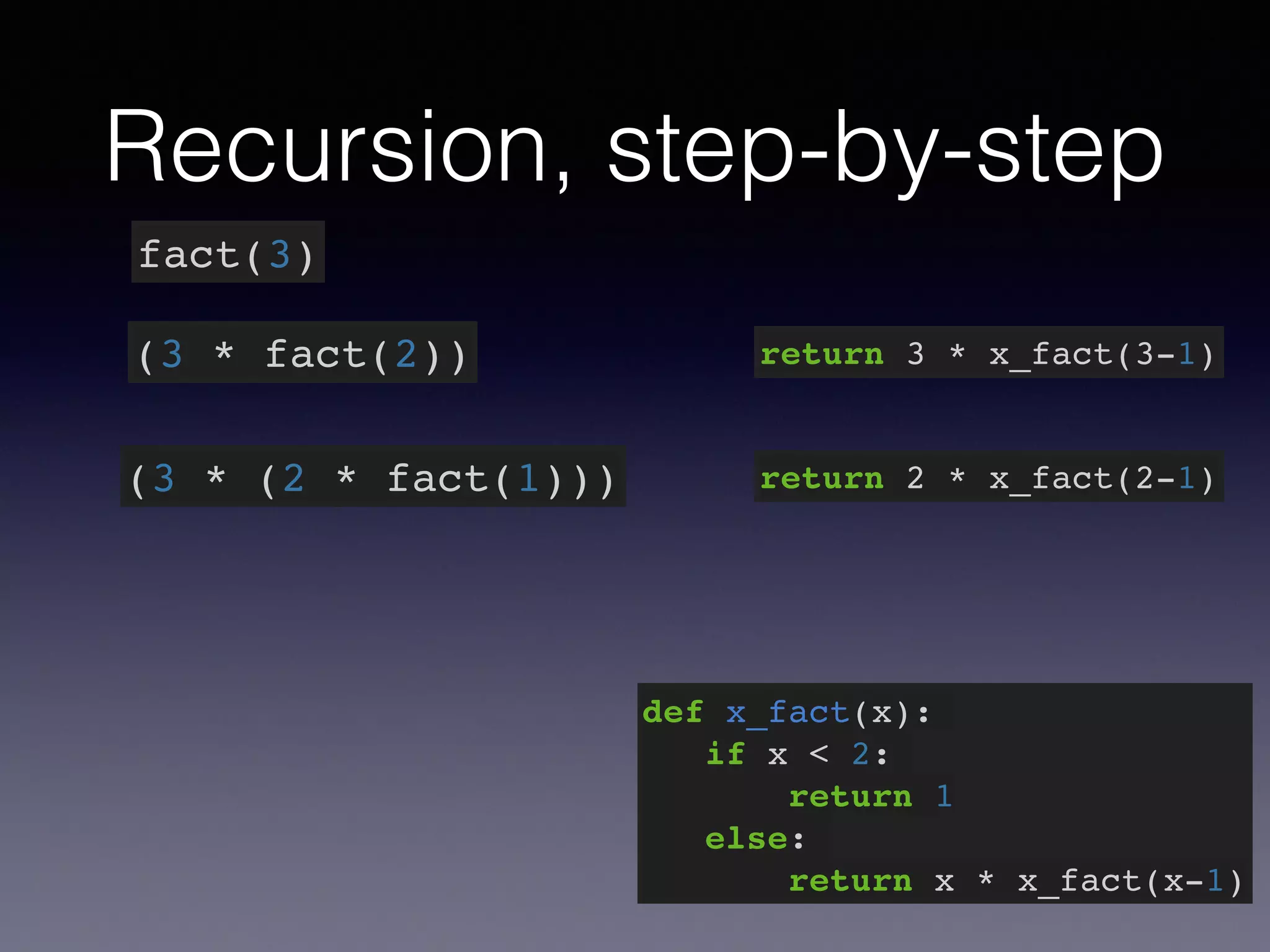
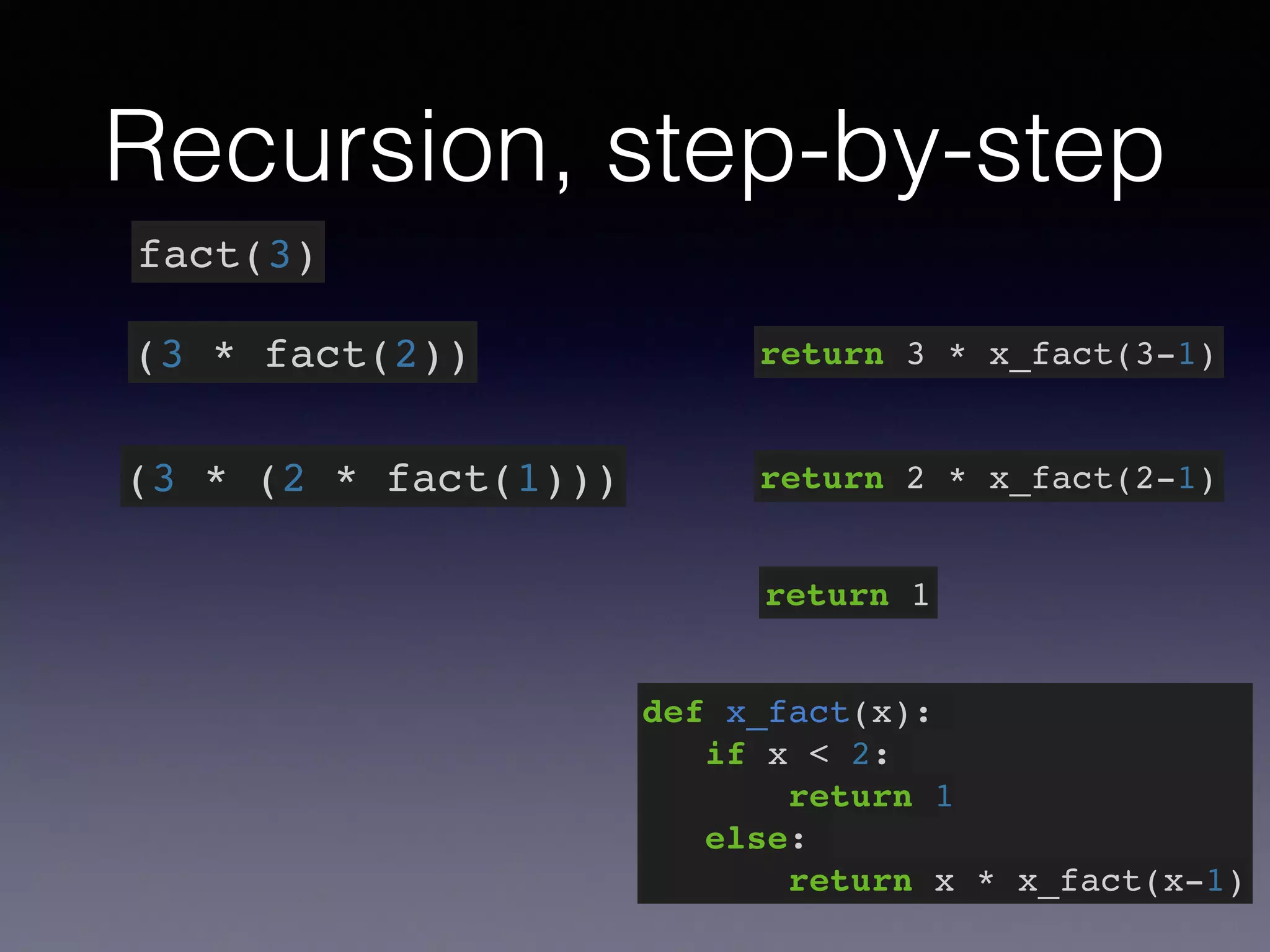
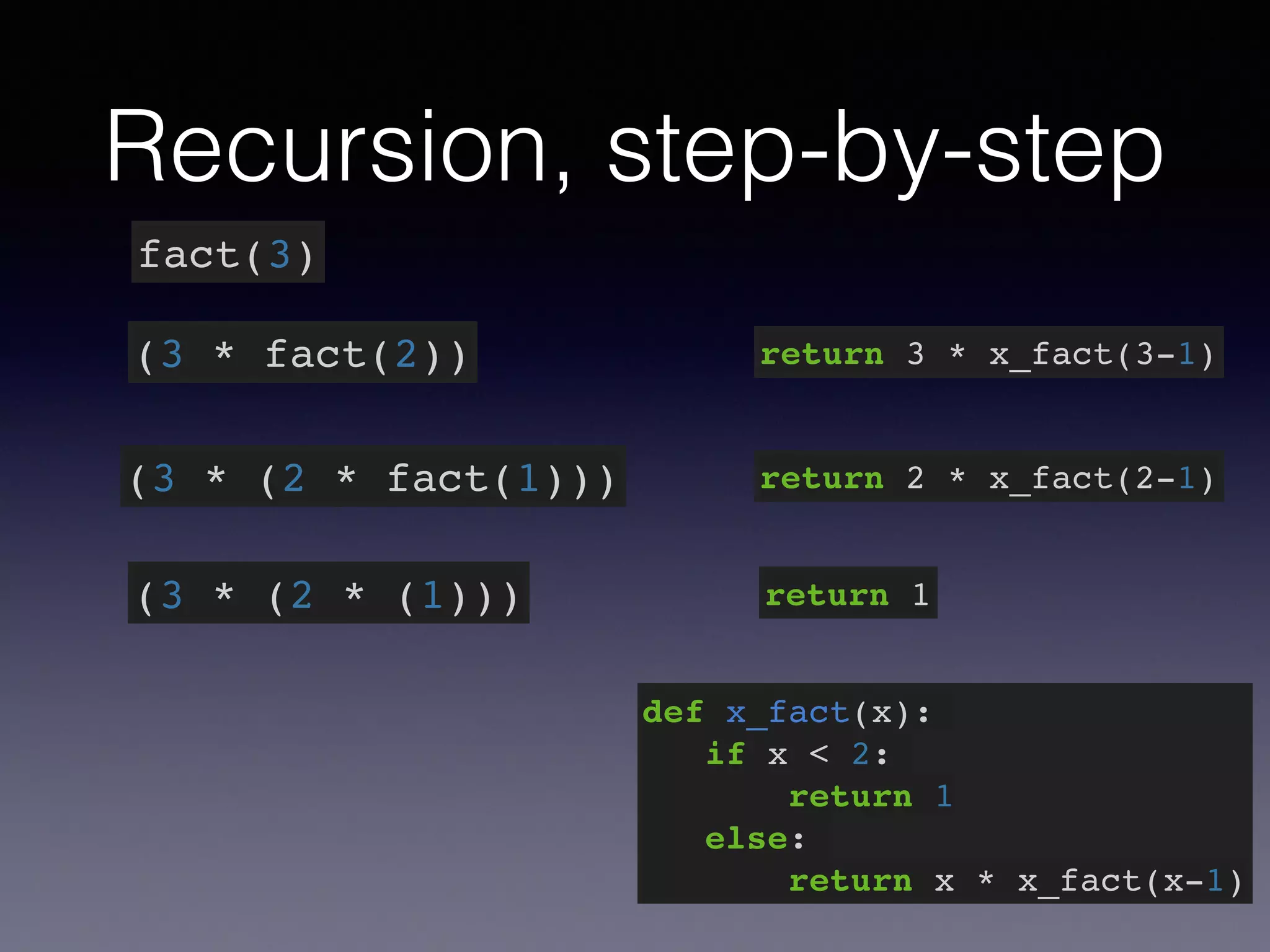
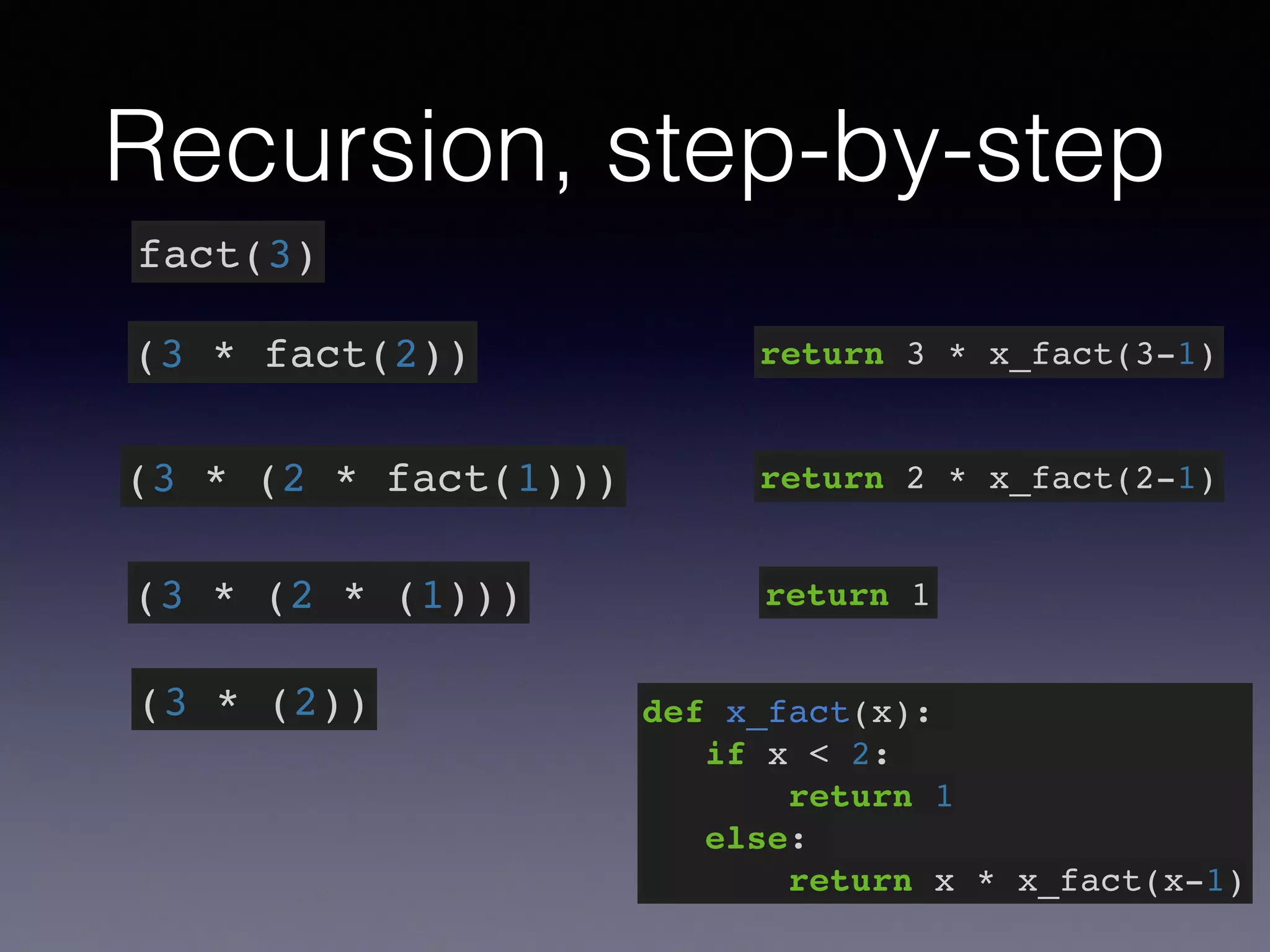
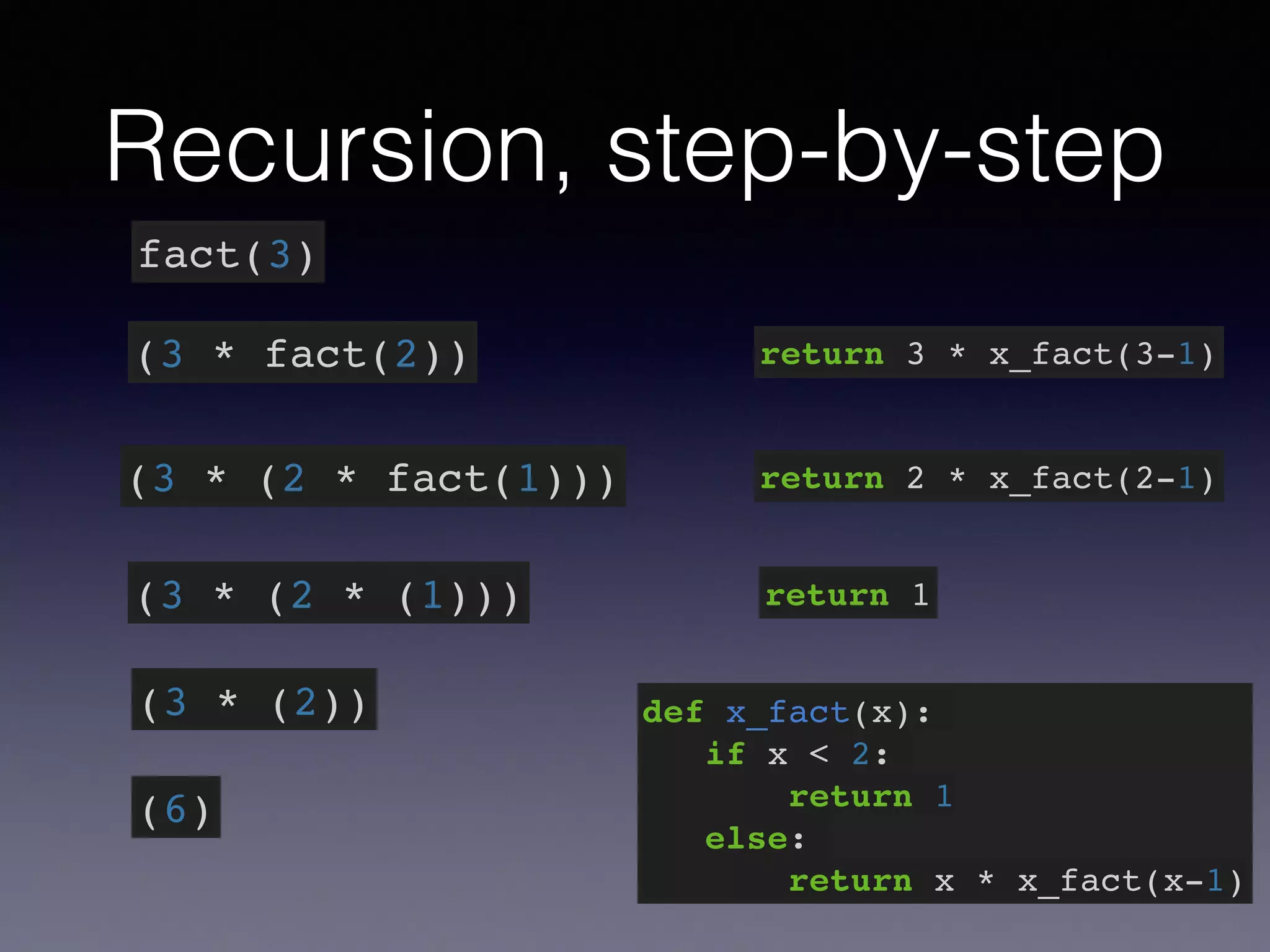

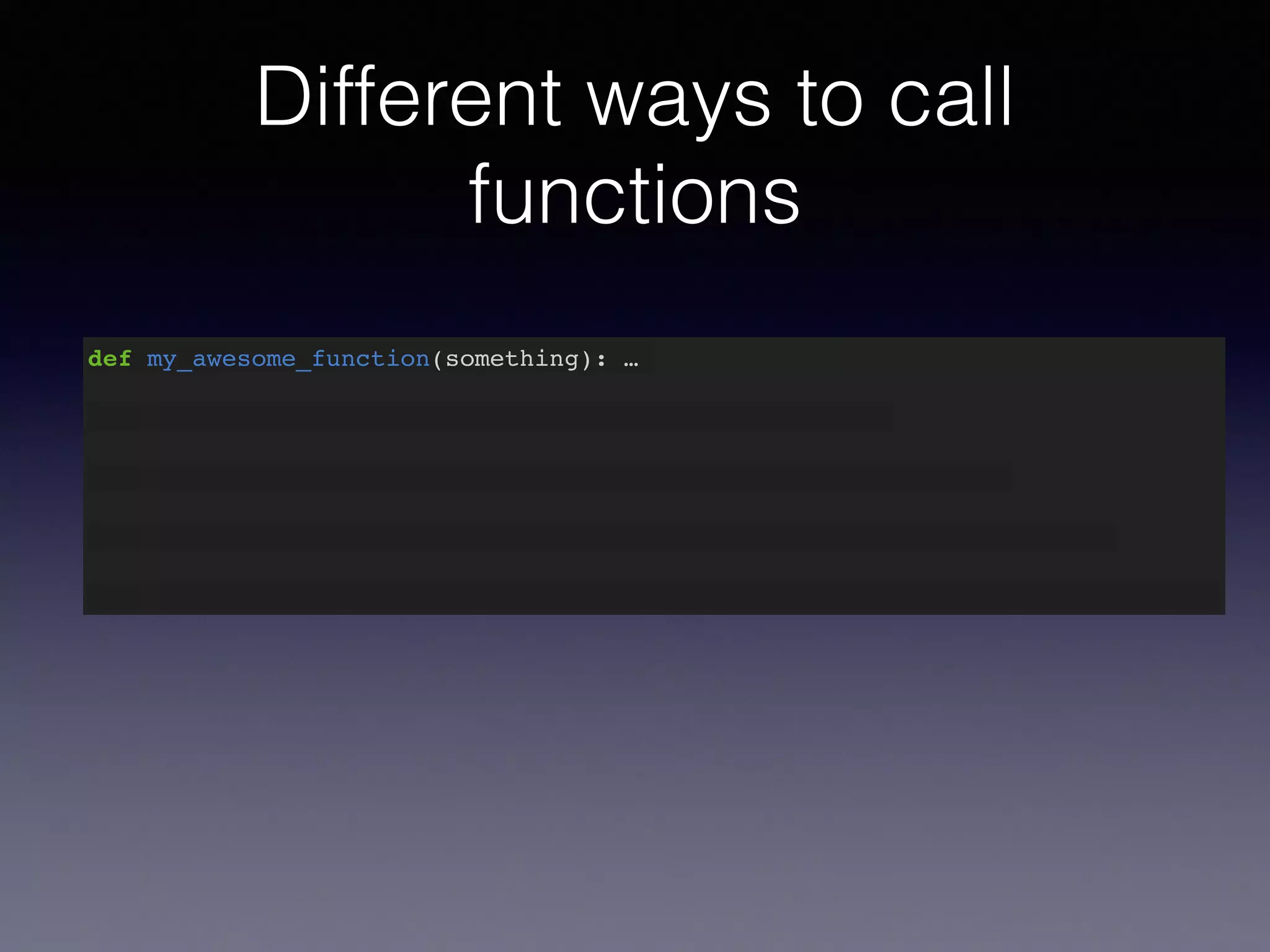
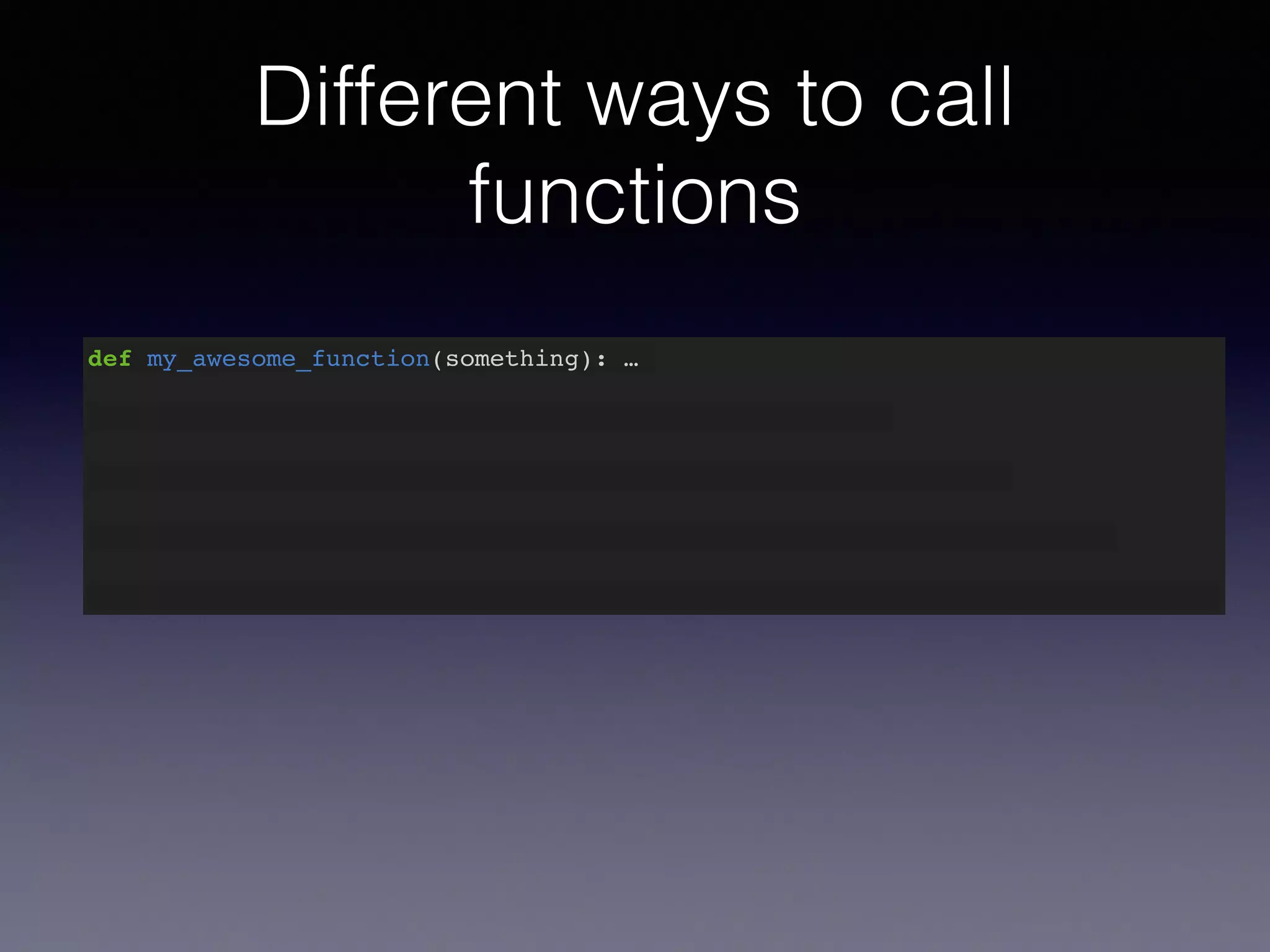
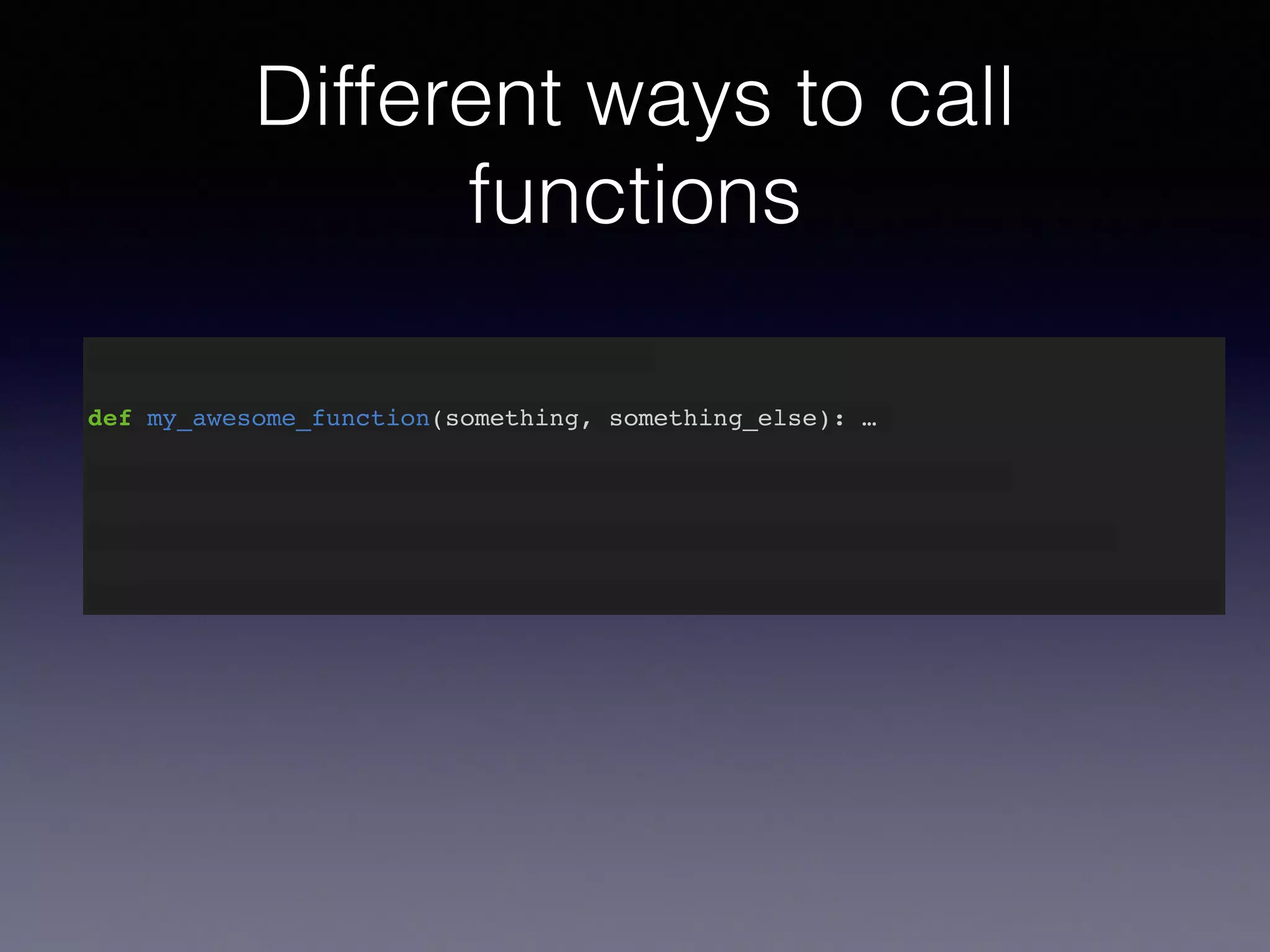
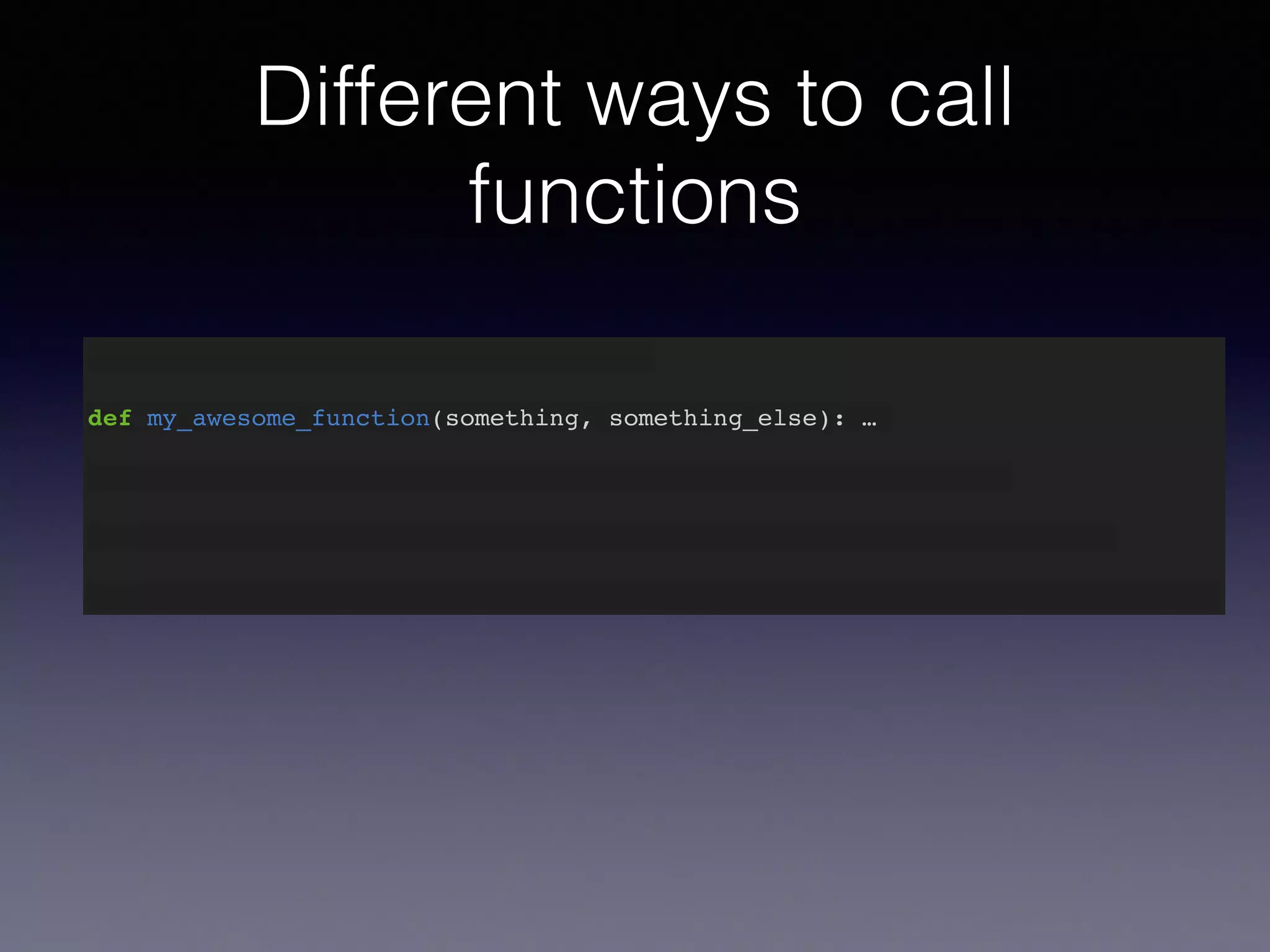
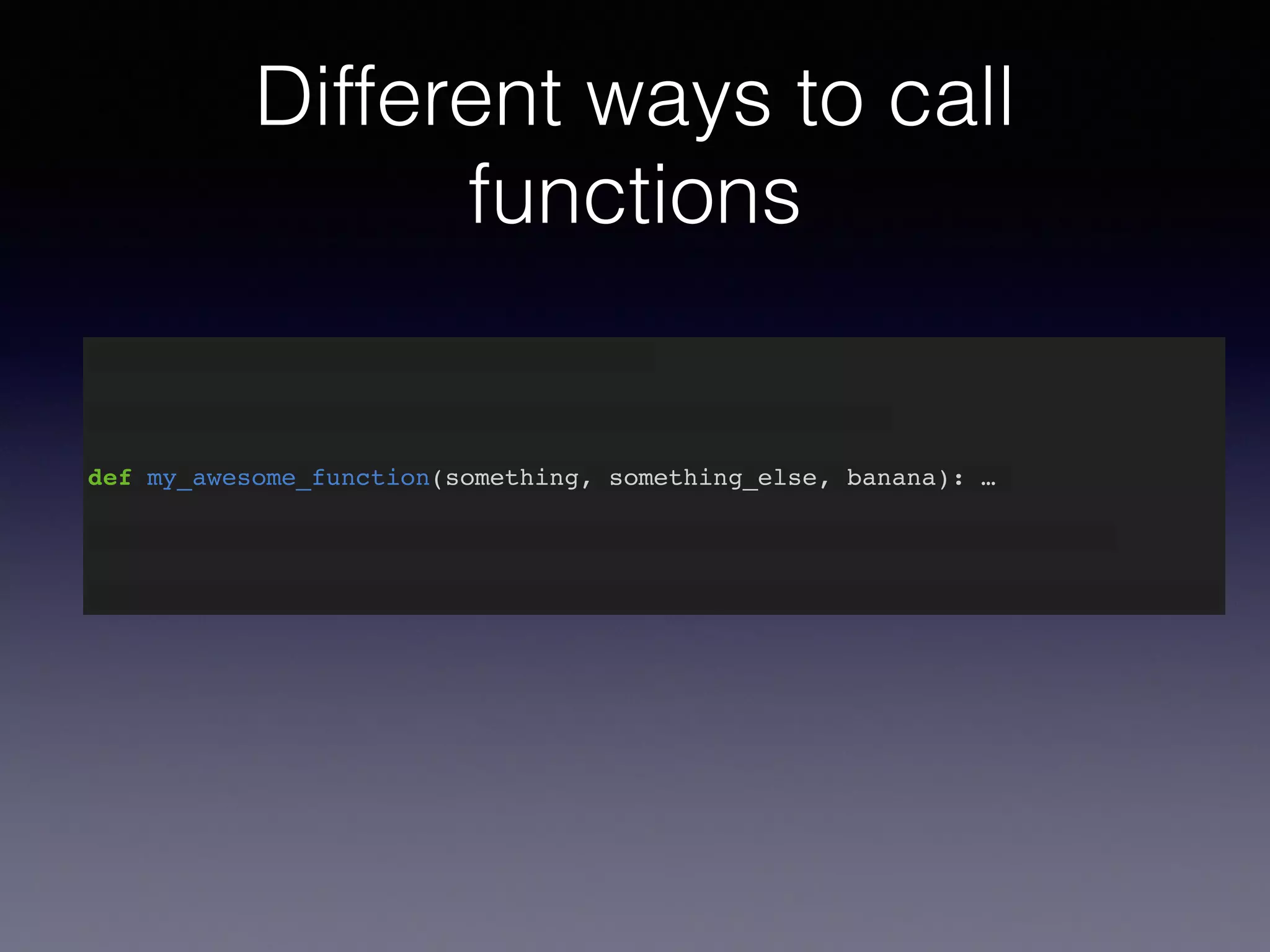
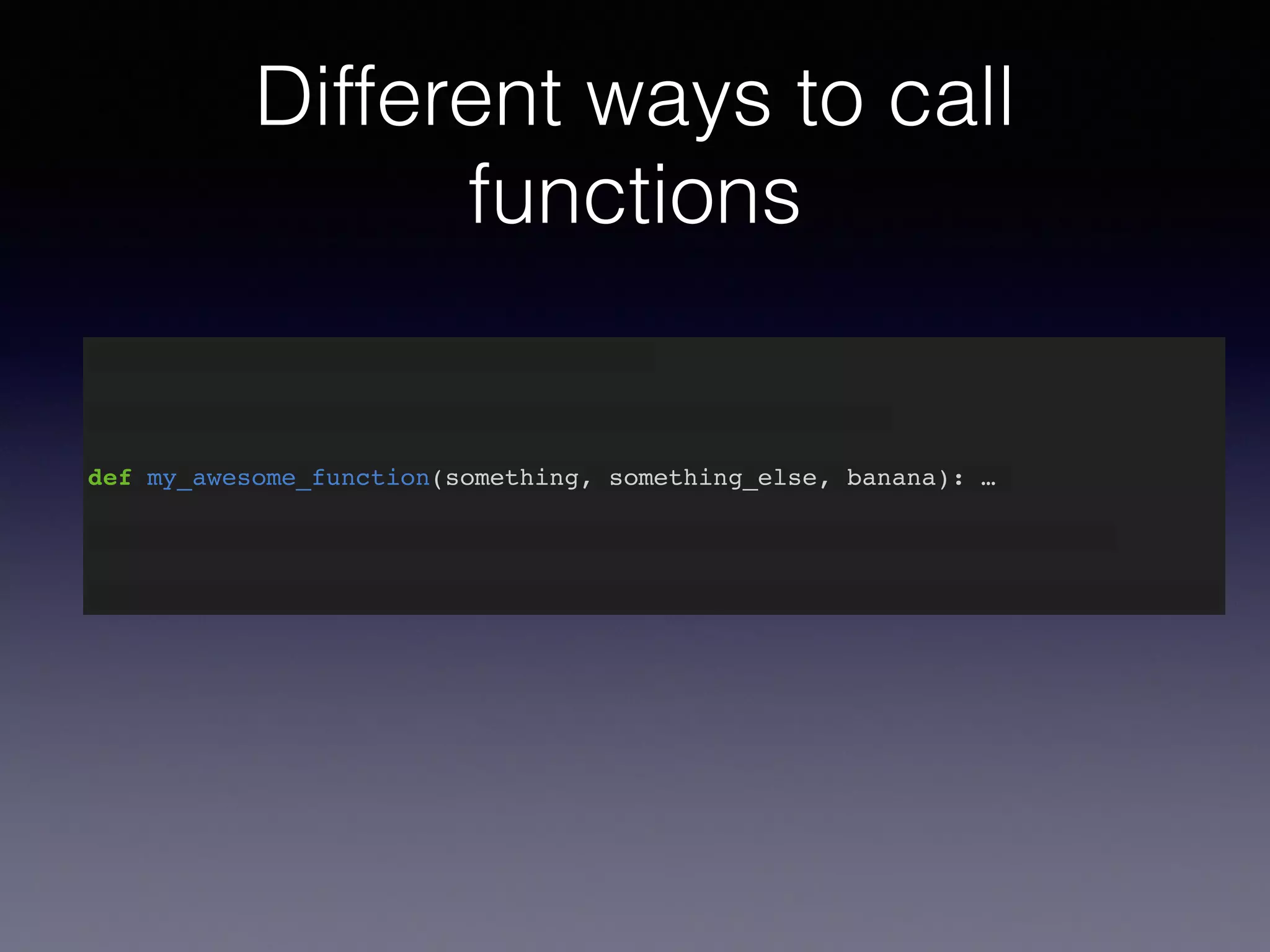
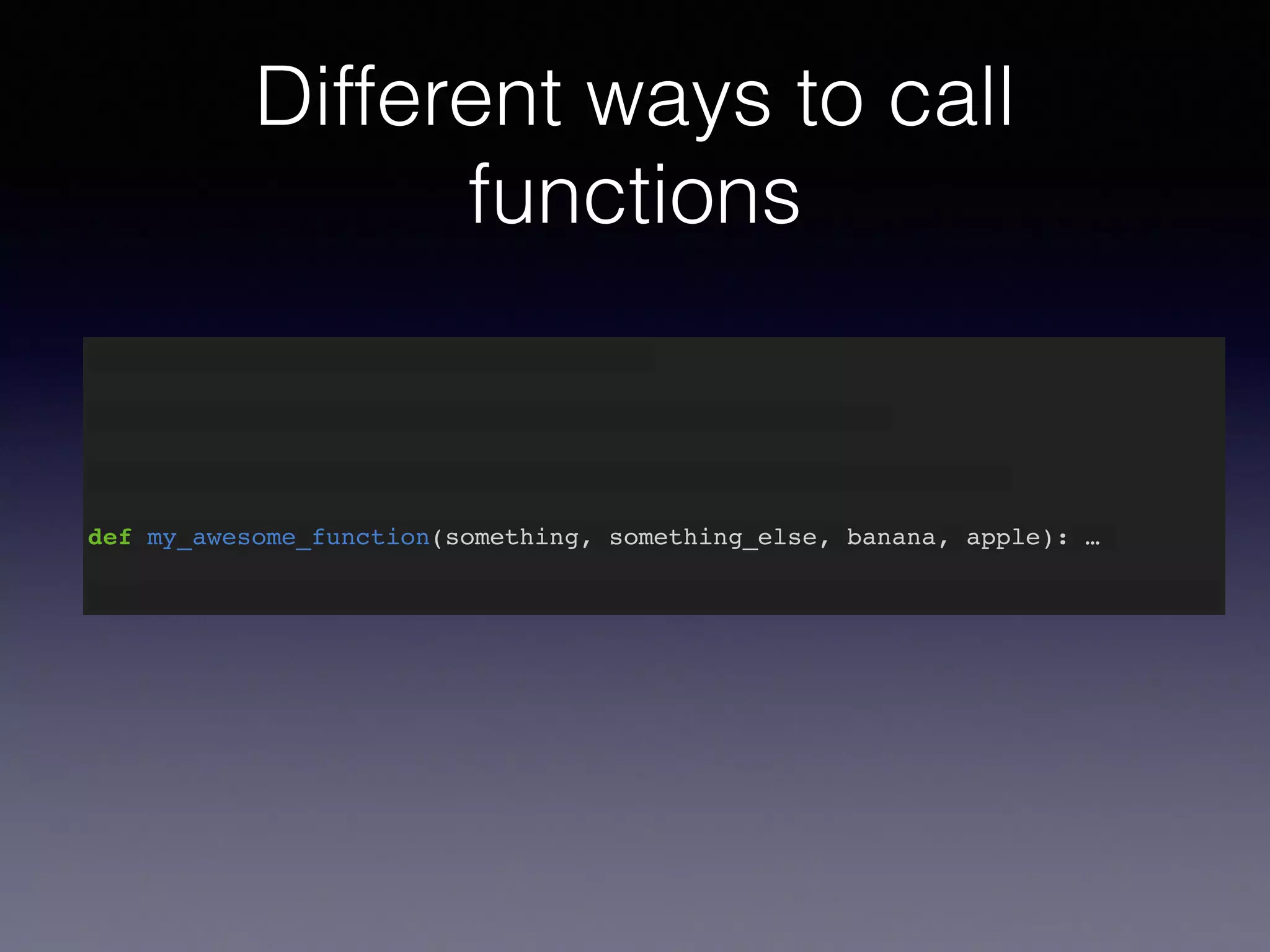
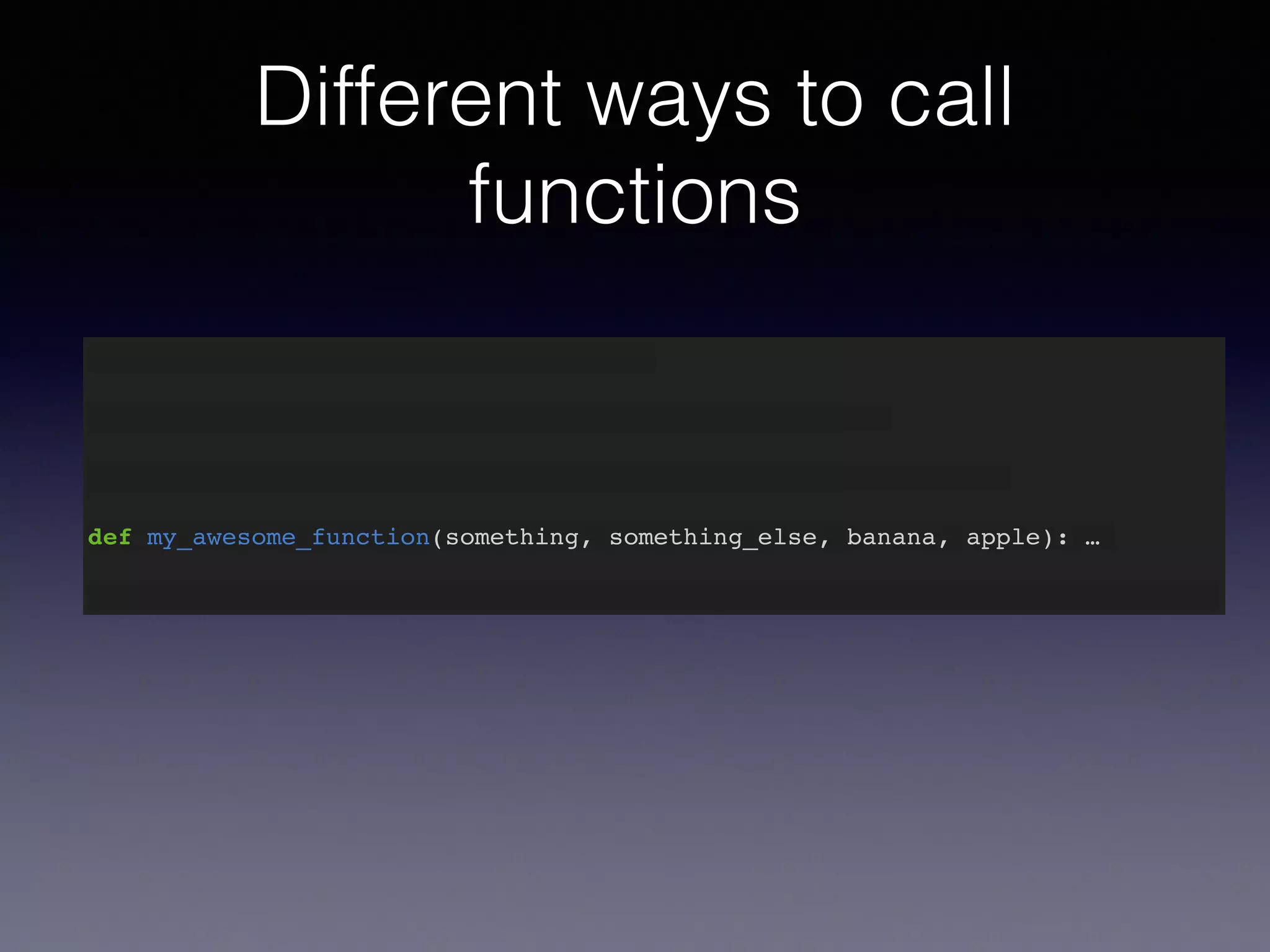
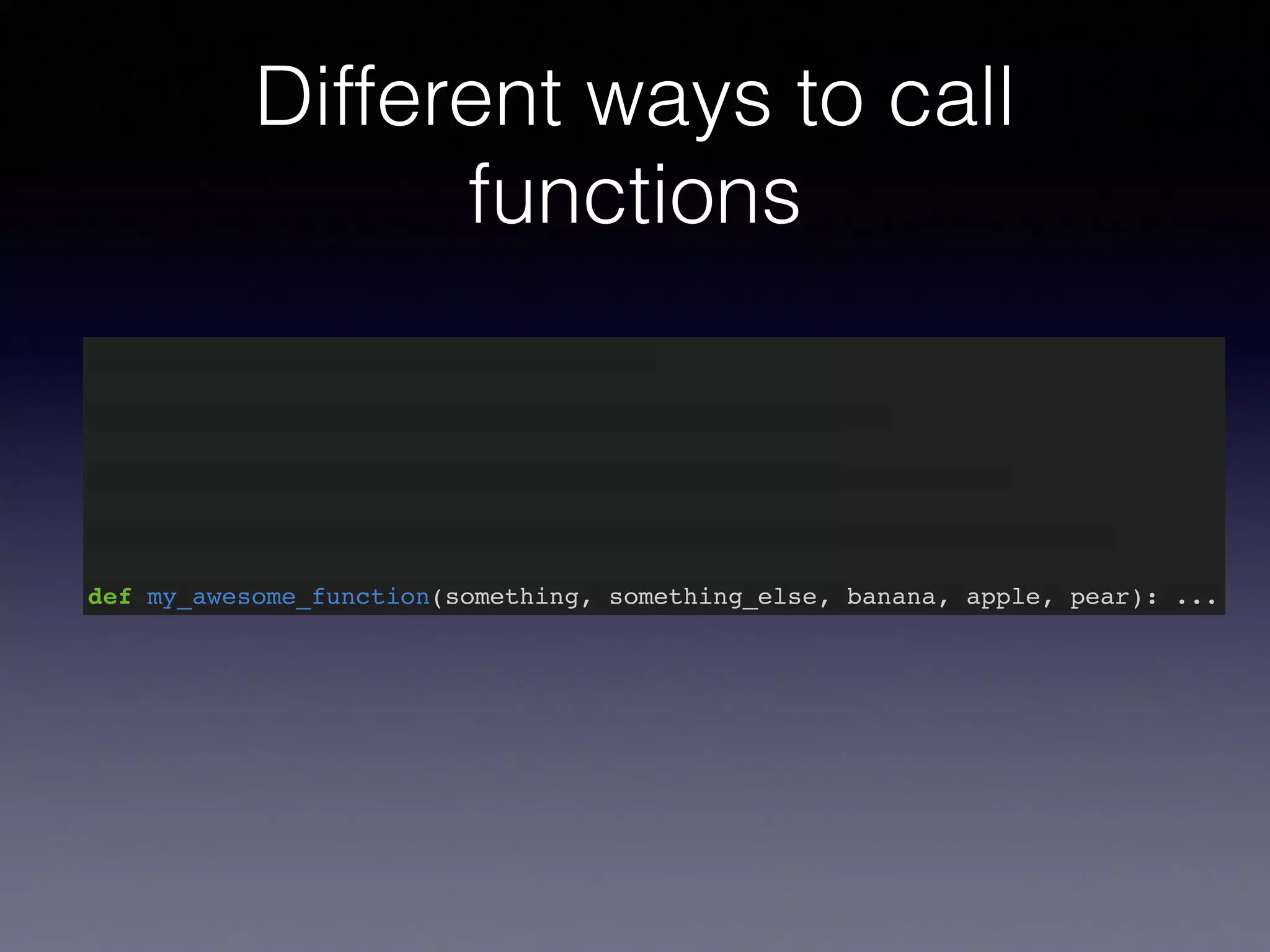
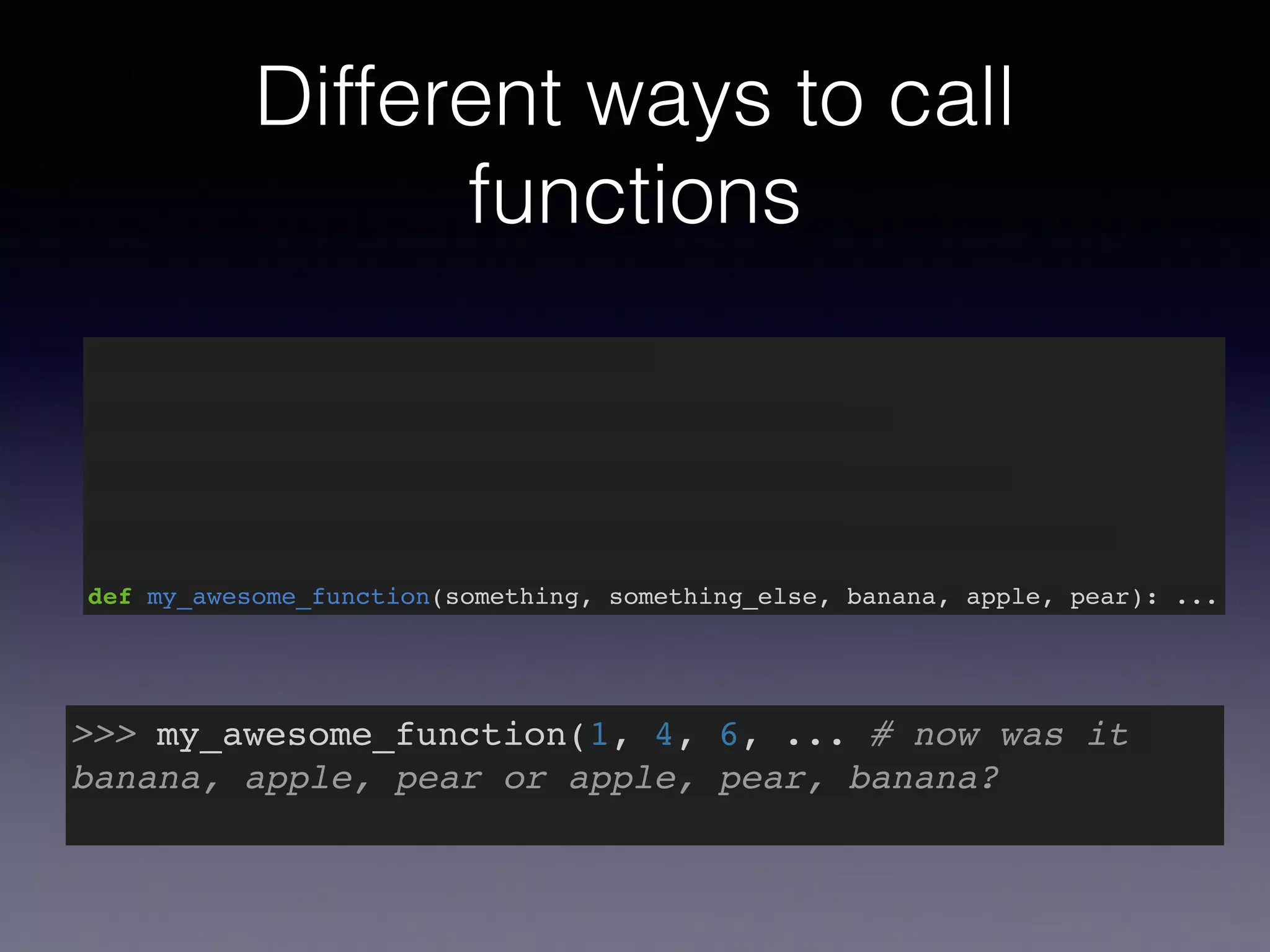
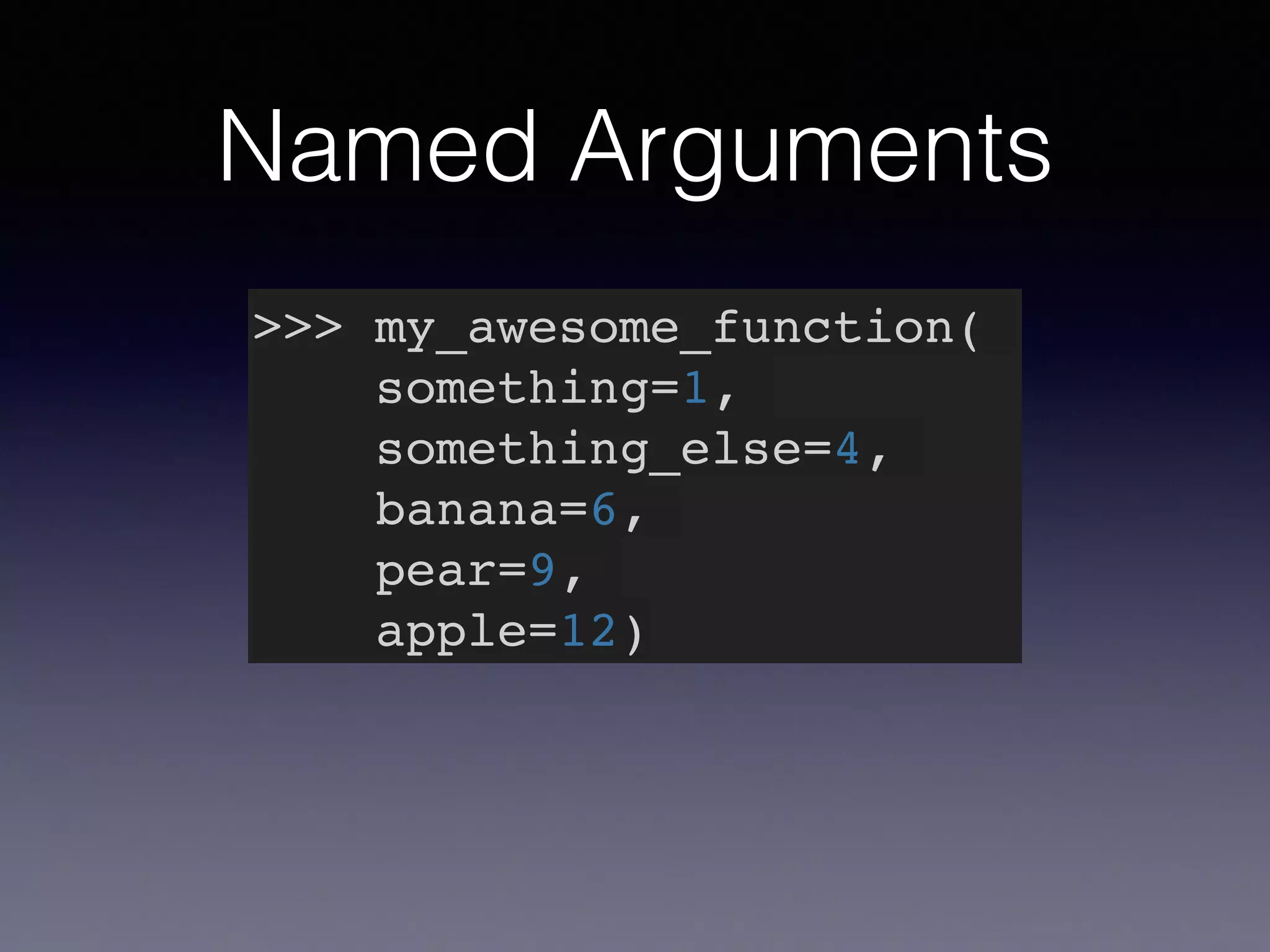
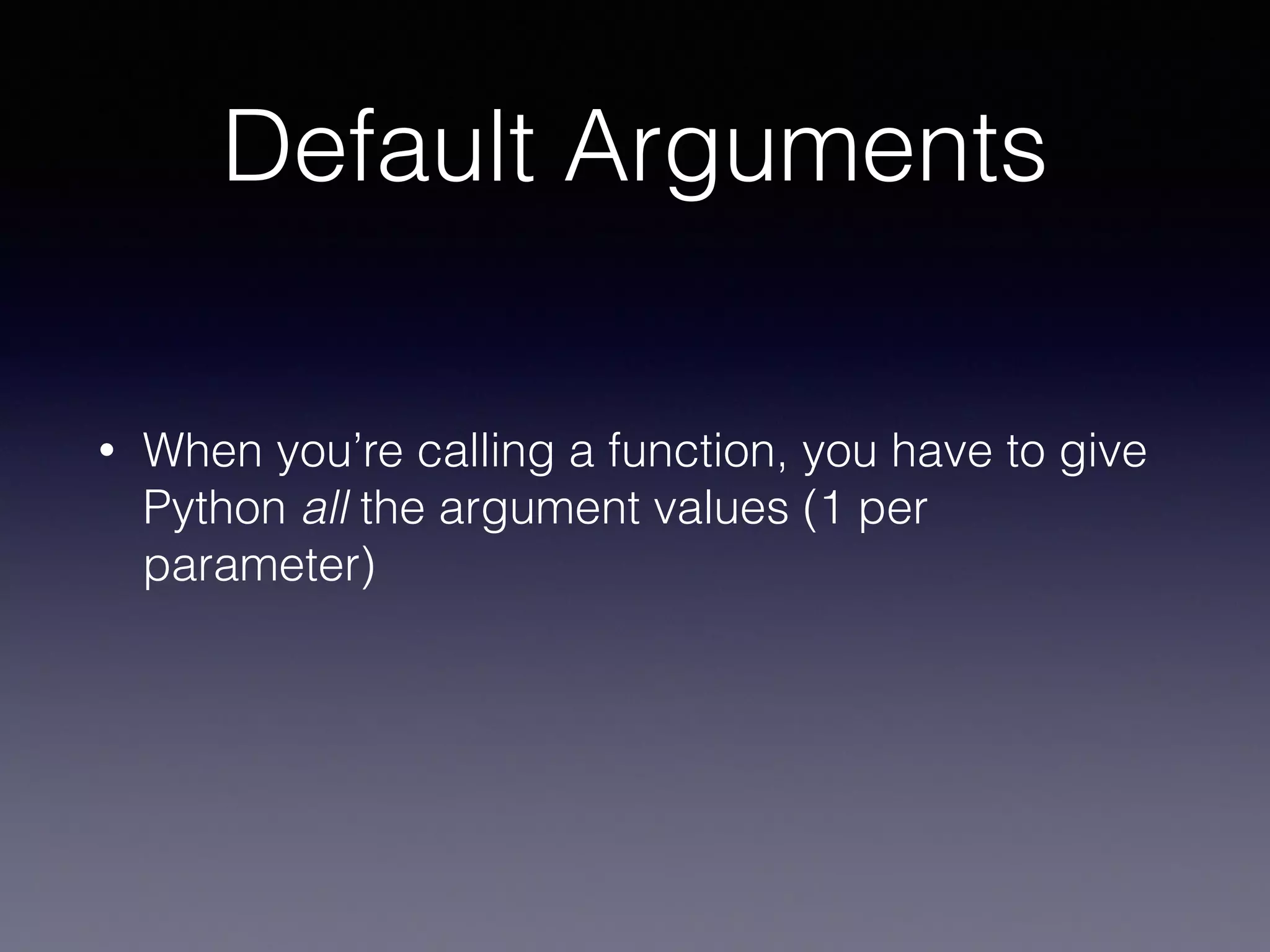
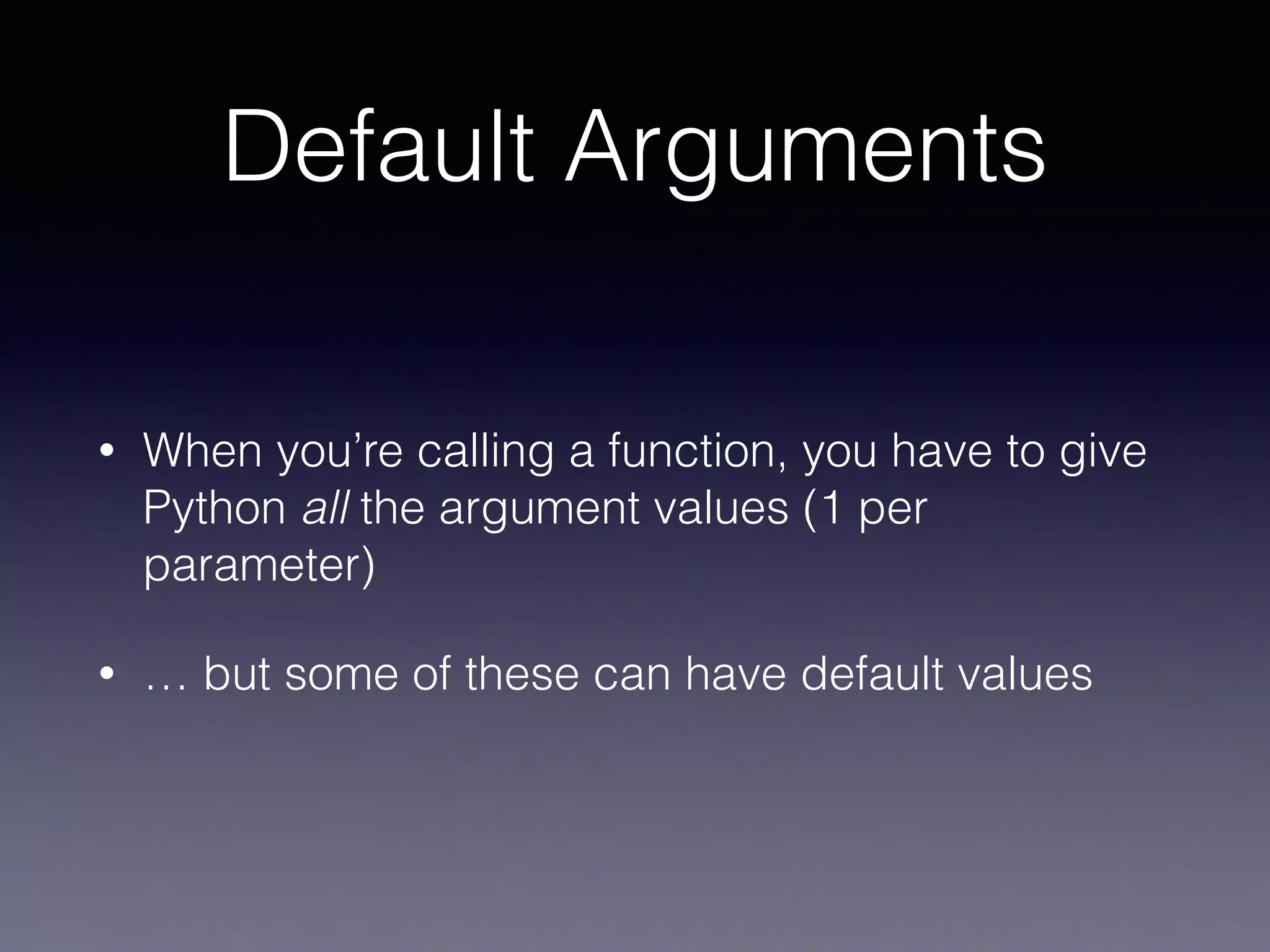

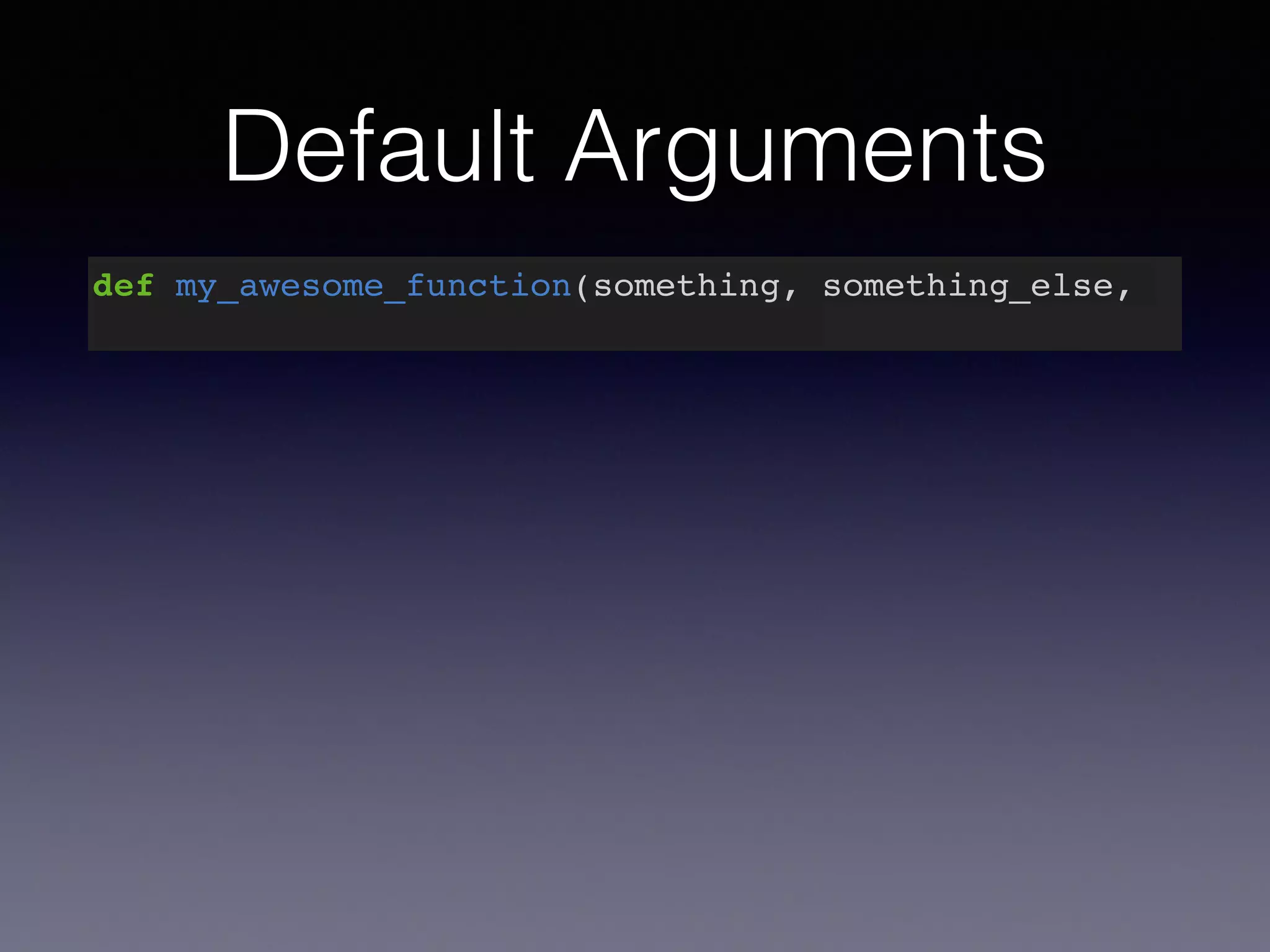
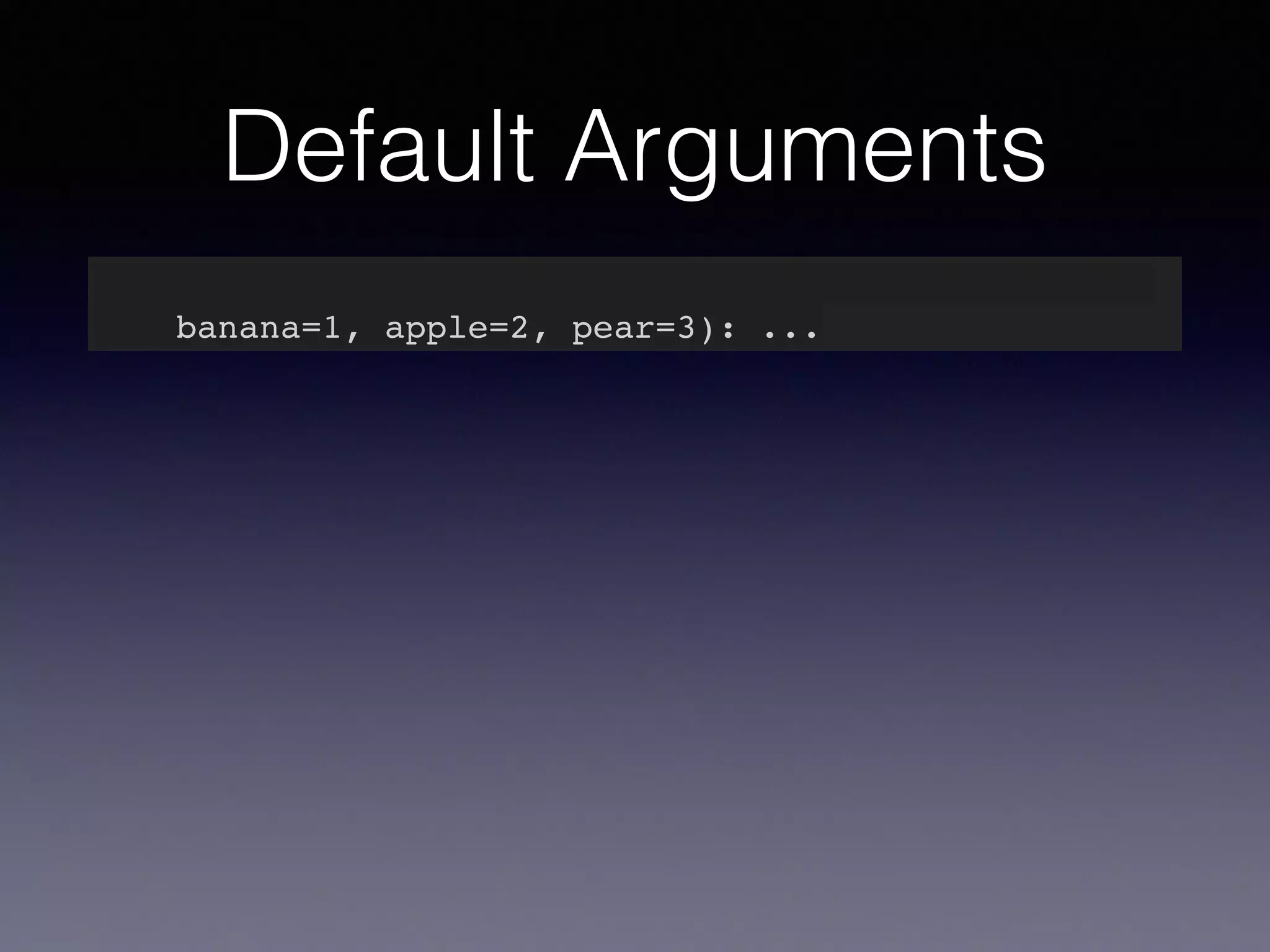
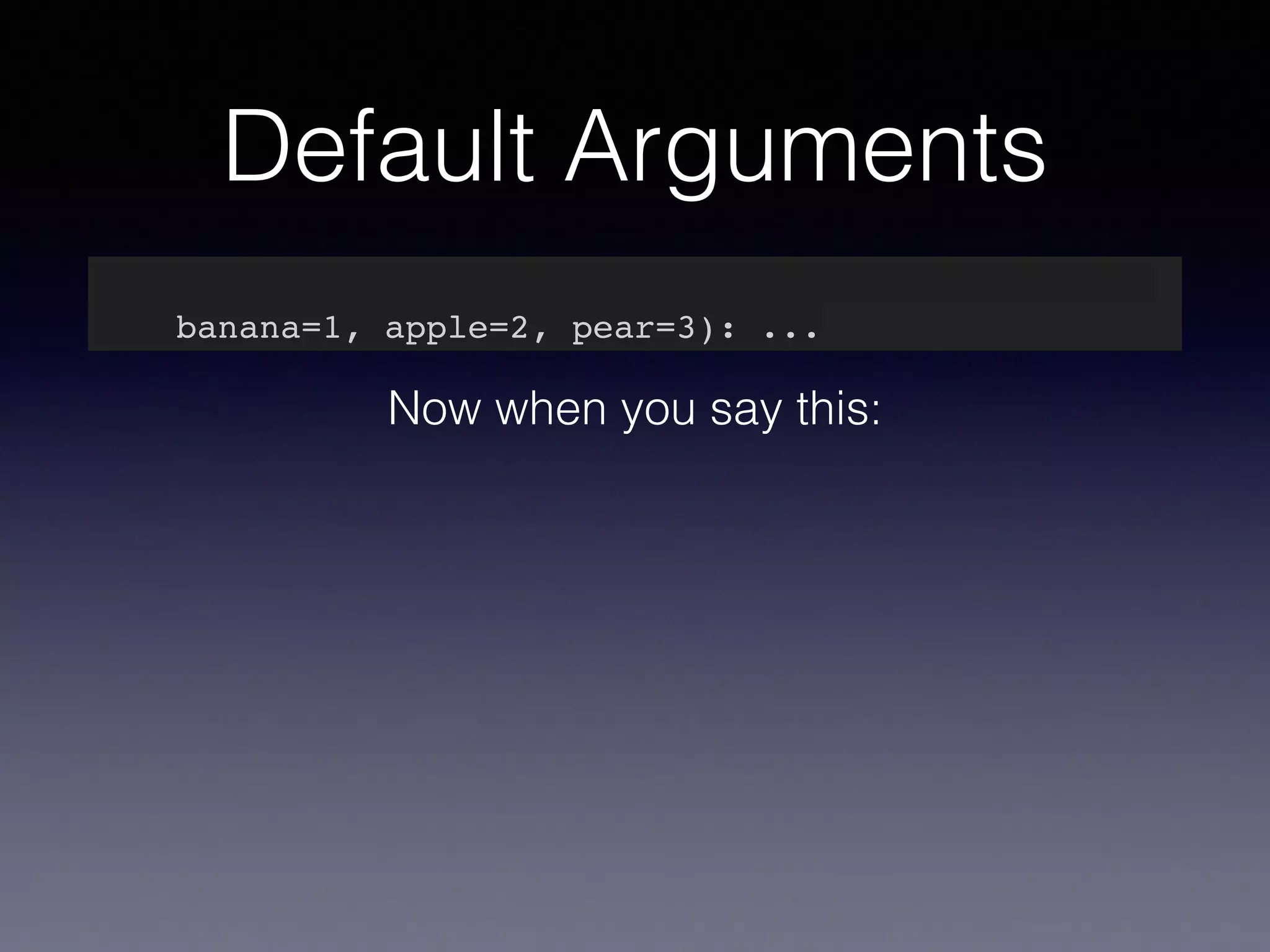
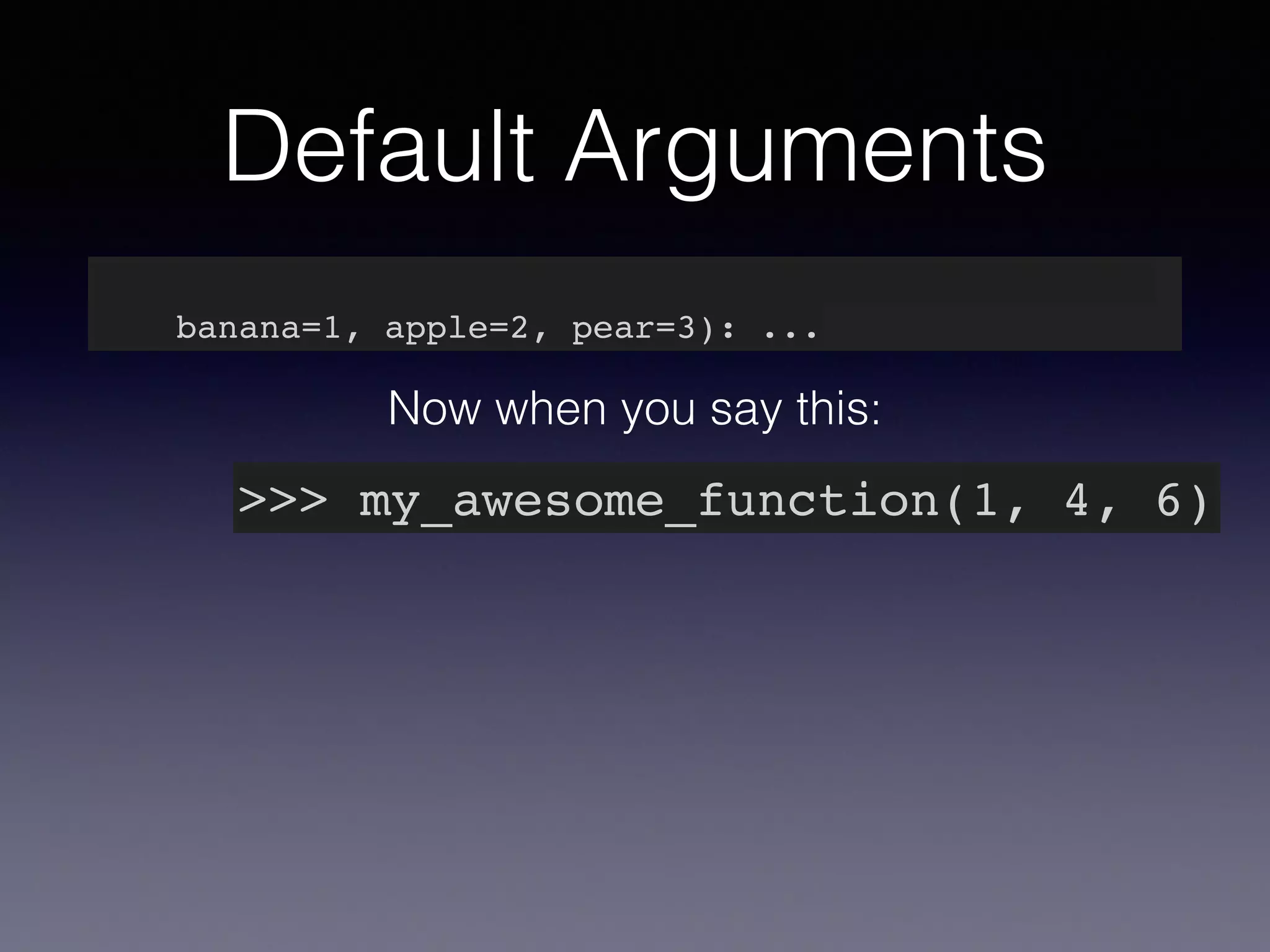
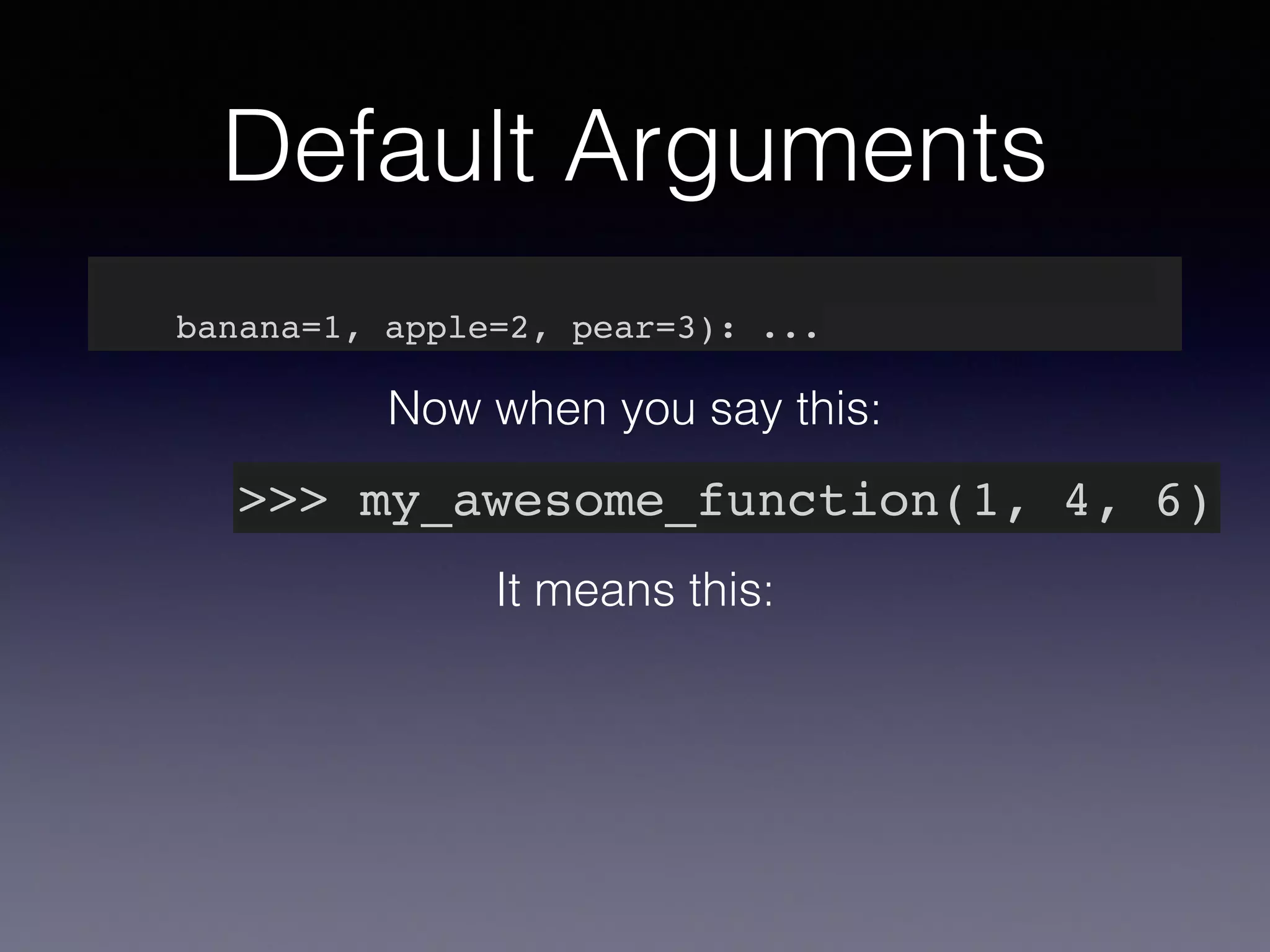
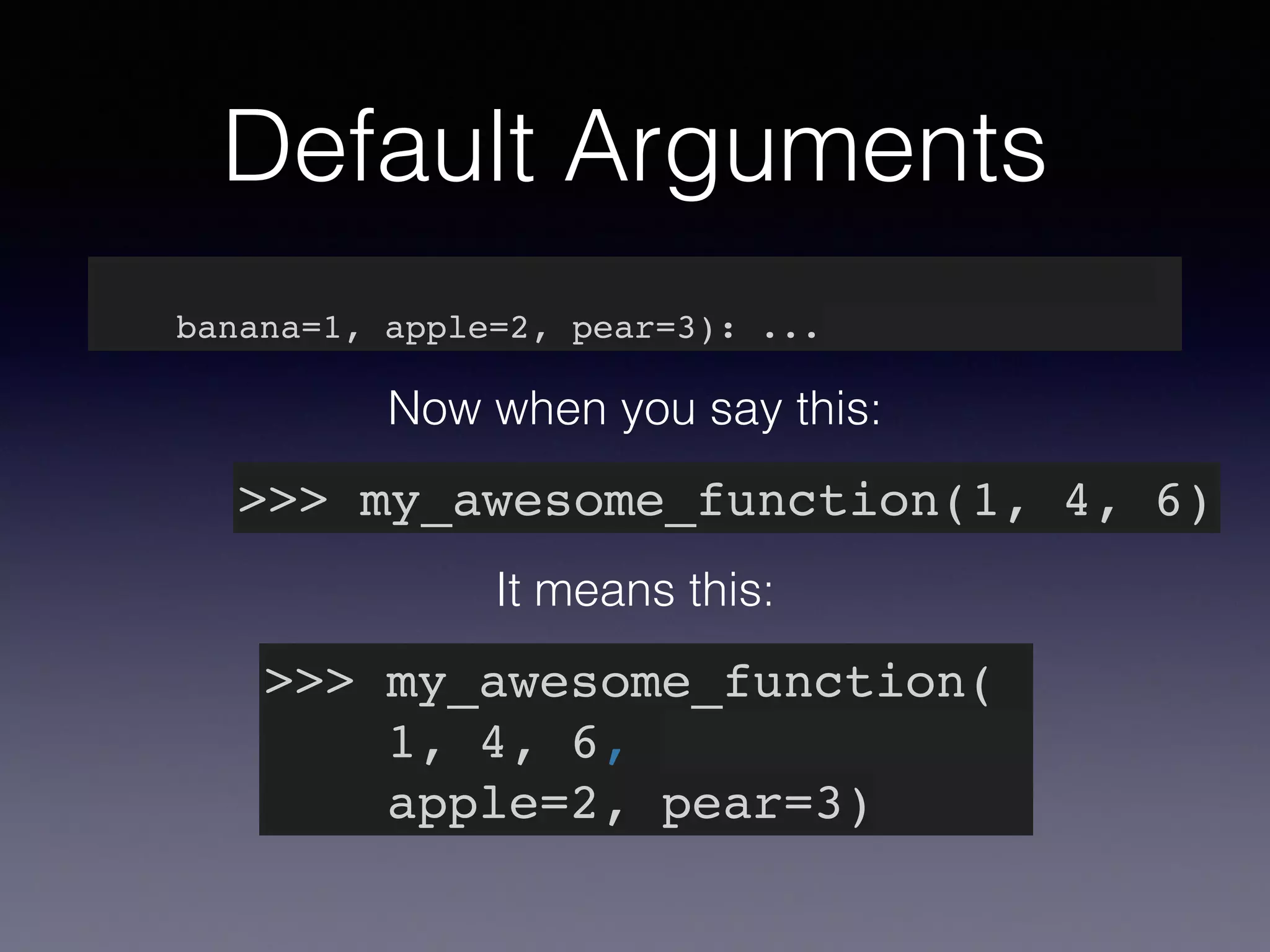
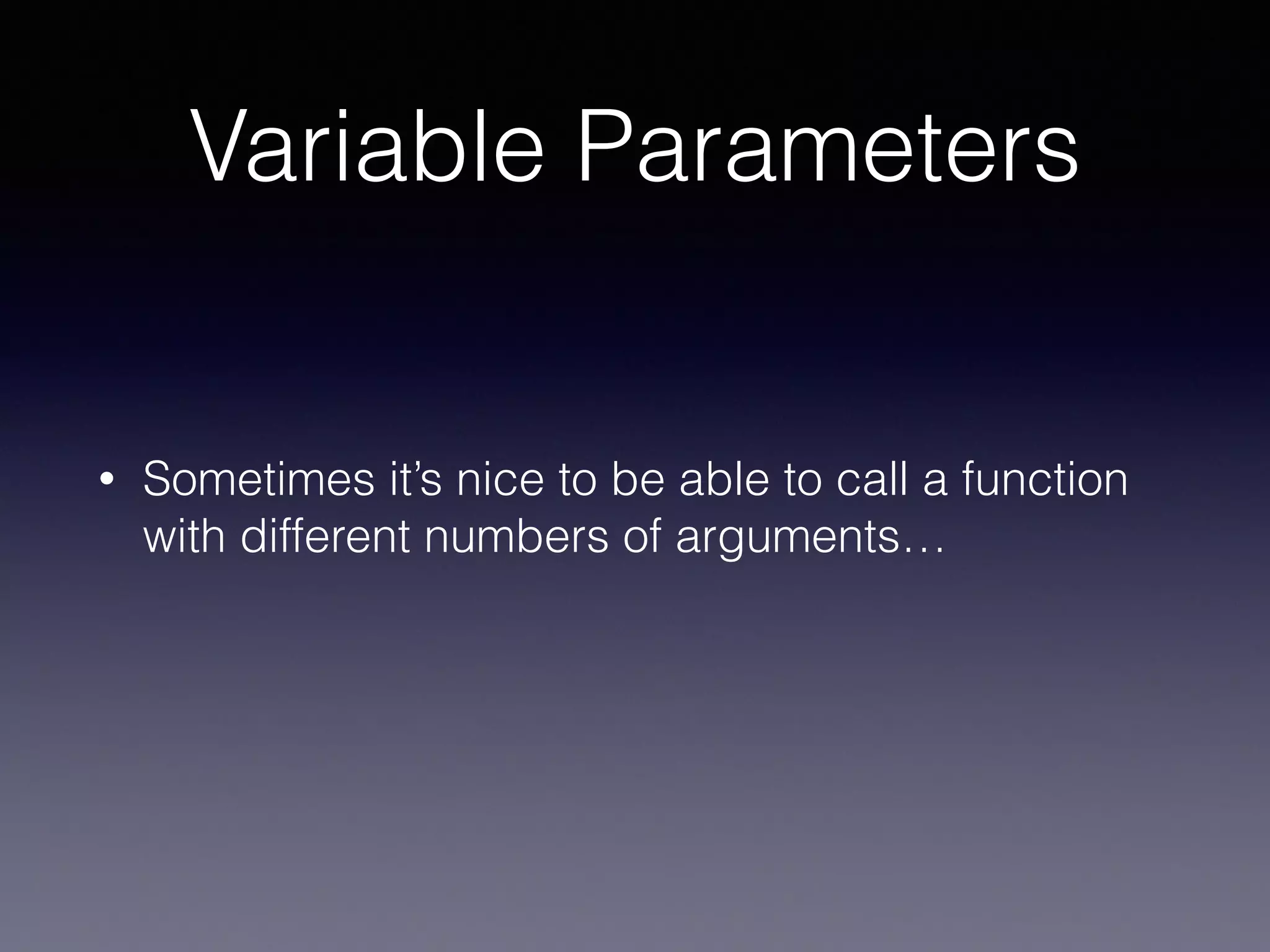
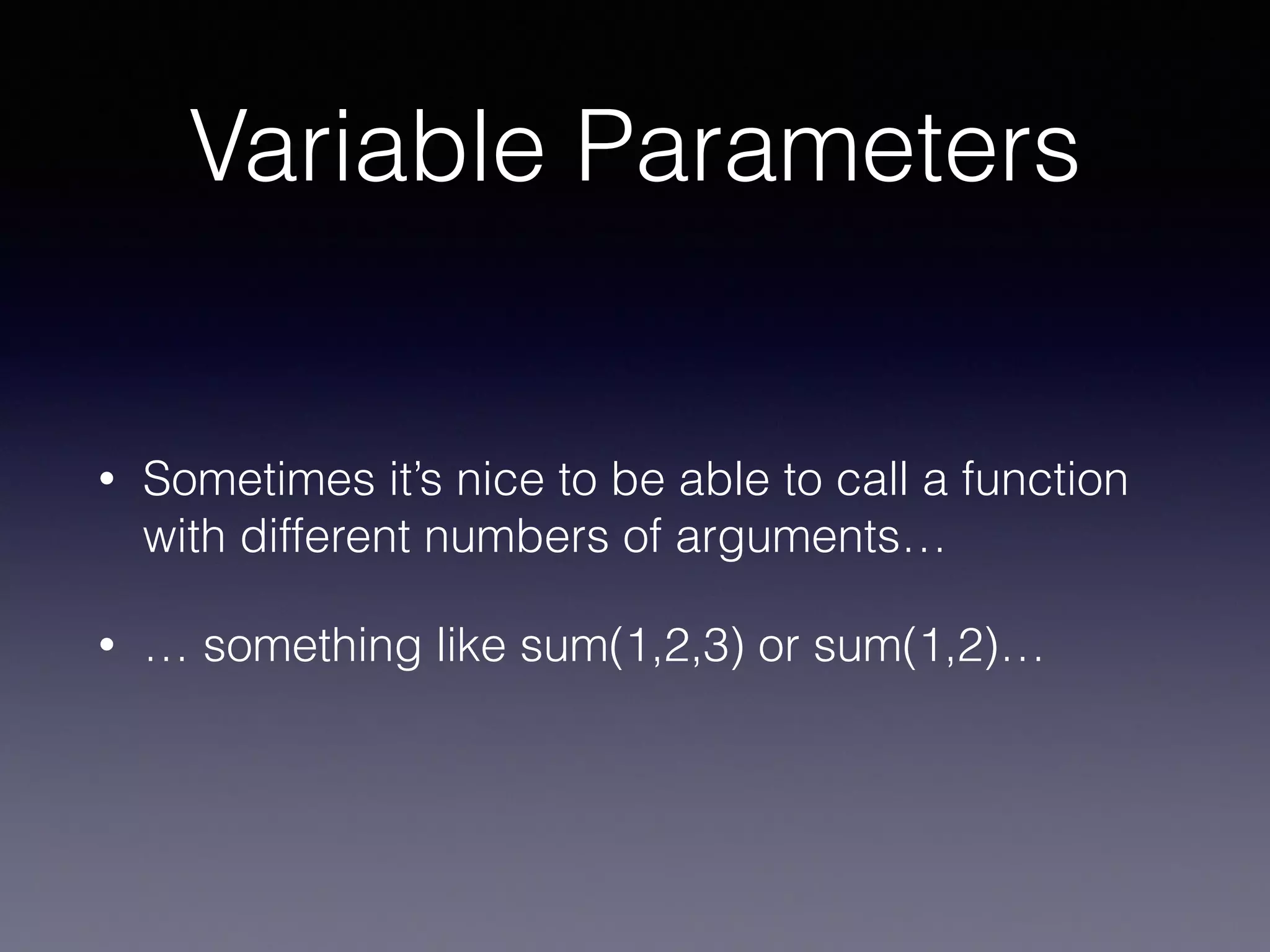
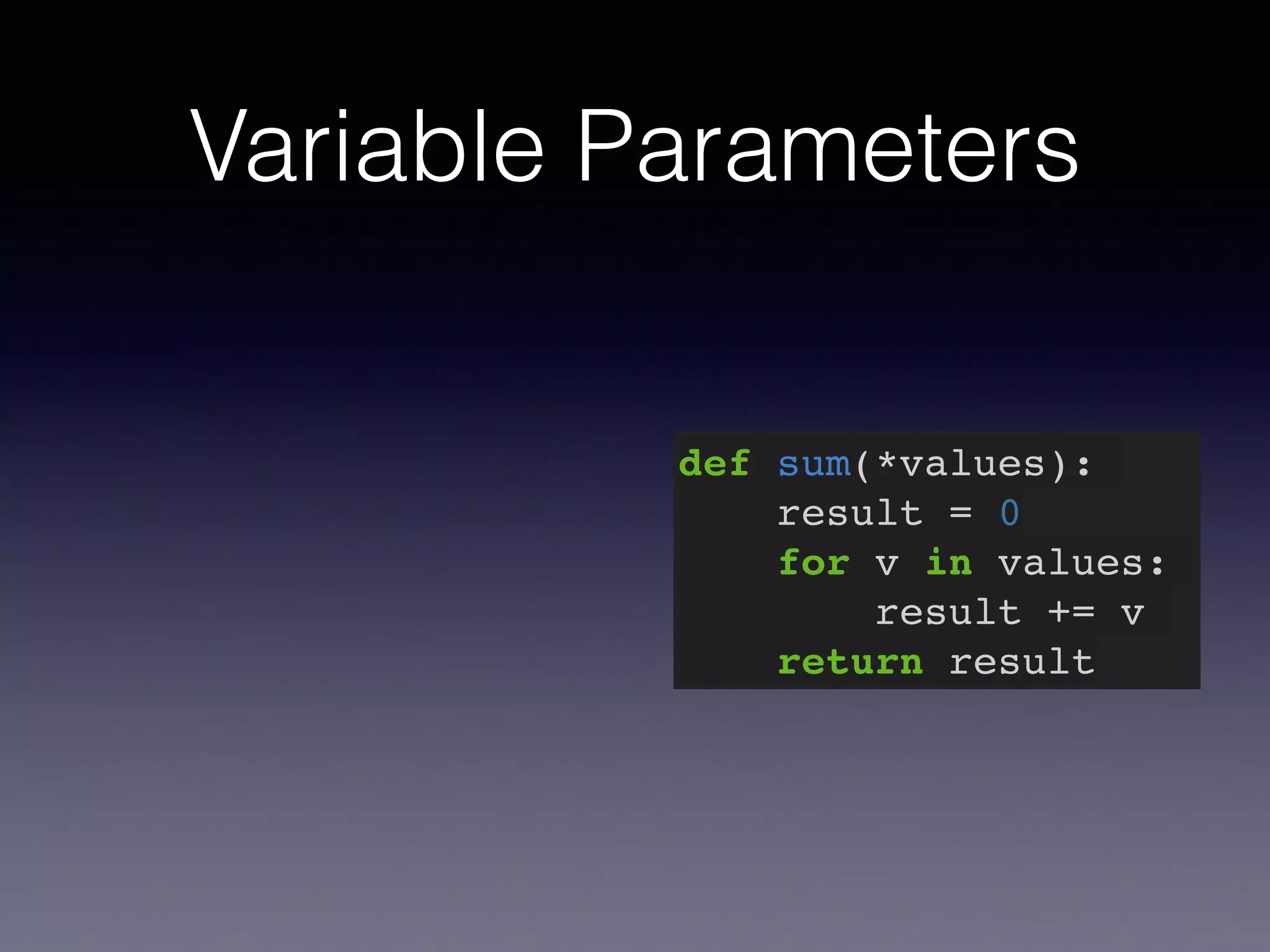
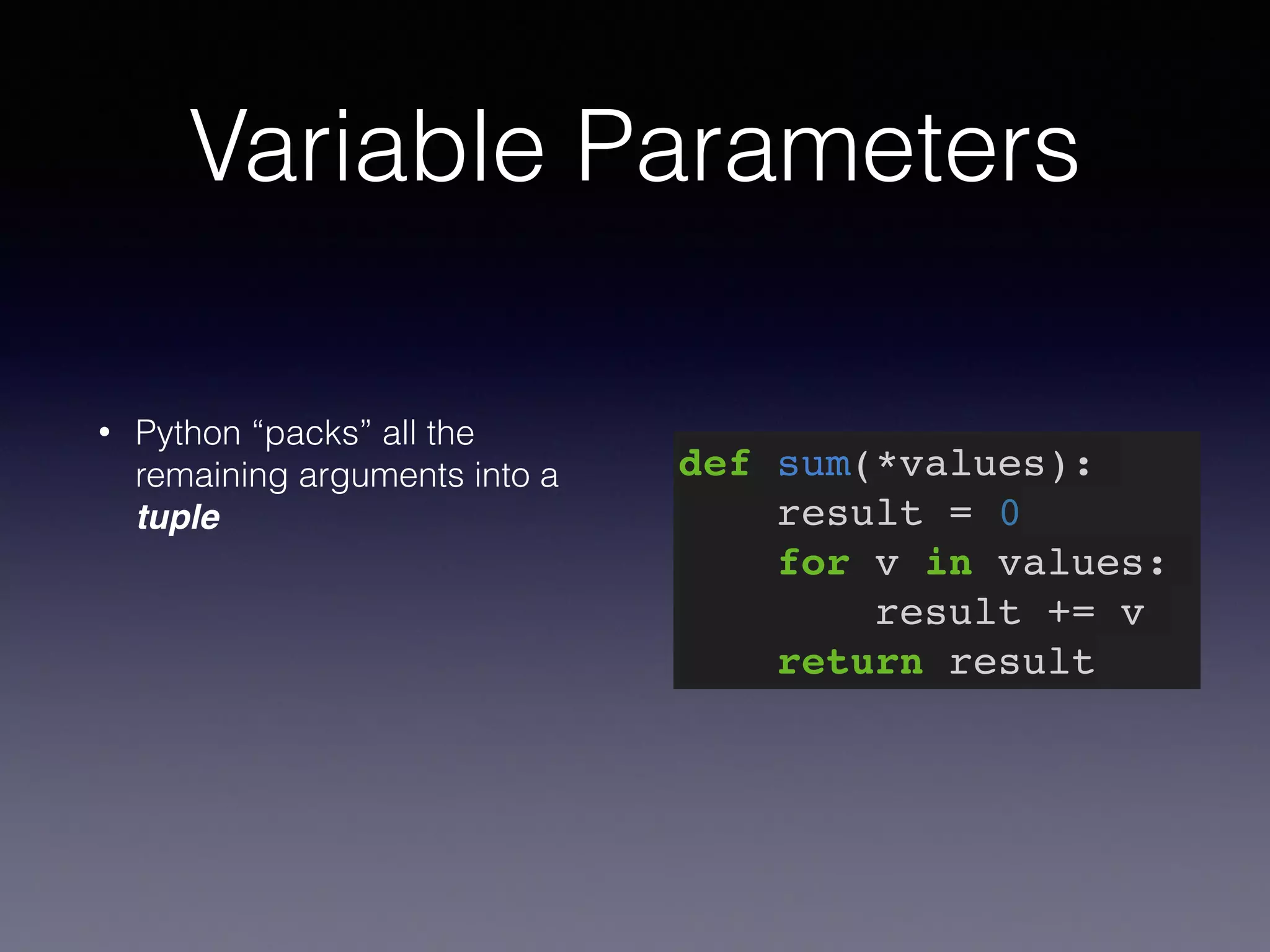
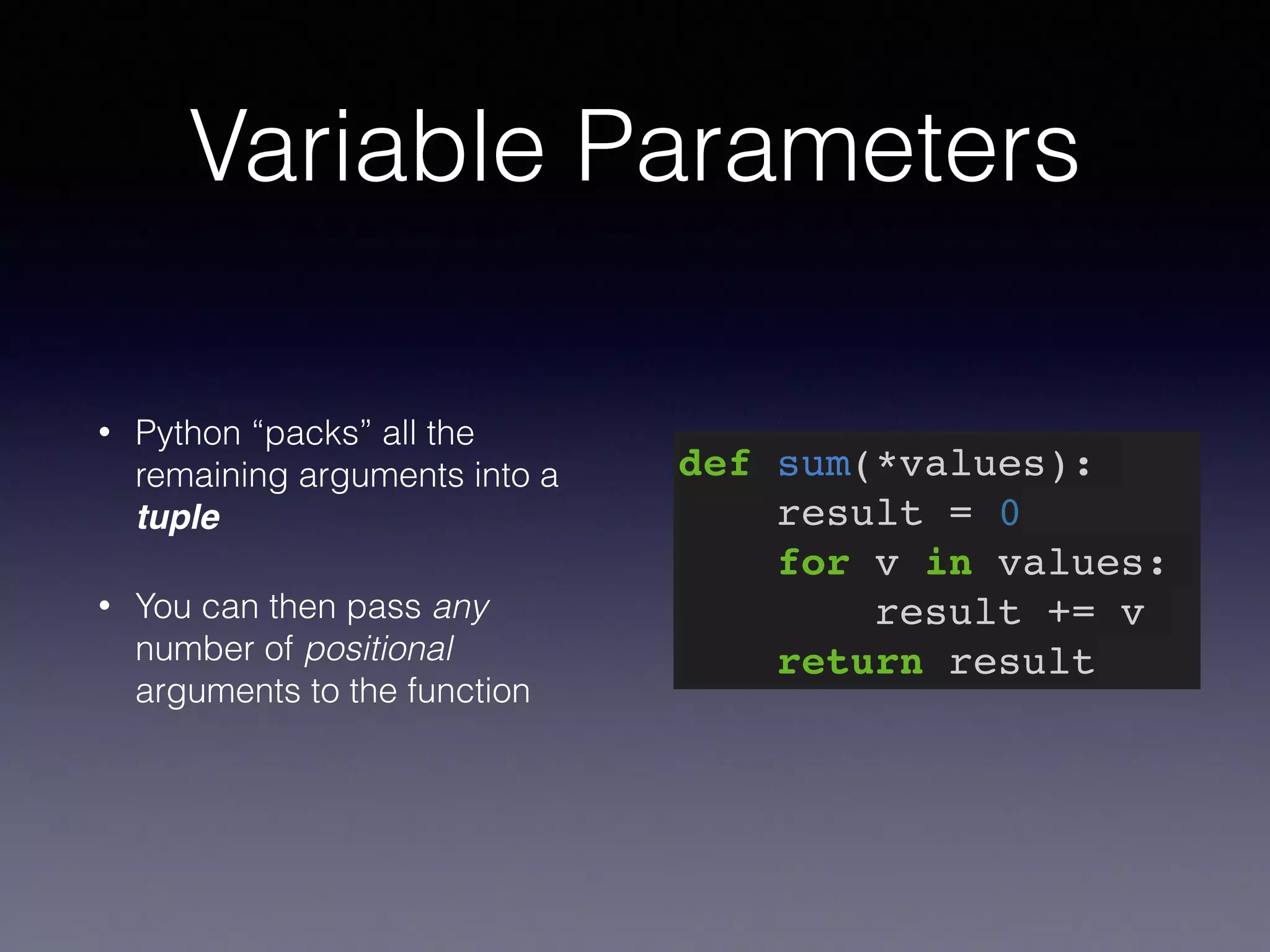
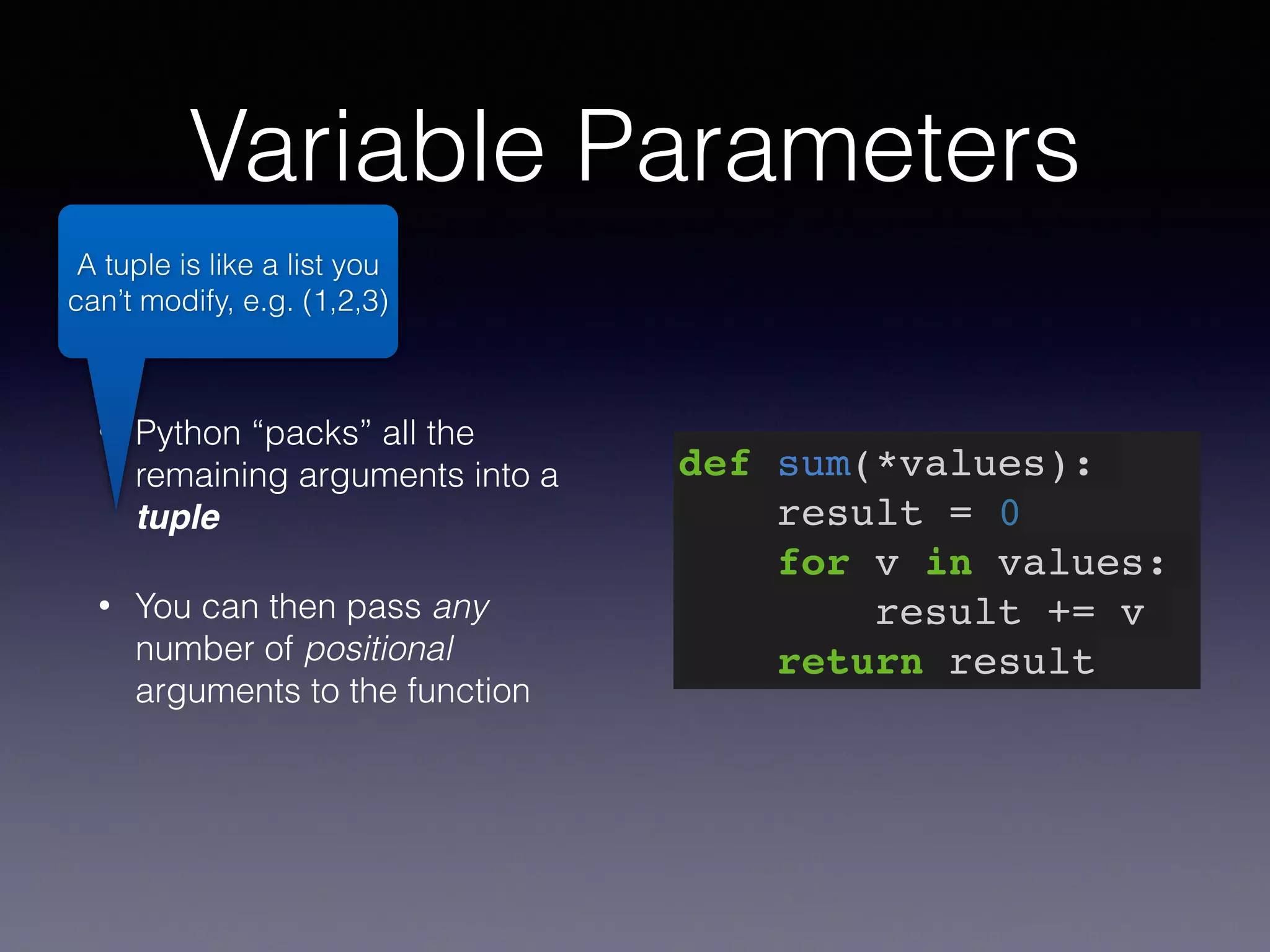
![Variable Arguments
>>> def sum(*values):!
... result = 0!
... for v in values:!
... result += v!
... return result!
...!
>>> sum(*[1,2,3])!
6](https://image.slidesharecdn.com/pythonfunctionsbeginner-140911195806-phpapp01/75/Python-Functions-PyAtl-Beginners-Night-61-2048.jpg)
![Variable Arguments
• Python “unpacks” the tuple/
list/etc. into separate
arguments
>>> def sum(*values):!
... result = 0!
... for v in values:!
... result += v!
... return result!
...!
>>> sum(*[1,2,3])!
6](https://image.slidesharecdn.com/pythonfunctionsbeginner-140911195806-phpapp01/75/Python-Functions-PyAtl-Beginners-Night-62-2048.jpg)
![Variable Arguments
• Python “unpacks” the tuple/
list/etc. into separate
arguments
• You can call functions that use
variable or fixed arguments
this way
>>> def sum(*values):!
... result = 0!
... for v in values:!
... result += v!
... return result!
...!
>>> sum(*[1,2,3])!
6](https://image.slidesharecdn.com/pythonfunctionsbeginner-140911195806-phpapp01/75/Python-Functions-PyAtl-Beginners-Night-63-2048.jpg)
![Variable Arguments
• Python “unpacks” the tuple/
list/etc. into separate
arguments
• You can call functions that use
variable or fixed arguments
this way
>>> def sum(*values):!
... result = 0!
... for v in values:!
... result += v!
... return result!
...!
>>> sum(*[1,2,3])!
6
>>> def x_times_y(x, y):!
... return x * y!
...!
>>> x_times_y(*[4,2])!
8](https://image.slidesharecdn.com/pythonfunctionsbeginner-140911195806-phpapp01/75/Python-Functions-PyAtl-Beginners-Night-64-2048.jpg)


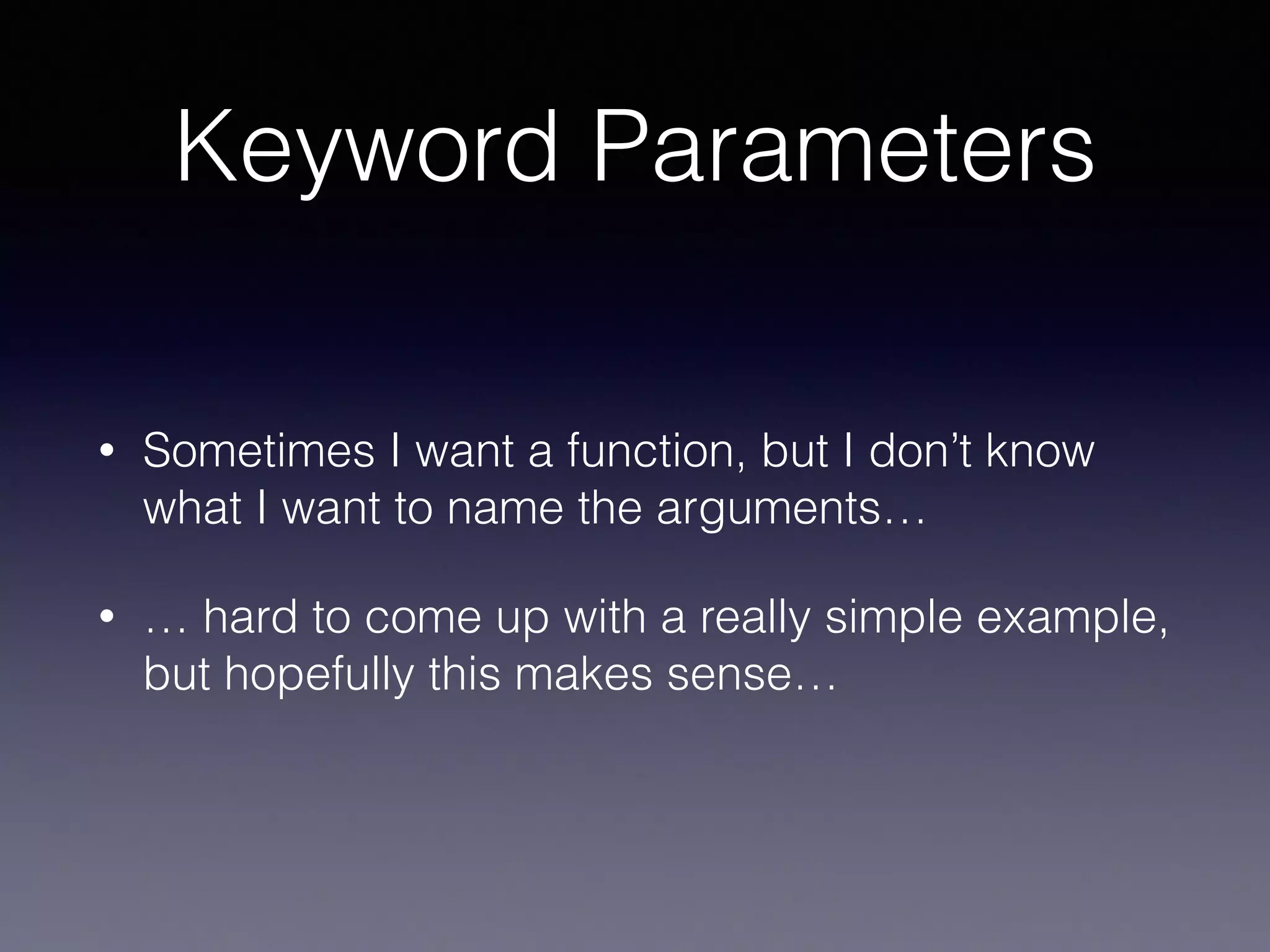

![Keyword Parameters
>>> def make_dict(**kwargs):!
... result = {}!
... for k, v in kwargs.items():!
... result[k] = v!
... return result!
...!
>>> make_dict(a=5, b=6)!
{'a': 5, 'b': 6}](https://image.slidesharecdn.com/pythonfunctionsbeginner-140911195806-phpapp01/75/Python-Functions-PyAtl-Beginners-Night-69-2048.jpg)
![Keyword Parameters
• Python “packs” all the
remaining named arguments
into a dict
>>> def make_dict(**kwargs):!
... result = {}!
... for k, v in kwargs.items():!
... result[k] = v!
... return result!
...!
>>> make_dict(a=5, b=6)!
{'a': 5, 'b': 6}](https://image.slidesharecdn.com/pythonfunctionsbeginner-140911195806-phpapp01/75/Python-Functions-PyAtl-Beginners-Night-70-2048.jpg)
![Keyword Parameters
• Python “packs” all the
remaining named arguments
into a dict
• You can then pass any
number of named arguments
to the function
>>> def make_dict(**kwargs):!
... result = {}!
... for k, v in kwargs.items():!
... result[k] = v!
... return result!
...!
>>> make_dict(a=5, b=6)!
{'a': 5, 'b': 6}](https://image.slidesharecdn.com/pythonfunctionsbeginner-140911195806-phpapp01/75/Python-Functions-PyAtl-Beginners-Night-71-2048.jpg)
![Keyword Parameters
• Python “packs” all the
remaining named arguments
into a dict
• You can then pass any
number of named arguments
to the function
A dict is like a directory
mapping “keys” to
“values” (e.g. {key: value})
>>> def make_dict(**kwargs):!
... result = {}!
... for k, v in kwargs.items():!
... result[k] = v!
... return result!
...!
>>> make_dict(a=5, b=6)!
{'a': 5, 'b': 6}](https://image.slidesharecdn.com/pythonfunctionsbeginner-140911195806-phpapp01/75/Python-Functions-PyAtl-Beginners-Night-72-2048.jpg)
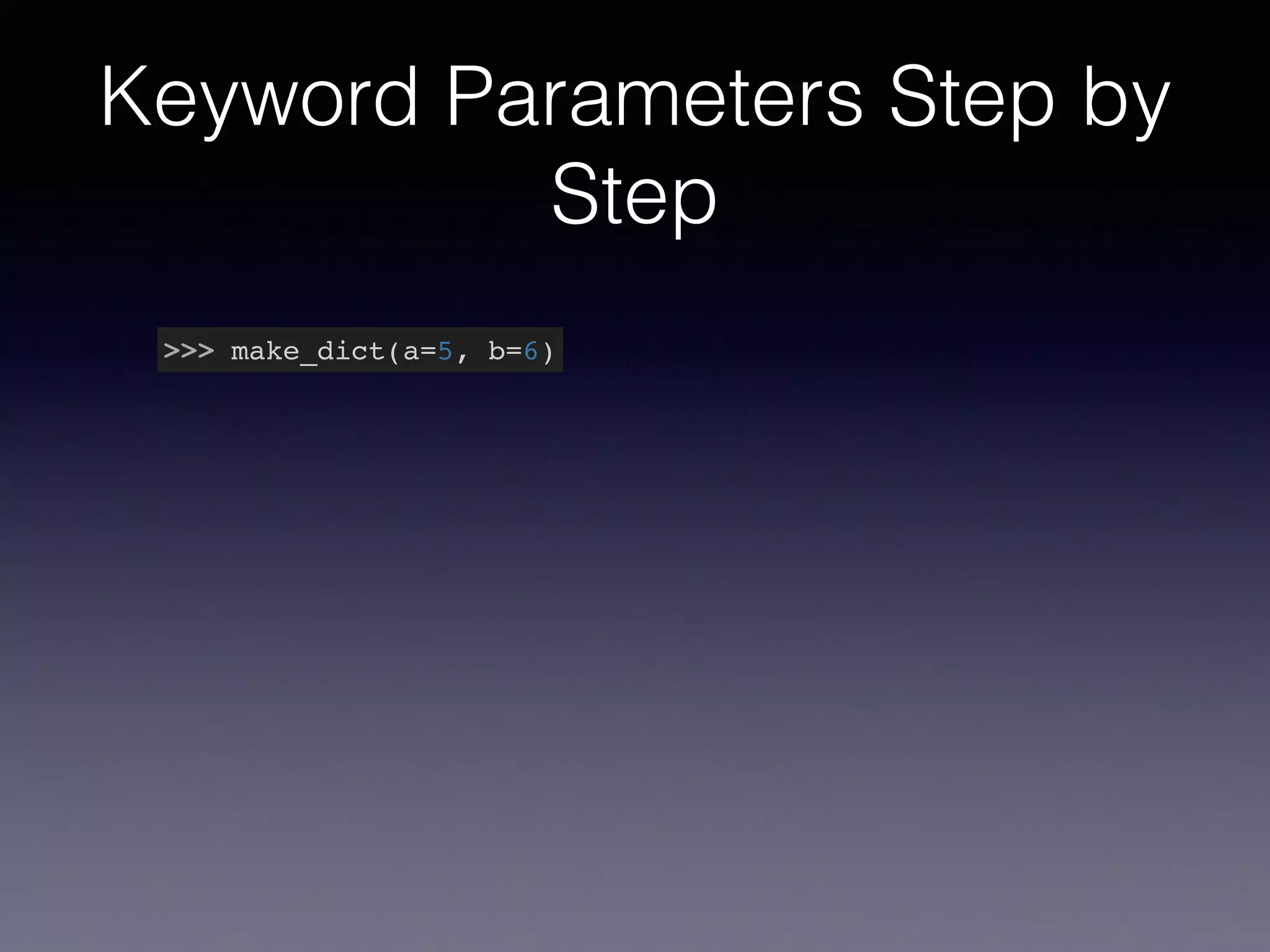
![Keyword Parameters Step by
Step
>>> make_dict(a=5, b=6) def make_dict(**kwargs):!
result = {}!
for k, v in kwargs.items():!
result[k] = v!
return result](https://image.slidesharecdn.com/pythonfunctionsbeginner-140911195806-phpapp01/75/Python-Functions-PyAtl-Beginners-Night-74-2048.jpg)
![Keyword Parameters Step by
Step
>>> make_dict(a=5, b=6) def make_dict(**kwargs):!
result = {}!
for k, v in kwargs.items():!
result[k] = v!
return result
kwargs = {'a': 5, 'b': 6}!
make_dict(**kwargs)](https://image.slidesharecdn.com/pythonfunctionsbeginner-140911195806-phpapp01/75/Python-Functions-PyAtl-Beginners-Night-75-2048.jpg)
![Keyword Parameters Step by
Step
>>> make_dict(a=5, b=6) def make_dict(**kwargs):!
result = {}!
for k, v in kwargs.items():!
result[k] = v!
return result
kwargs = {'a': 5, 'b': 6}!
make_dict(**kwargs)
kwargs = {'a': 5, 'b': 6}!
result = {}!
for k, v in {'a': 5, 'b': 6}.items():!
result[k] = v!
return result](https://image.slidesharecdn.com/pythonfunctionsbeginner-140911195806-phpapp01/75/Python-Functions-PyAtl-Beginners-Night-76-2048.jpg)
![Keyword Parameters Step by
Step
>>> make_dict(a=5, b=6) def make_dict(**kwargs):!
result = {}!
for k, v in kwargs.items():!
result[k] = v!
return result
kwargs = {'a': 5, 'b': 6}!
make_dict(**kwargs)
kwargs = {'a': 5, 'b': 6}!
result = {}!
for k, v in {'a': 5, 'b': 6}.items():!
result[k] = v!
return result
result = {}!
result = {'a': 5}!
result = {'a': 5, 'b': 6}!
return result](https://image.slidesharecdn.com/pythonfunctionsbeginner-140911195806-phpapp01/75/Python-Functions-PyAtl-Beginners-Night-77-2048.jpg)
![Keyword Parameters Step by
Step
>>> make_dict(a=5, b=6) def make_dict(**kwargs):!
result = {}!
for k, v in kwargs.items():!
result[k] = v!
return result
kwargs = {'a': 5, 'b': 6}!
make_dict(**kwargs)
kwargs = {'a': 5, 'b': 6}!
result = {}!
for k, v in {'a': 5, 'b': 6}.items():!
result[k] = v!
return result
result = {}!
result = {'a': 5}!
result = {'a': 5, 'b': 6}!
return result
{'a': 5, 'b': 6}](https://image.slidesharecdn.com/pythonfunctionsbeginner-140911195806-phpapp01/75/Python-Functions-PyAtl-Beginners-Night-78-2048.jpg)
